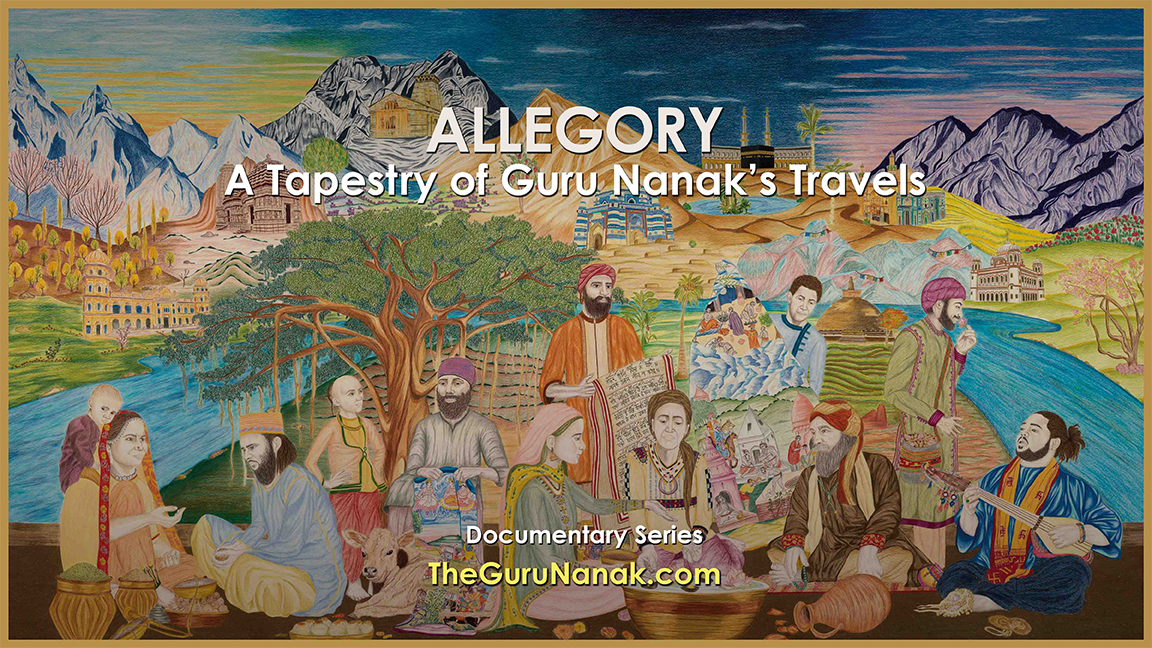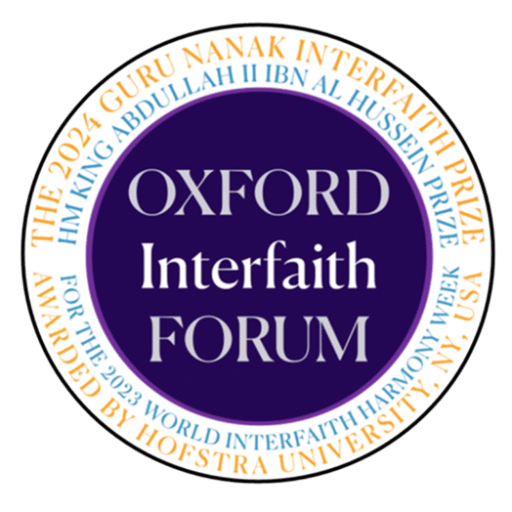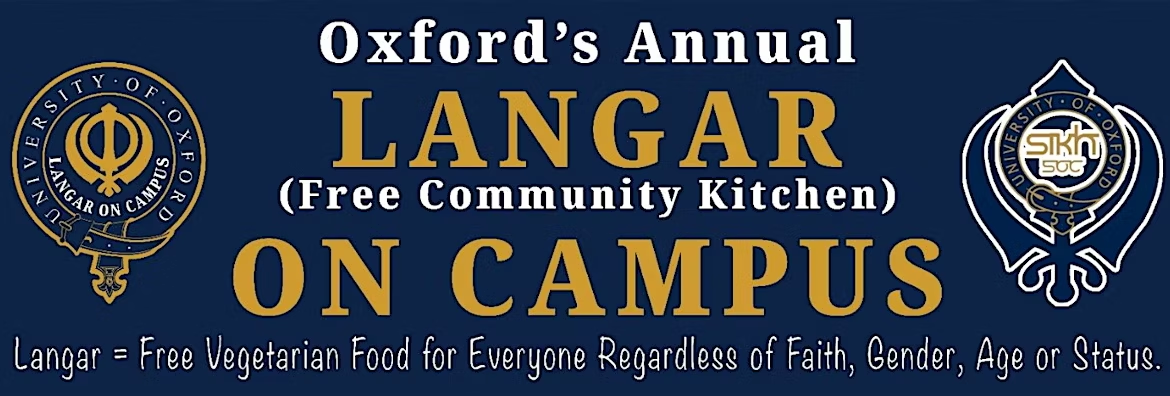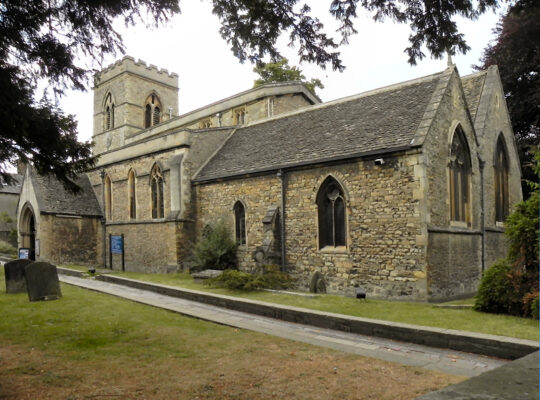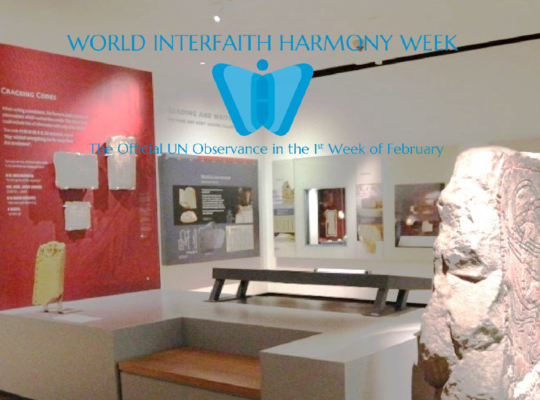27 May, 2025
Oxford Interfaith Forum was delighted to join the annual Langar on Campus at the University of Oxford, organised by the Oxford Sikh Student Society, and its graduate President Jupneet Sigh, a Rhodes Scholar at Green Templeton College.
Isher Singh Jagdev, a medical student at Keble College led Kirtan (Sikh devotional songs), and recordings are available below. Isher, together with Gurleen Singh, presented Kirtan at Sacred Sounds organised by the Oxford Interfaith Forum in collaboration with the Ashmoleain Museum. A full recording is available here.
Langar, a Persian word which translates to ‘almshouse’ or ‘public kitchen’, is a hallmark of the Sikh faith. It signifies a communal meal offered free of charge to all, regardless of background. This tradition of sharing food emphasises equality and loving-kindness within Sikh communities. It is the essential element of any gurdwara (Sikh place of worship) which feeds visitors 24 hours a day.

Langar upholds the principle of equality between all people regardless of religion, caste, colour, creed, age, gender or social status, a revolutionary concept in the caste-ordered society of 16th-century India where Sikhism began. In addition to the ideals of equality, the tradition of langar expresses the ethics of sharing, community, inclusiveness and oneness of all humankind.
The institution of Langar can be traced back to the Persian tradition. Langars were a common feature of the Sufi centres in the twelfth and thirteenth centuries, and some shrines commemorating Sufi saints still serve langars.
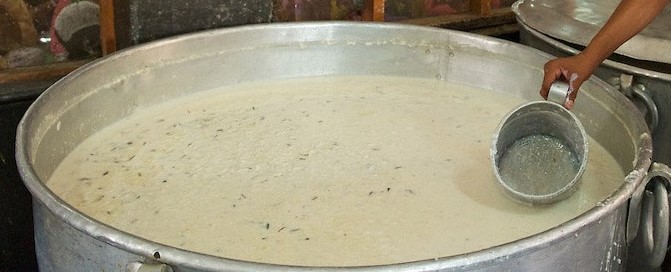

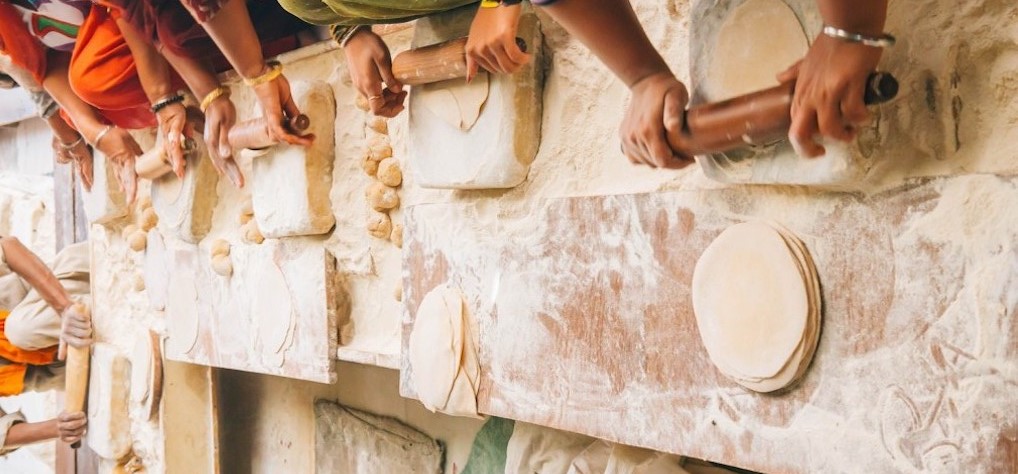
The concept of langar is a profound embodiment of Guru Nanak Dev Ji’s (the first of the ten Gurus of the Sikh faith) values. The story says his father gave him 20 rupees to start a business. Instead of using the money for trade, Guru Nanak Dev Ji travelled to different towns and villages, using the money to buy food and serve it to everyone, regardless of their background.
Langar, sustained through donations and volunteers alone, is always served free of charge to all people. It was a revolutionary concept because it broke down barriers between a divided and hierarchical society in which people rarely mixed culturally and socially.
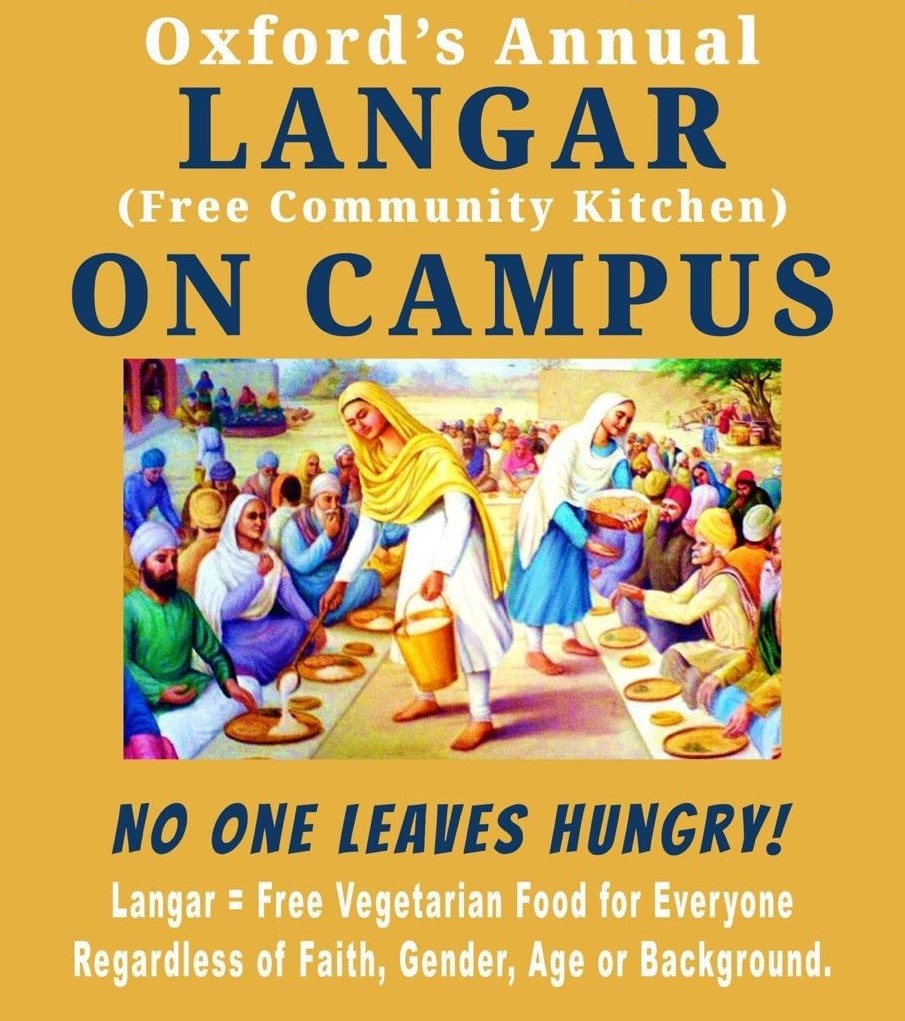
Date: 27 May, 2025
Time: 1700:2030 BST
Venue: Rhodes House, South Parks Rd, Oxford, OX1 3RG
The langar at the Golden Temple (the central spiritual site of Sikhism) is a living example of the Sikh faith’s notion of equality. It feeds about 40,000 people a day. On religious holidays and weekends, the langar can feed about 100,000 people a day. On average, 7,000 kg of wheat flour, 1,200 kg of rice, 1,300 kg of lentils, and 500 kg of butter are used daily. About 450 volunteers run the kitchen. The kitchen uses an automatic machine which produces 25,000 rotis (flat bread) in an hour. In the dining hall, women, men, children, high or low, rich or poor, all sit in the same pangat (lit. ‘row’ or ‘line’) to share and enjoy the food. This symbolises that nobody is ‘above’ others. Langar provides a powerful vehicle for promoting equality and social justice for all.
Dress code
Shoes will be removed.
Everyone will be sitting on the floor. So people should dress accordingly.
All guests will receive a headscarf upon entry.
In addition to the Langar, the event will offer Kirtan (Sikh liturgical hymns), and guests will have opportunities to tie a turban, and have their name written in Punjabi.
Video Playlist
Photo Gallery
© Oxford Interfaith Forum | Interfaith Academia
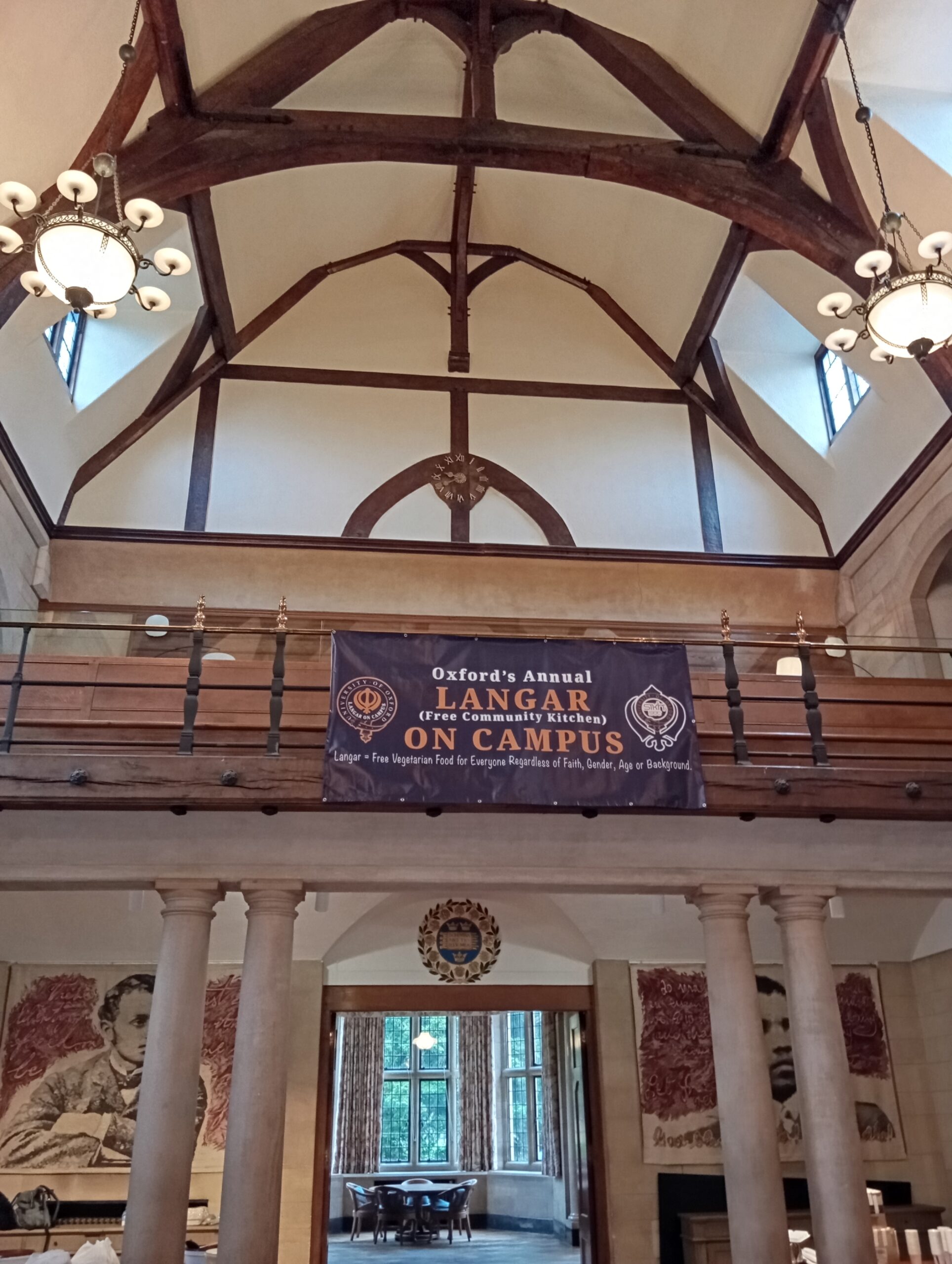
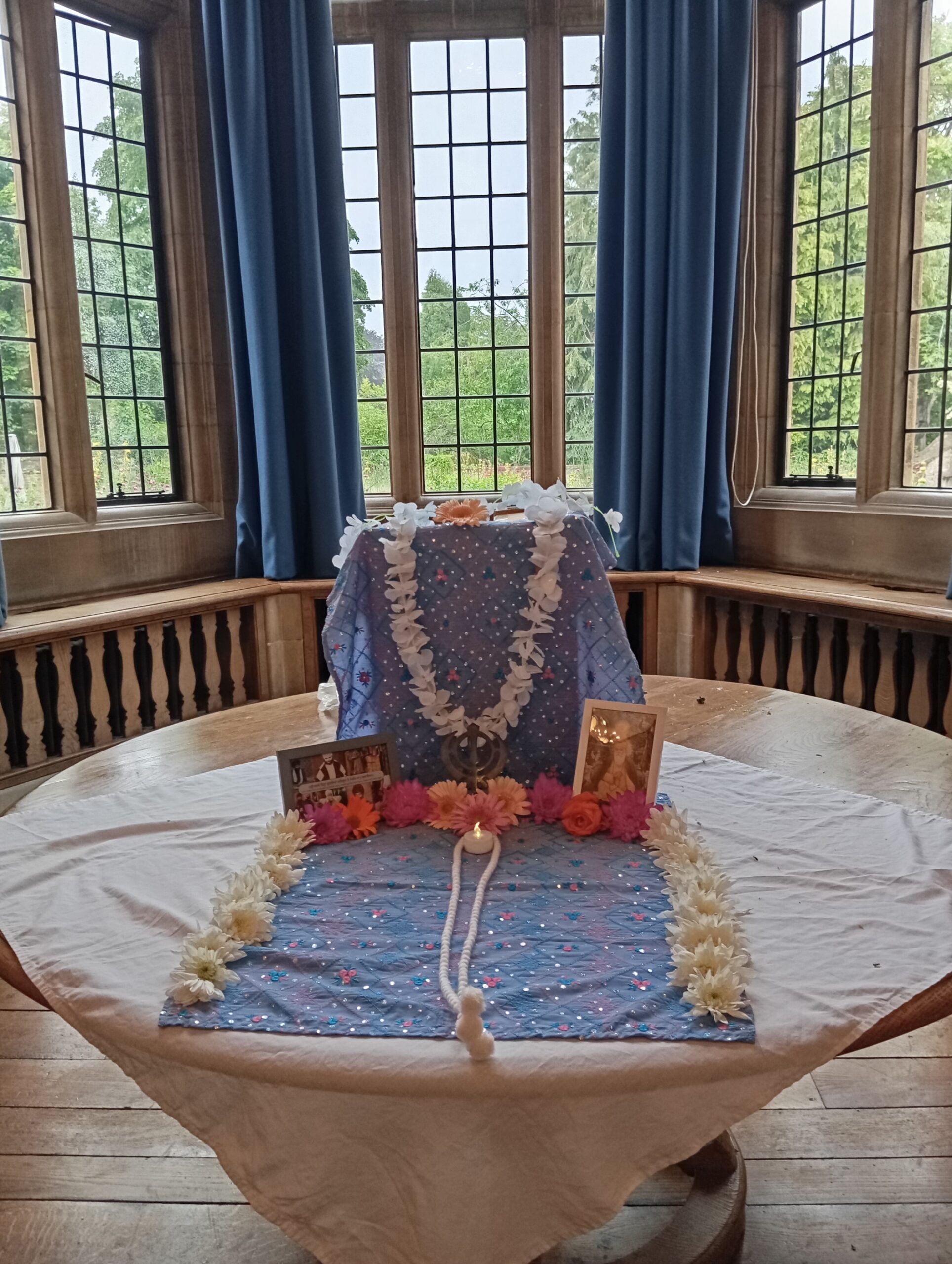
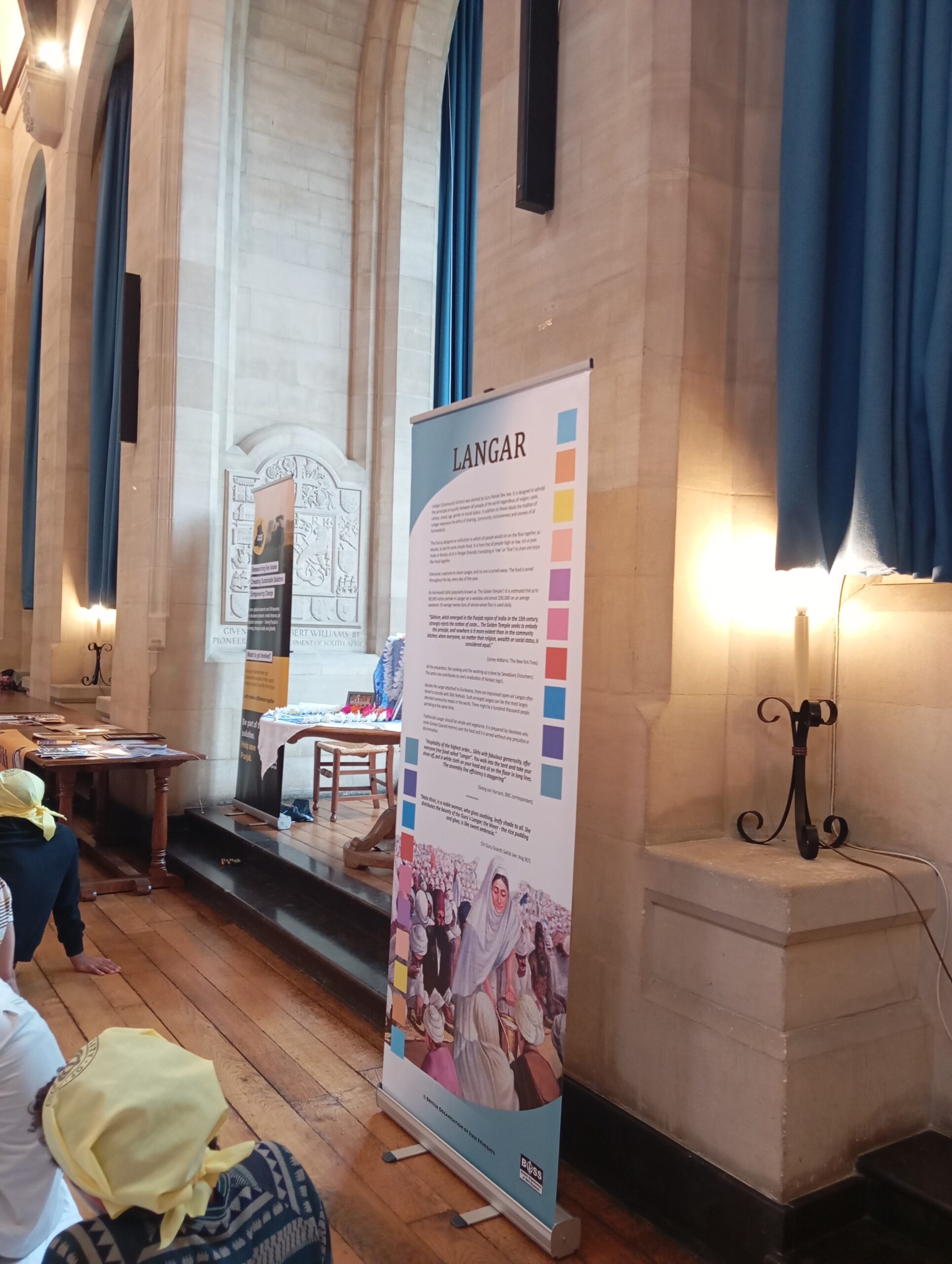
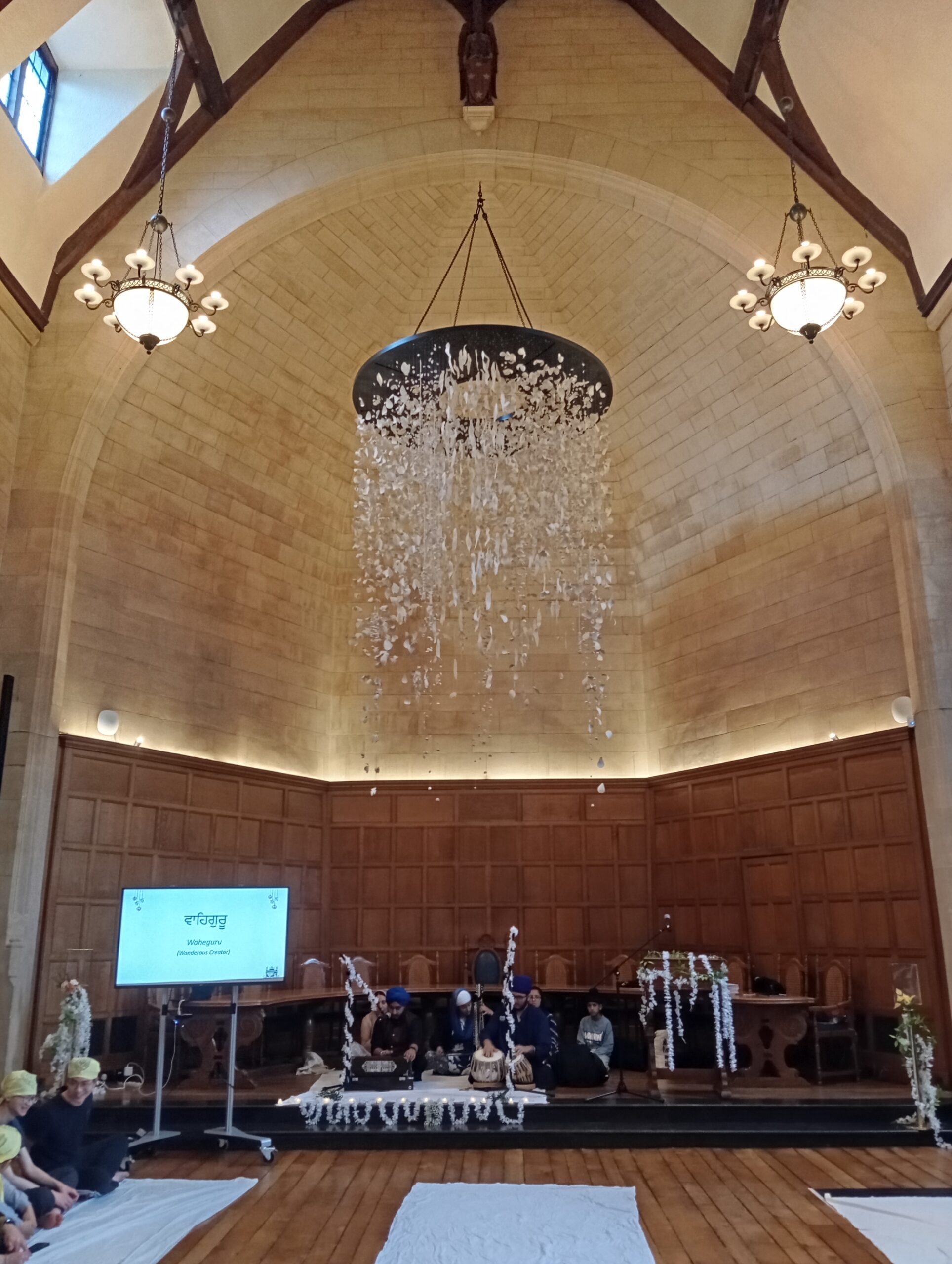
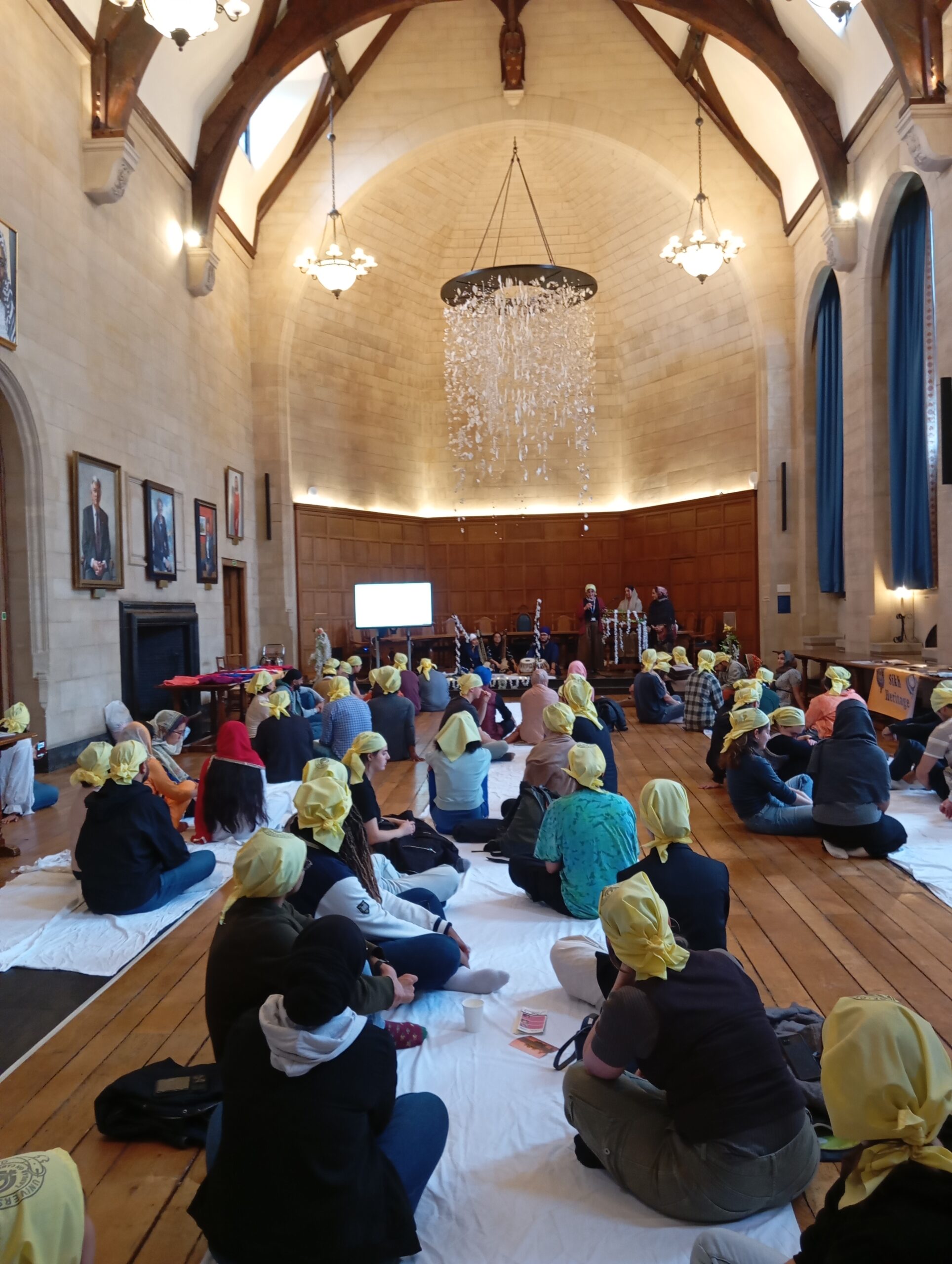
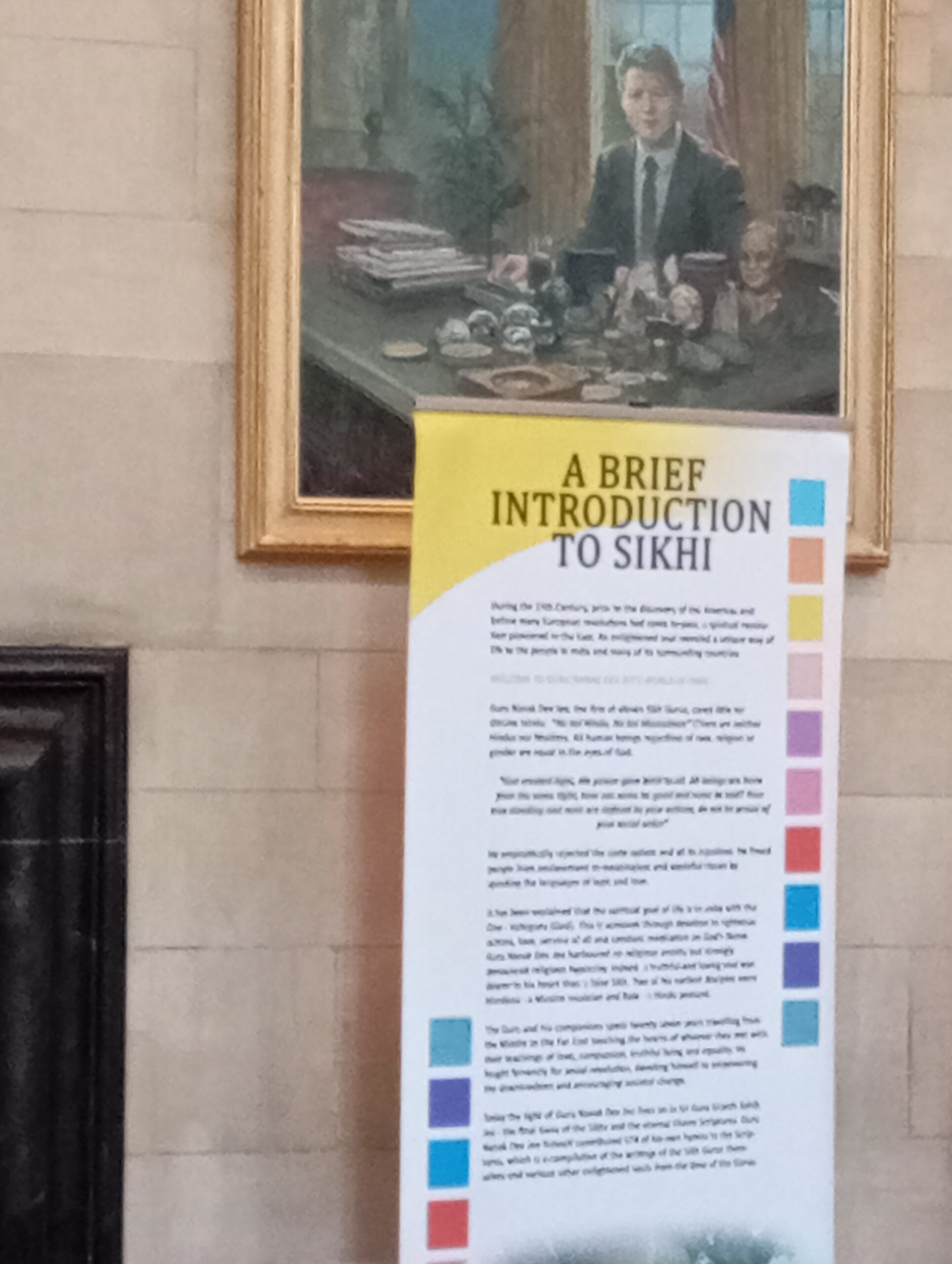
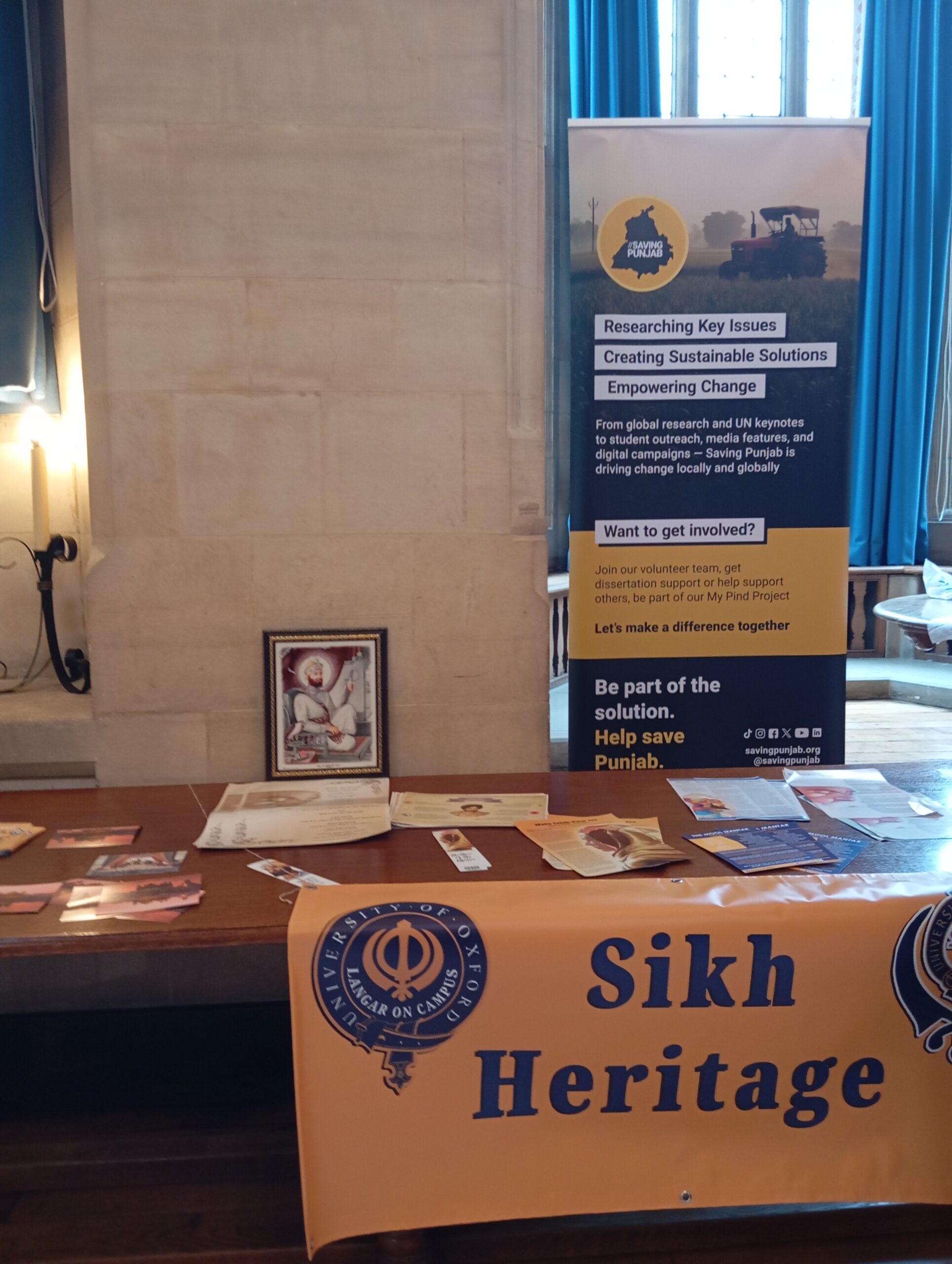
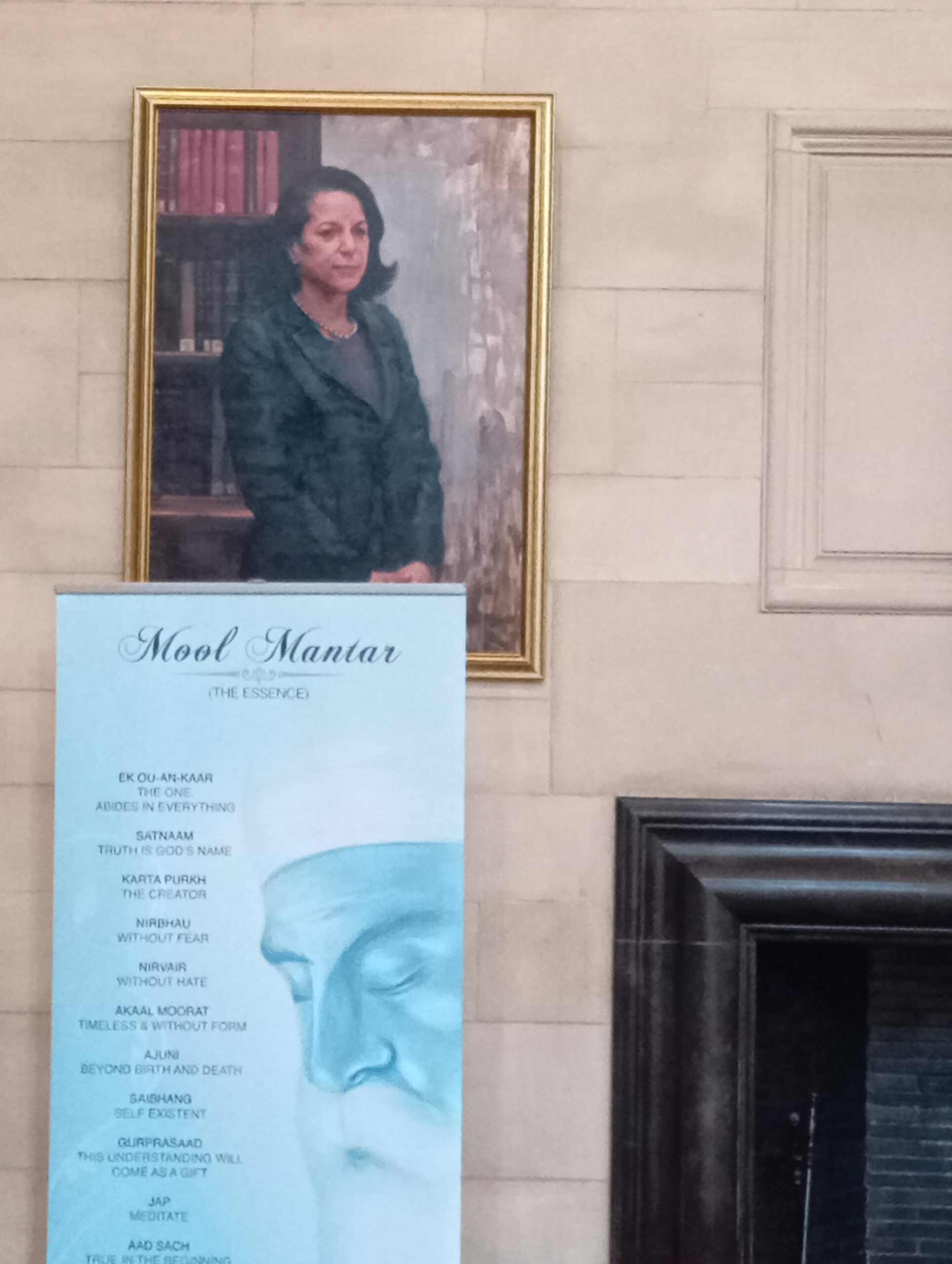
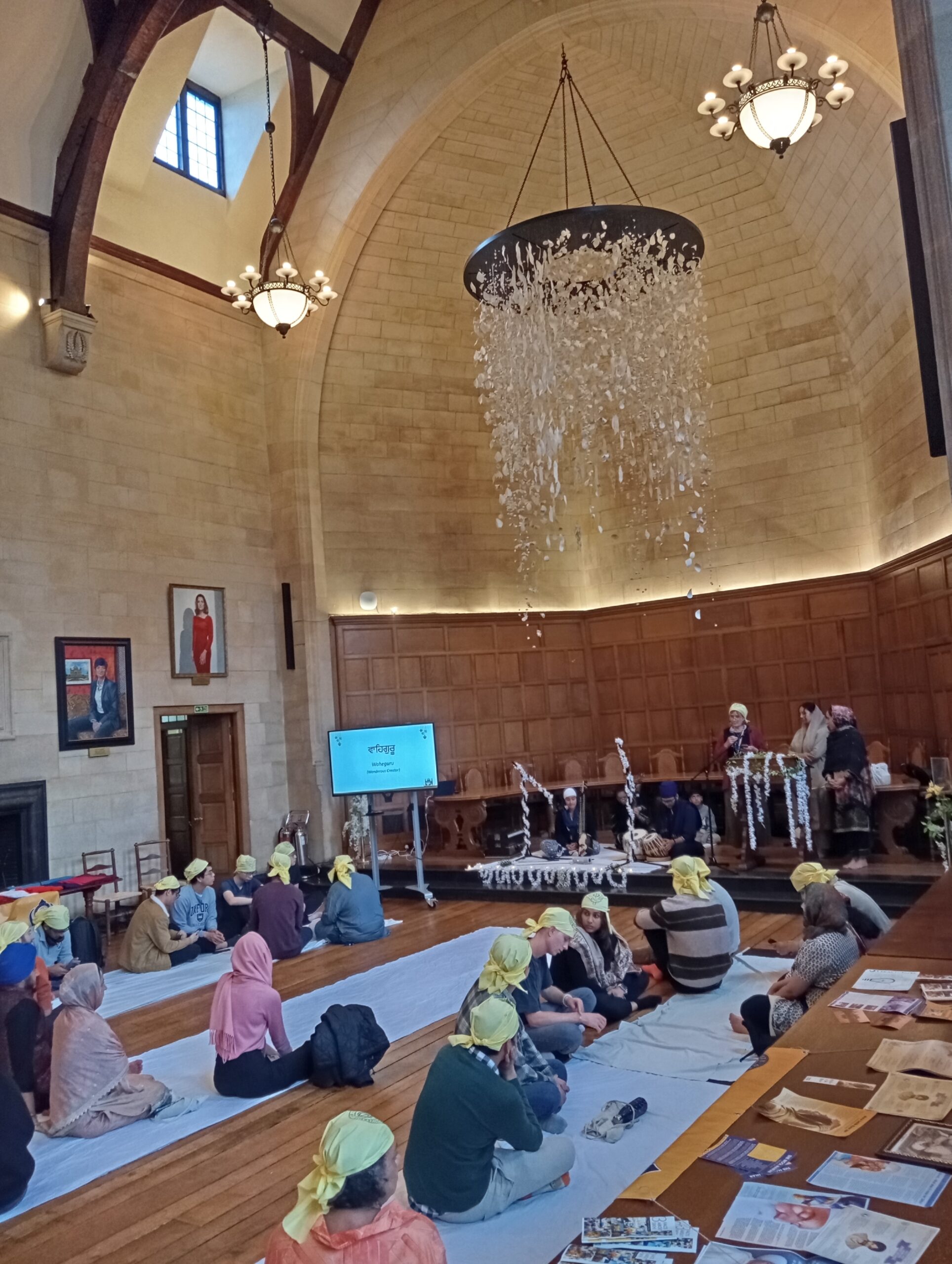
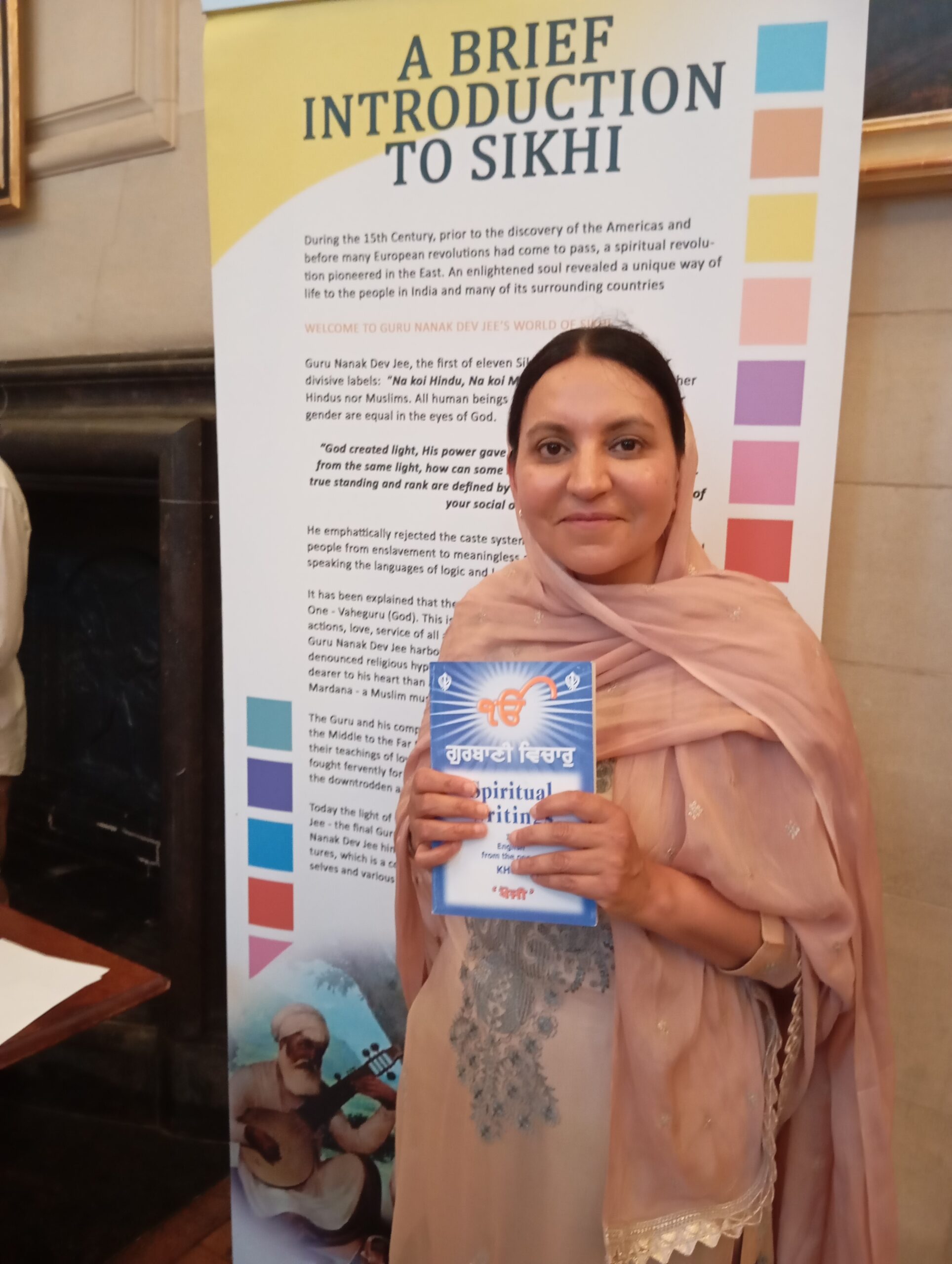
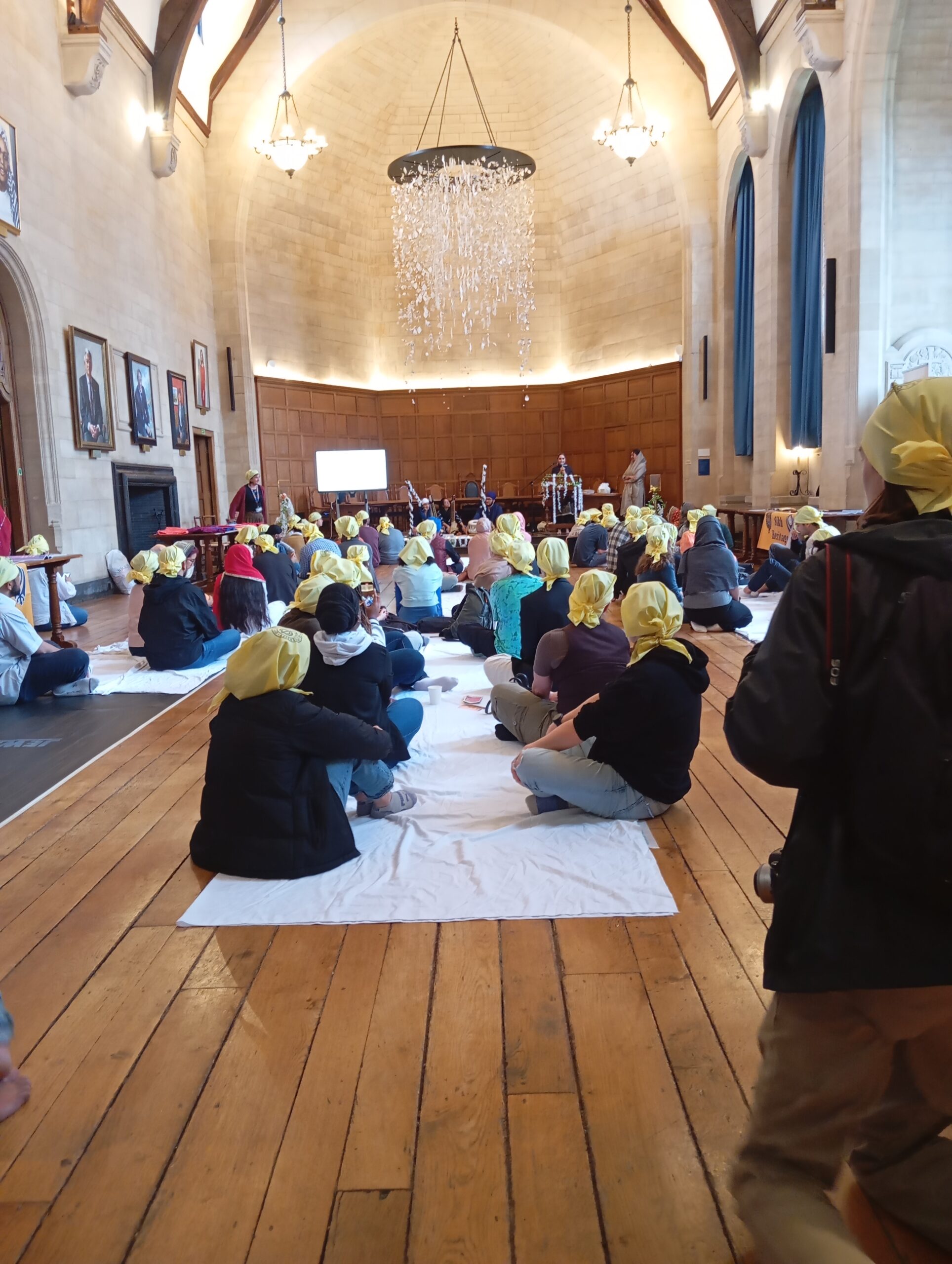
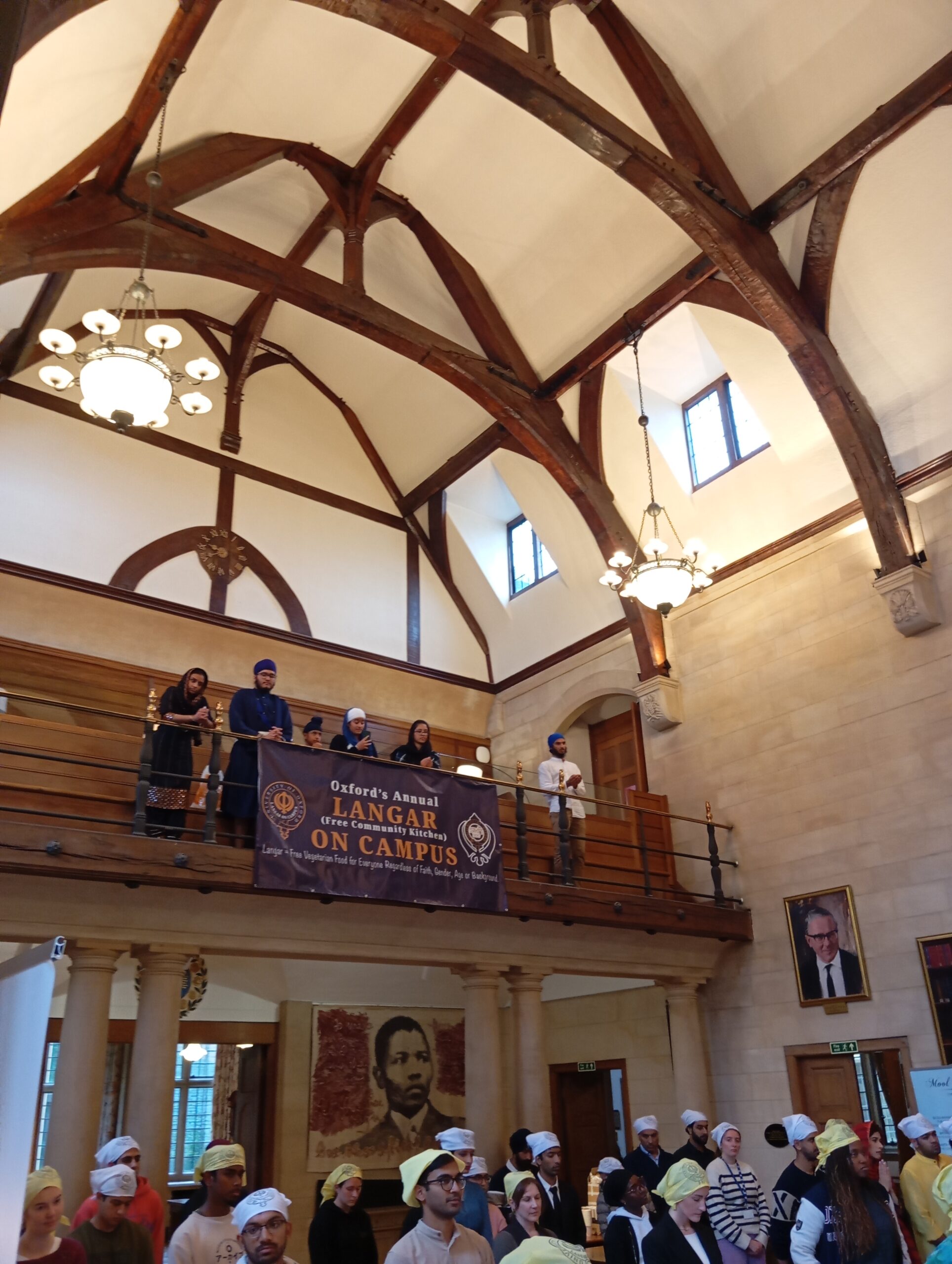
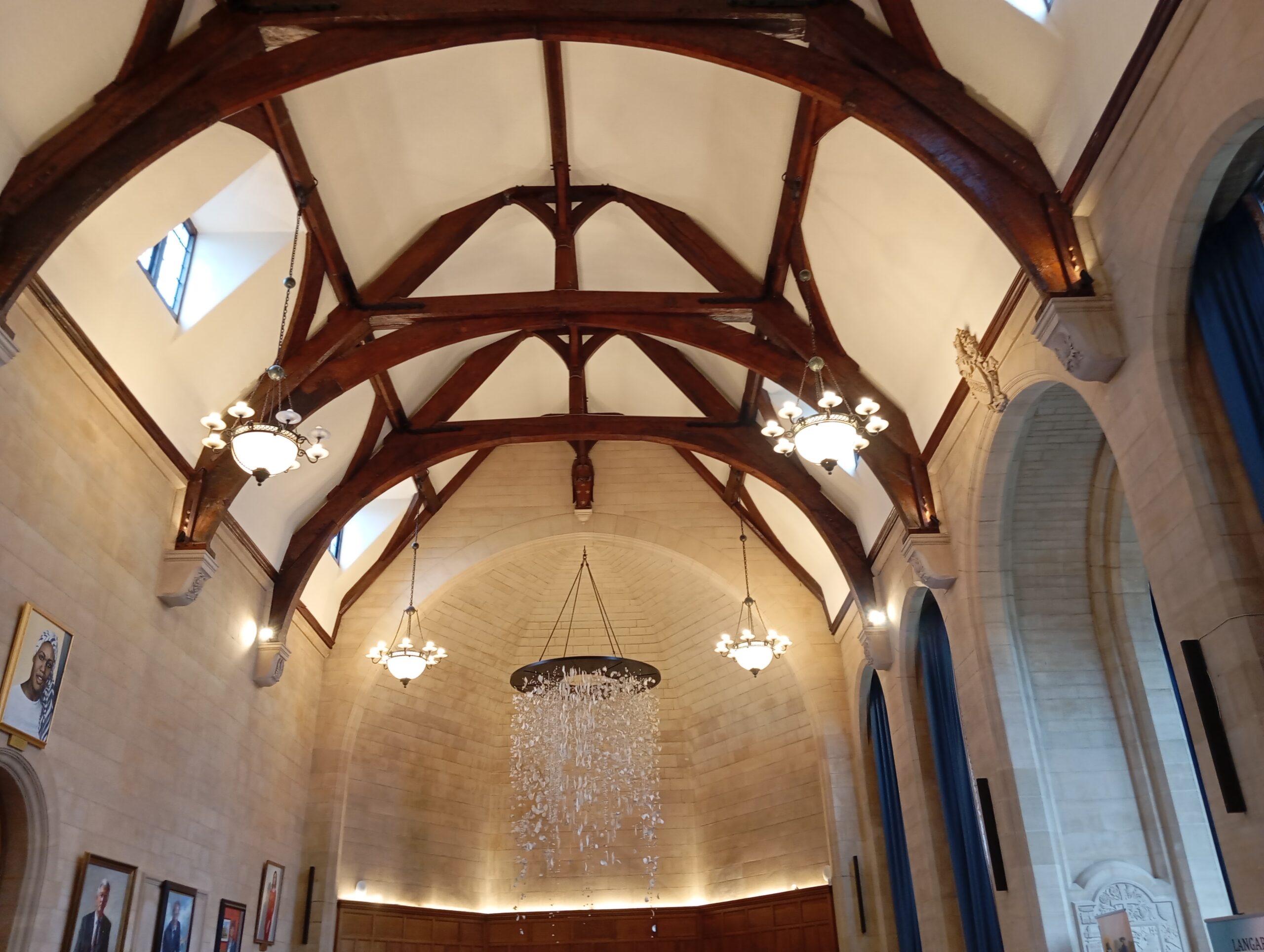
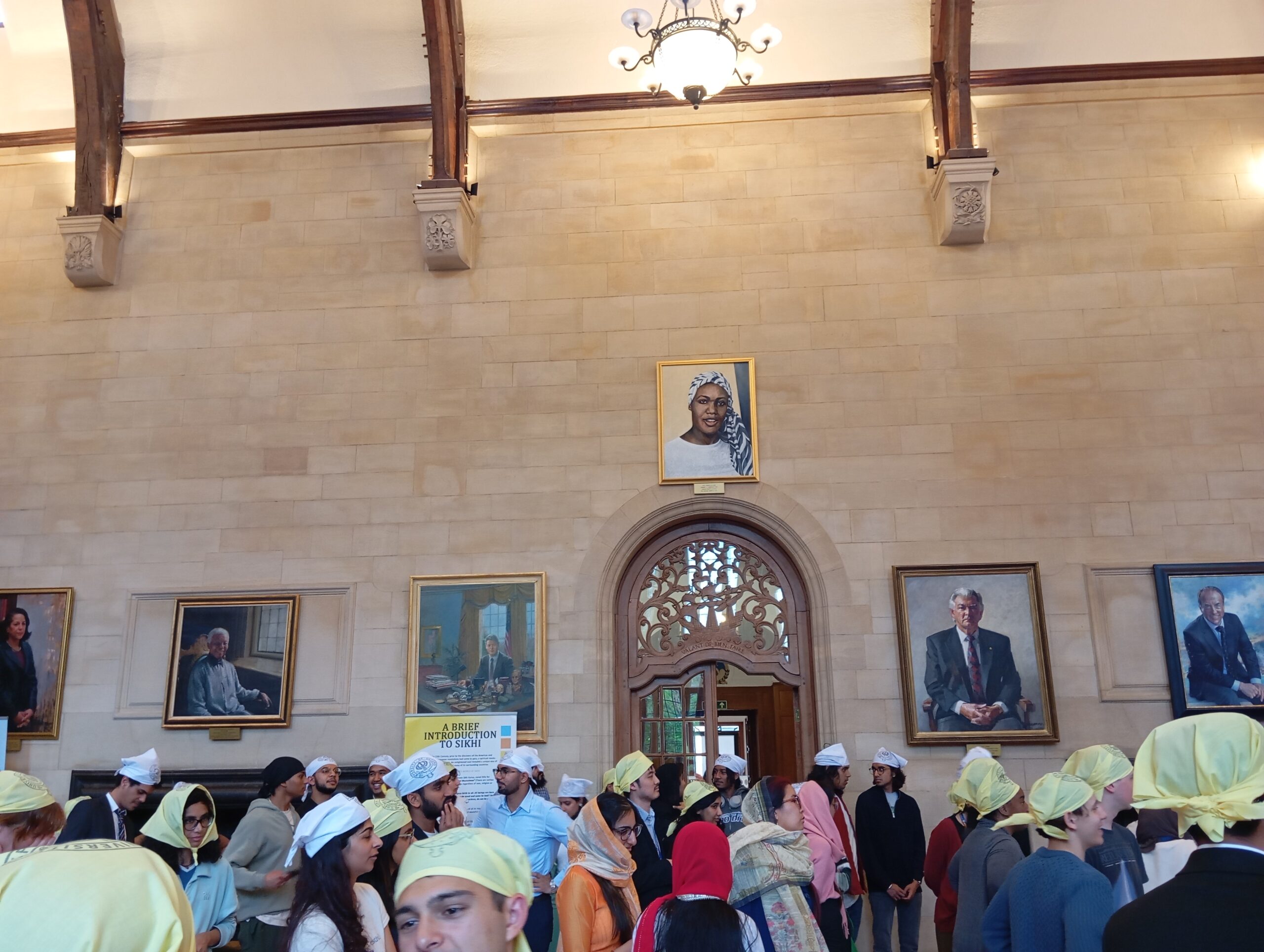
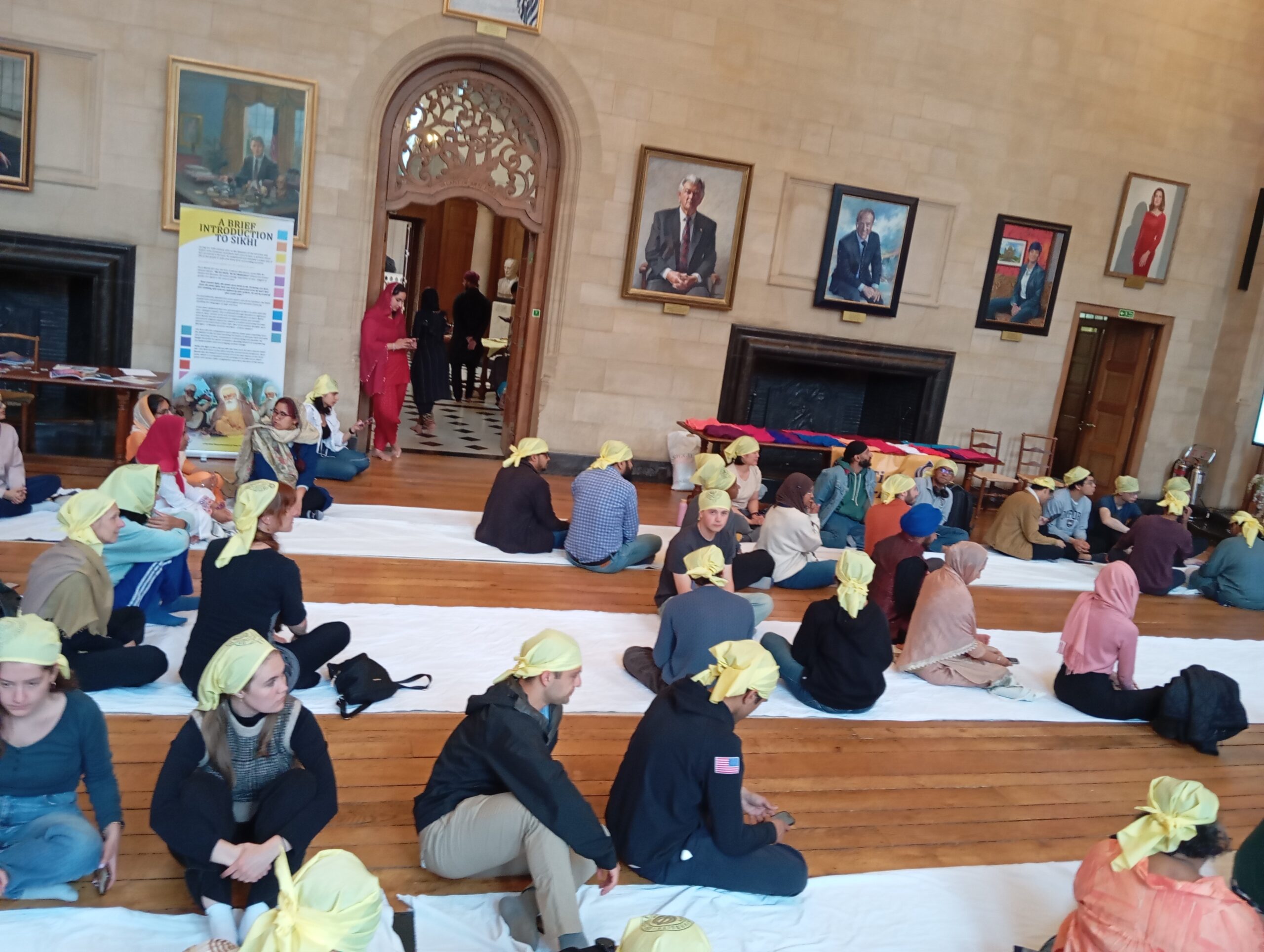
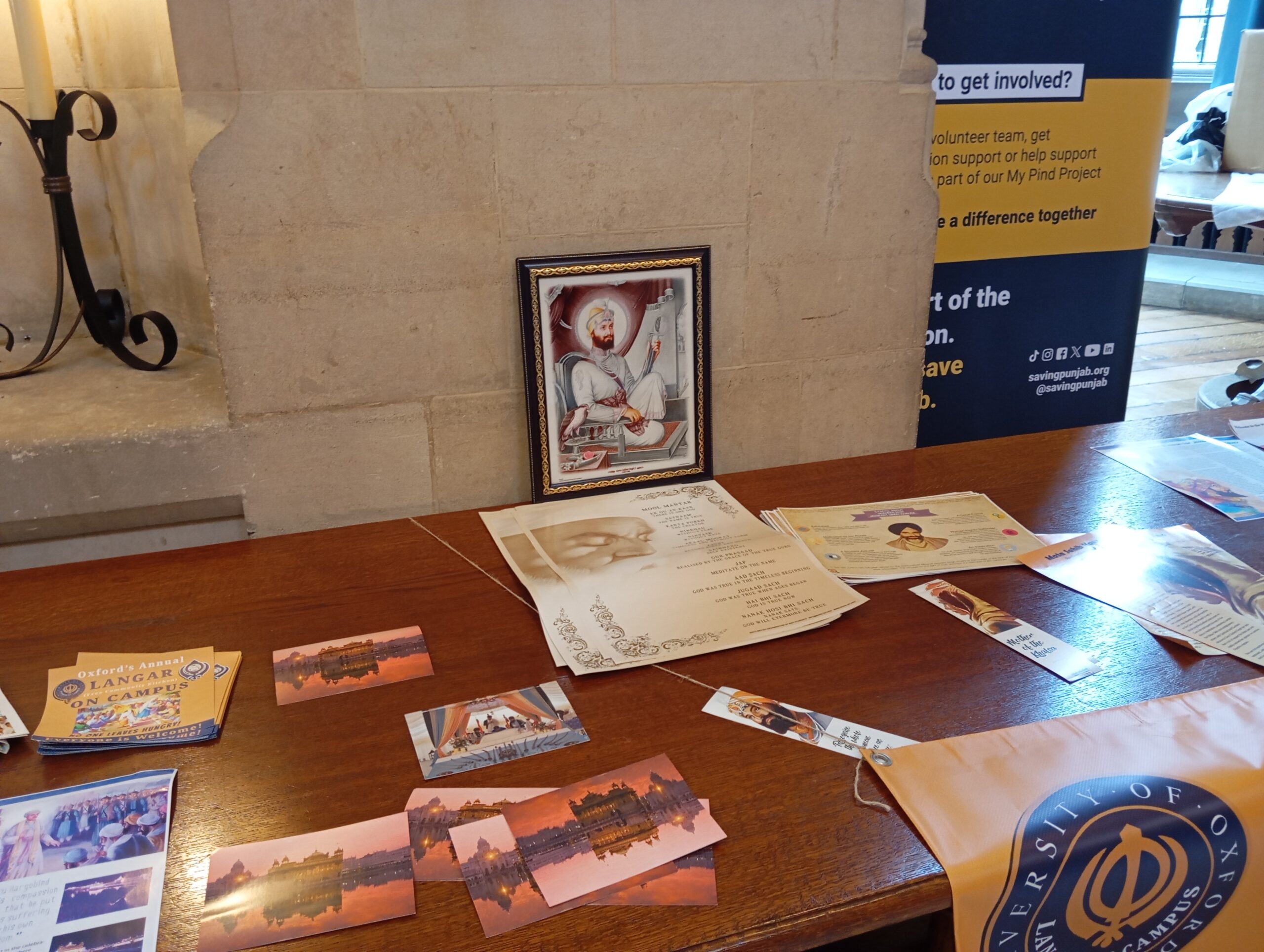
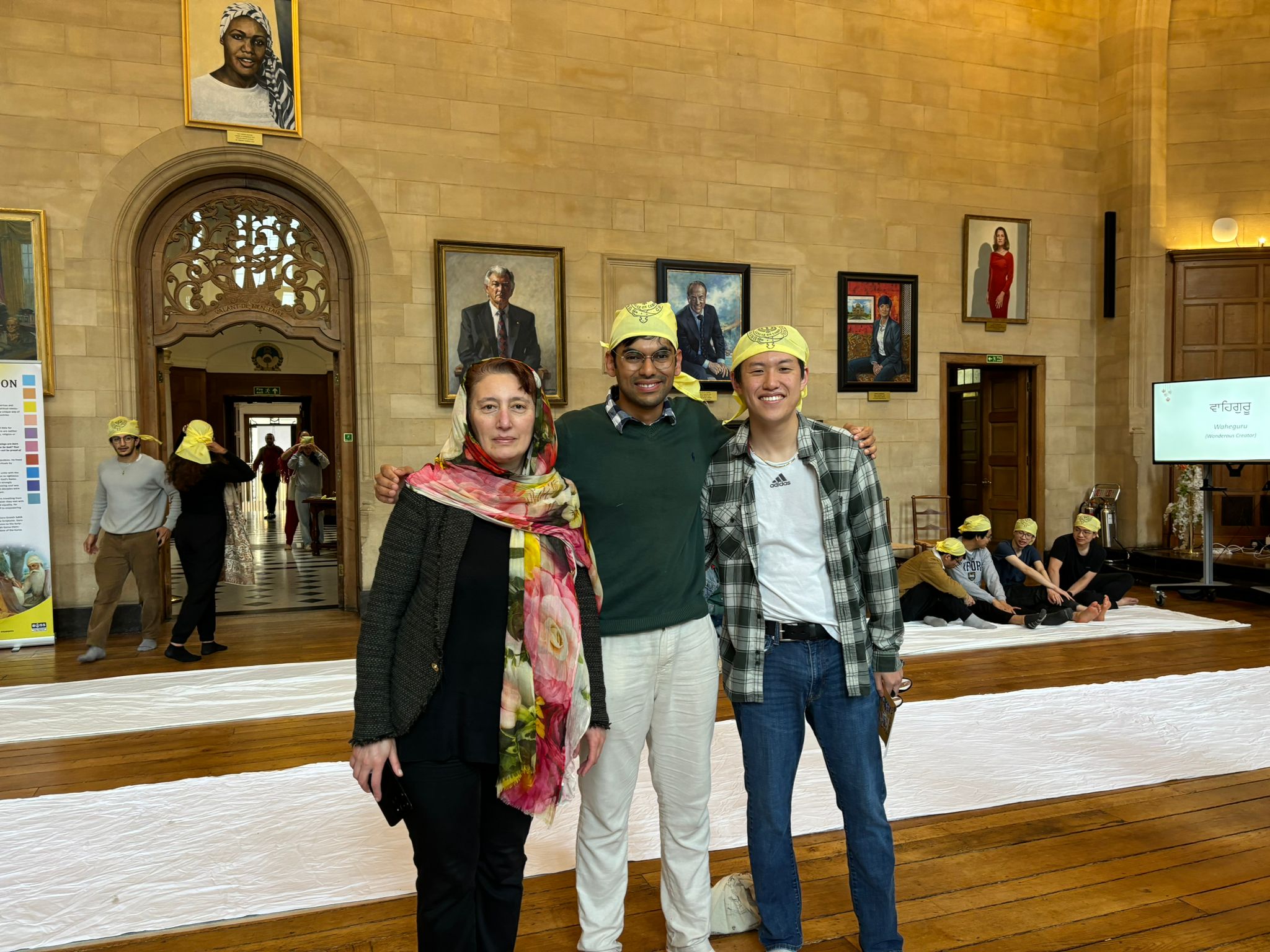
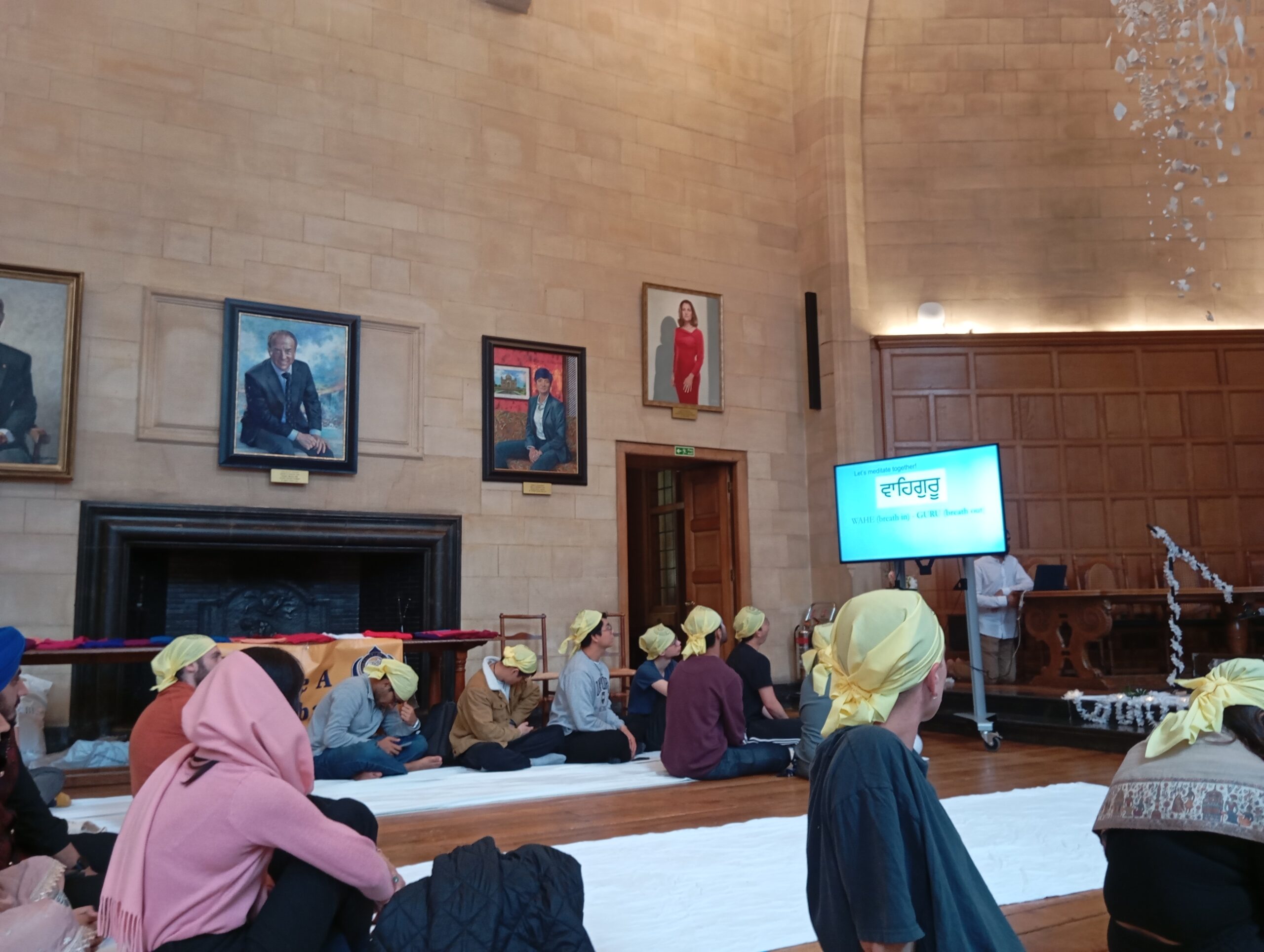
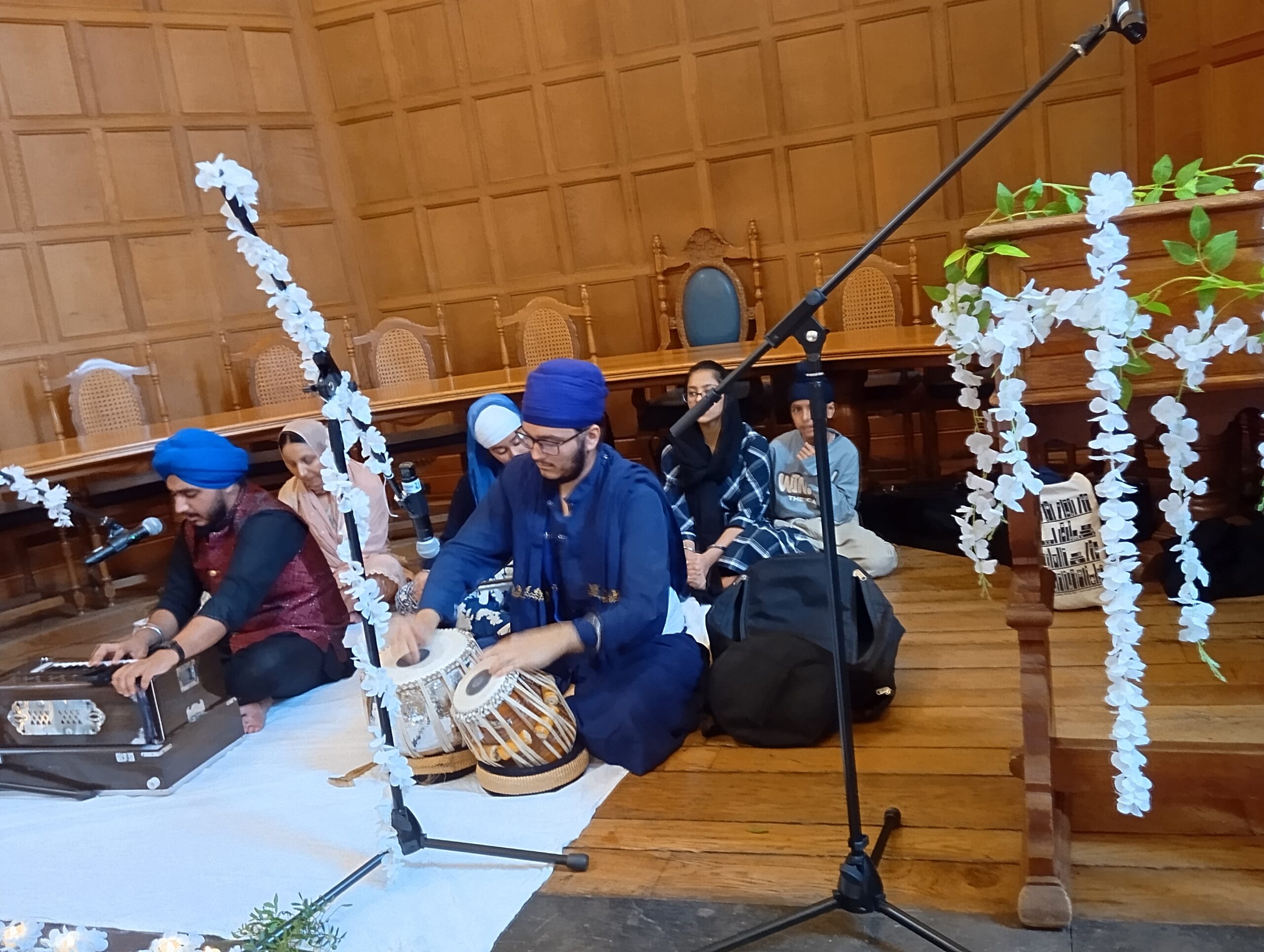
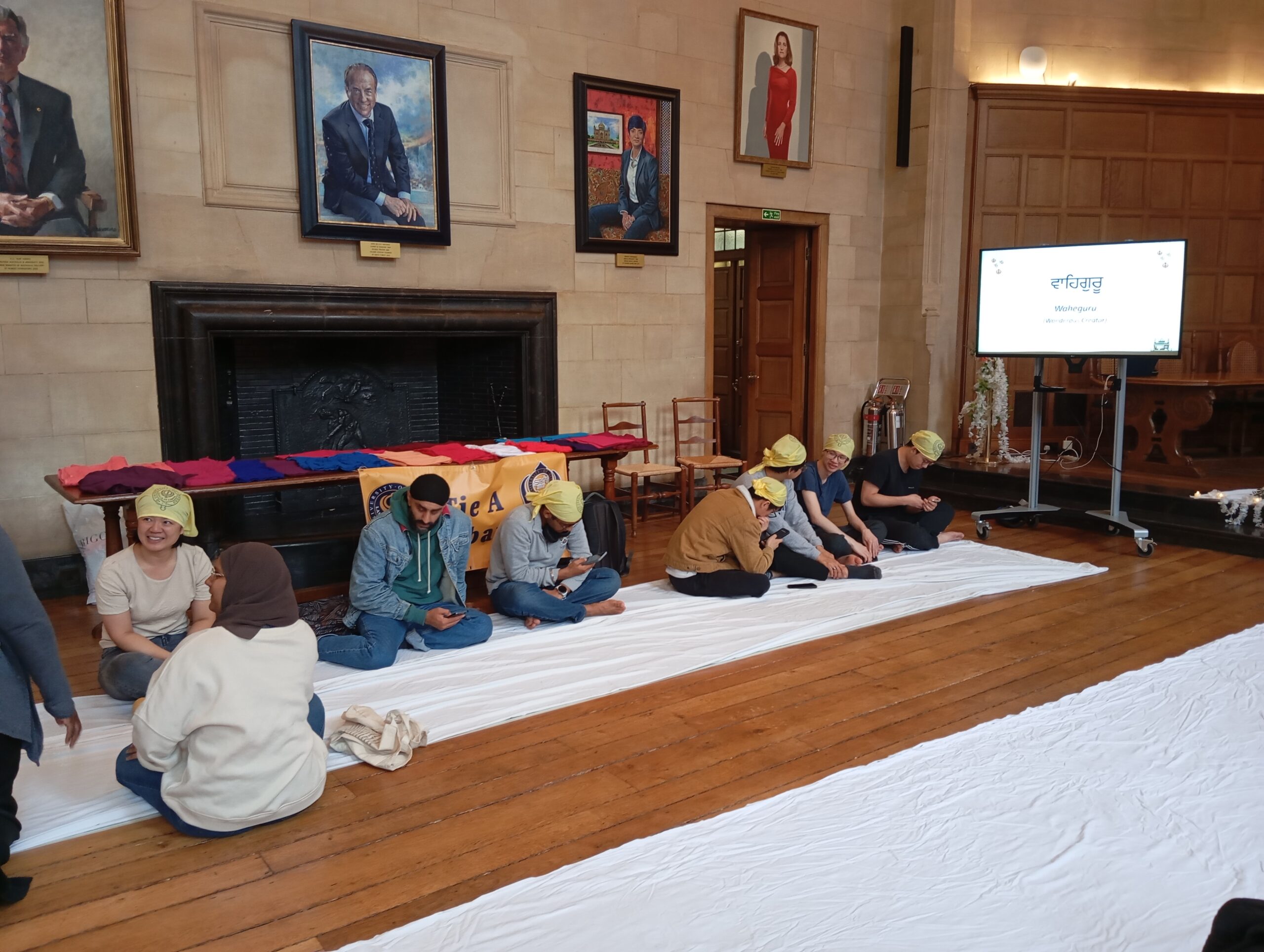
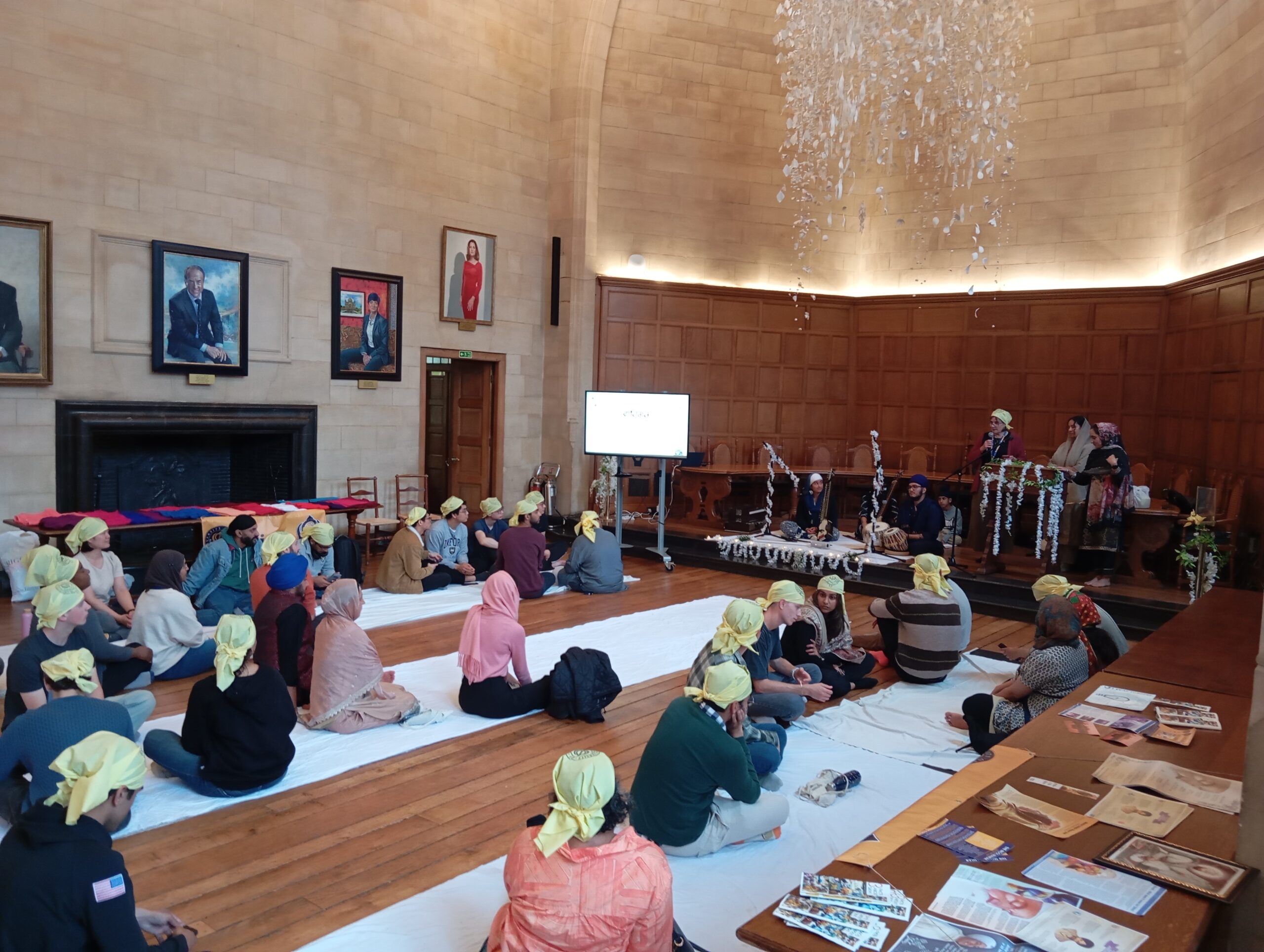
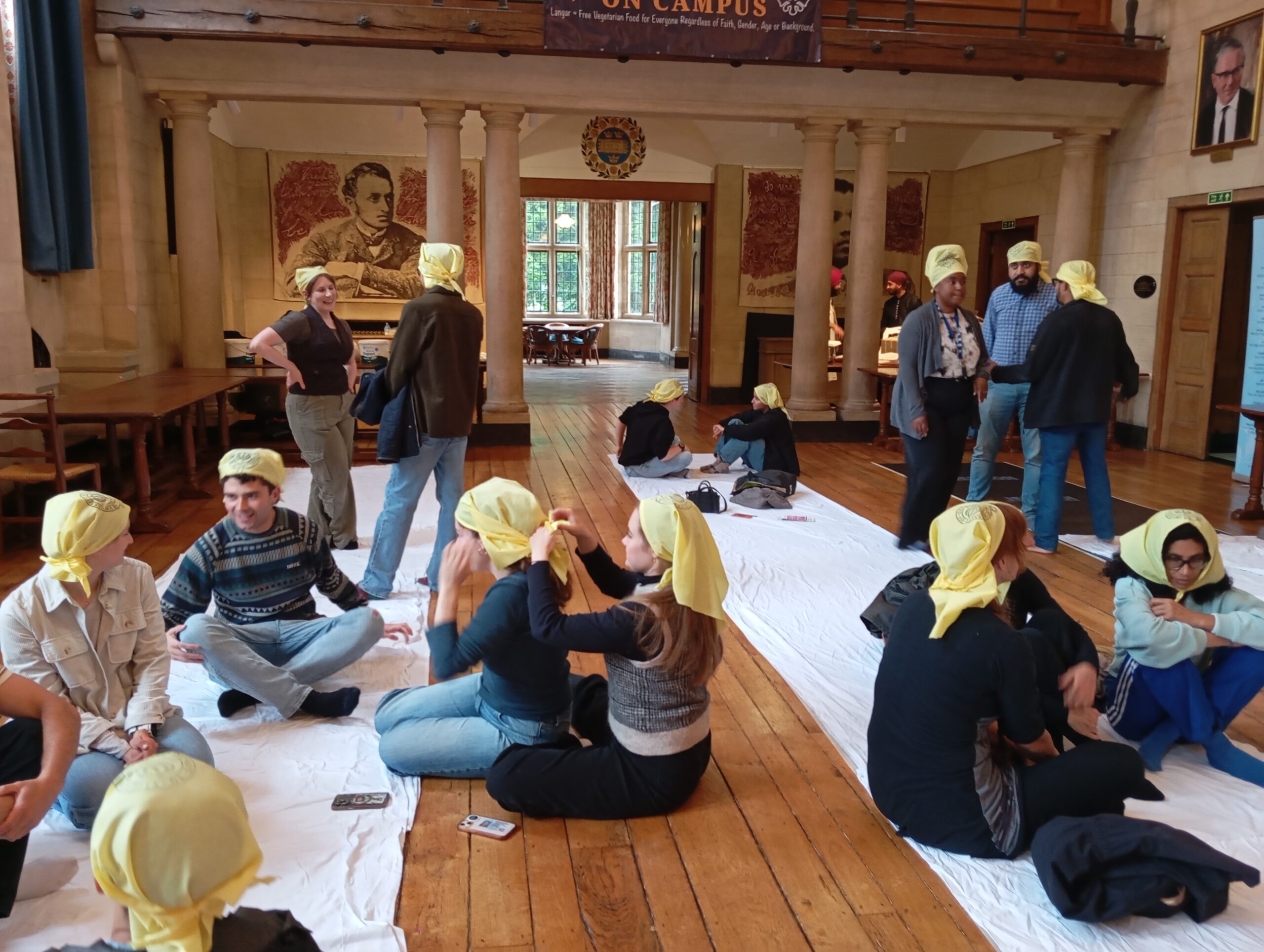
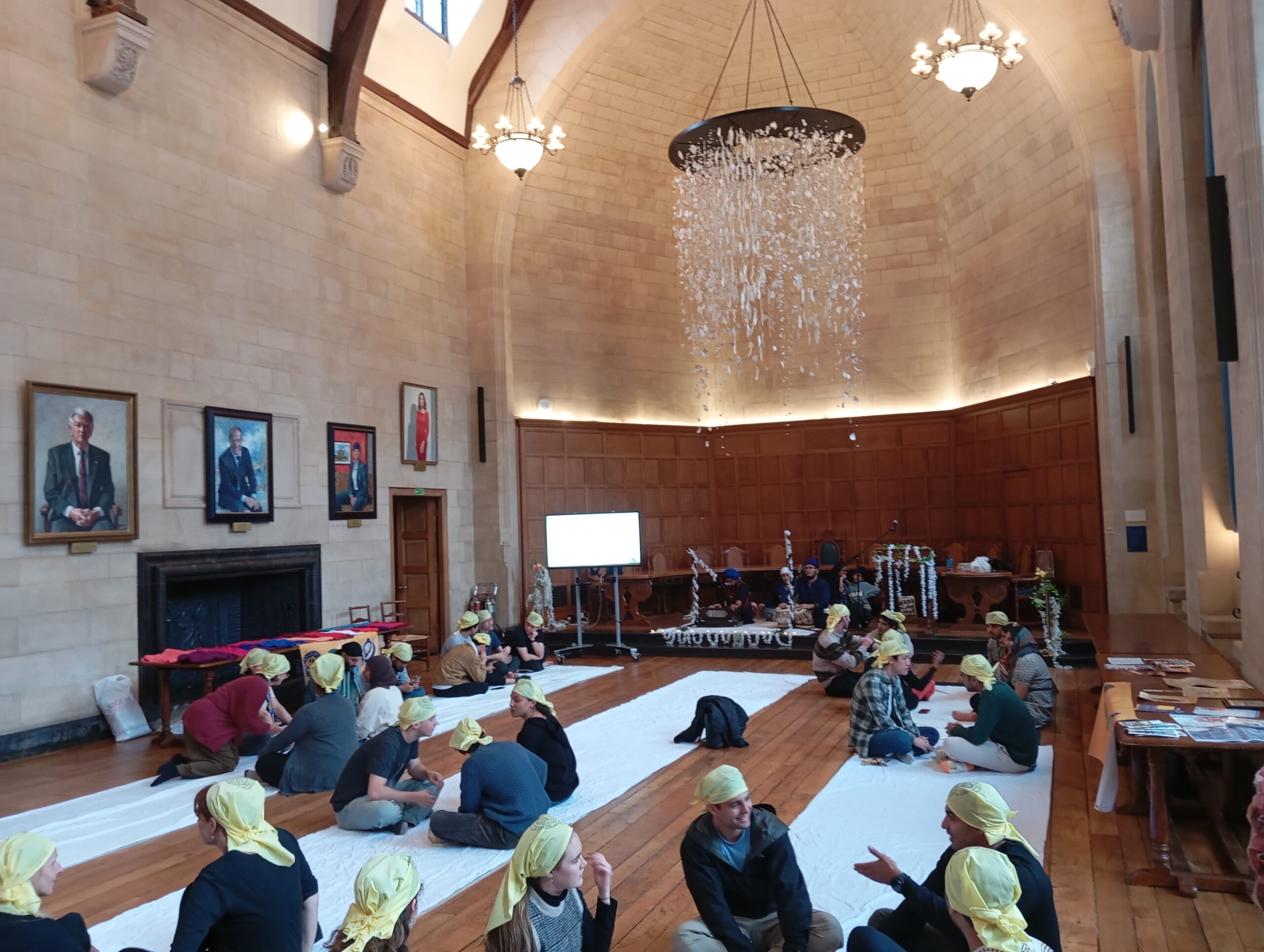
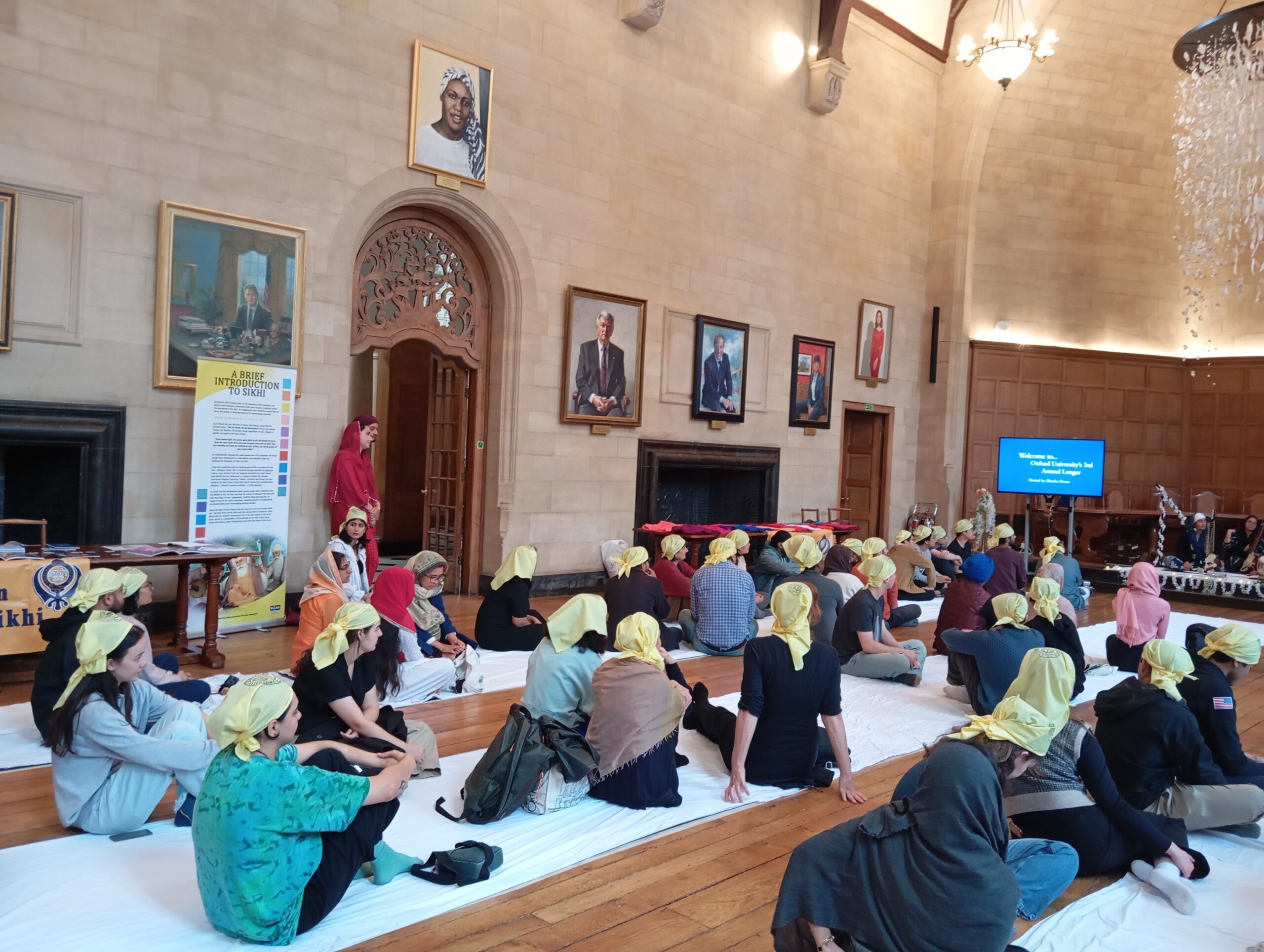
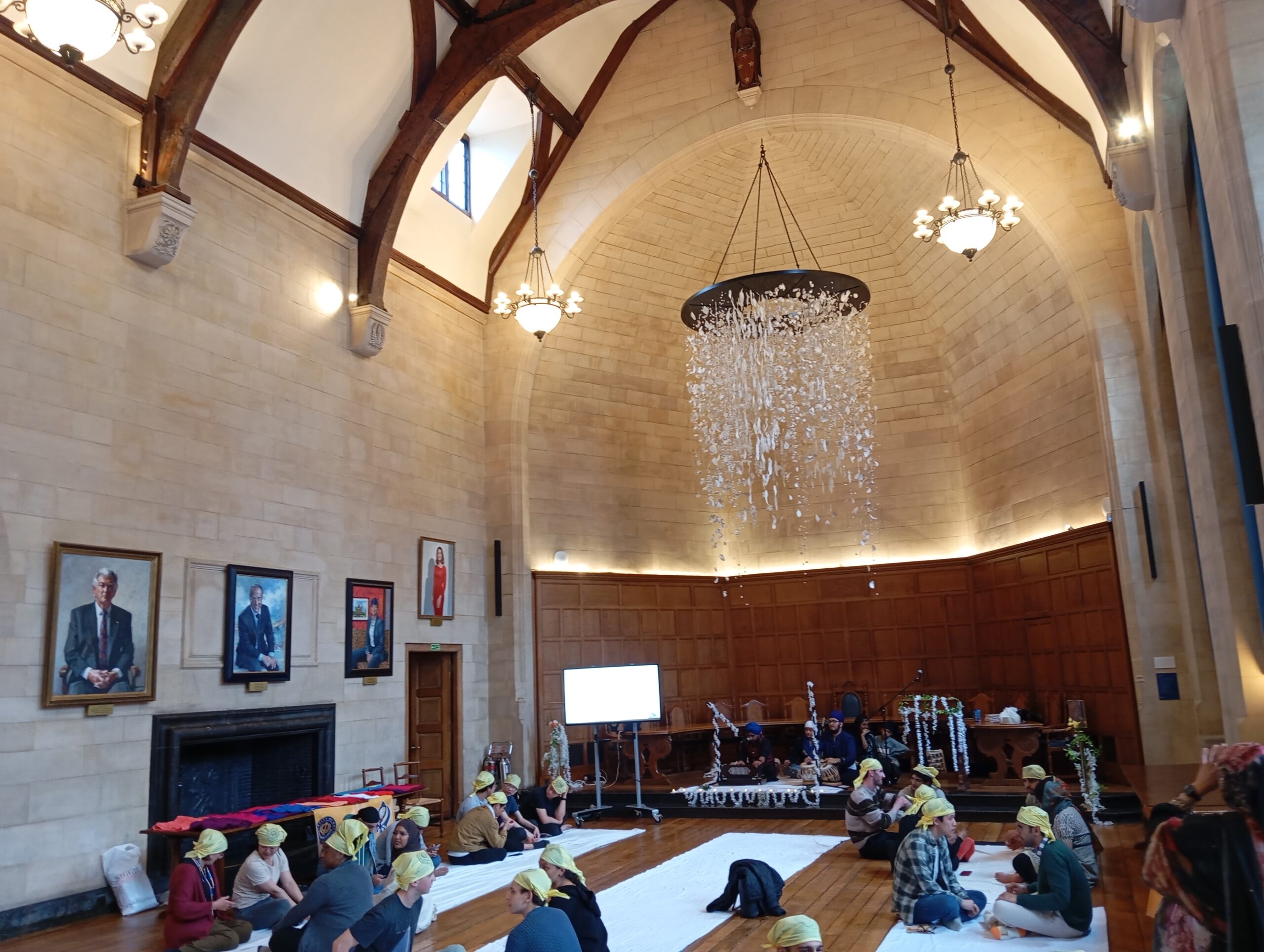
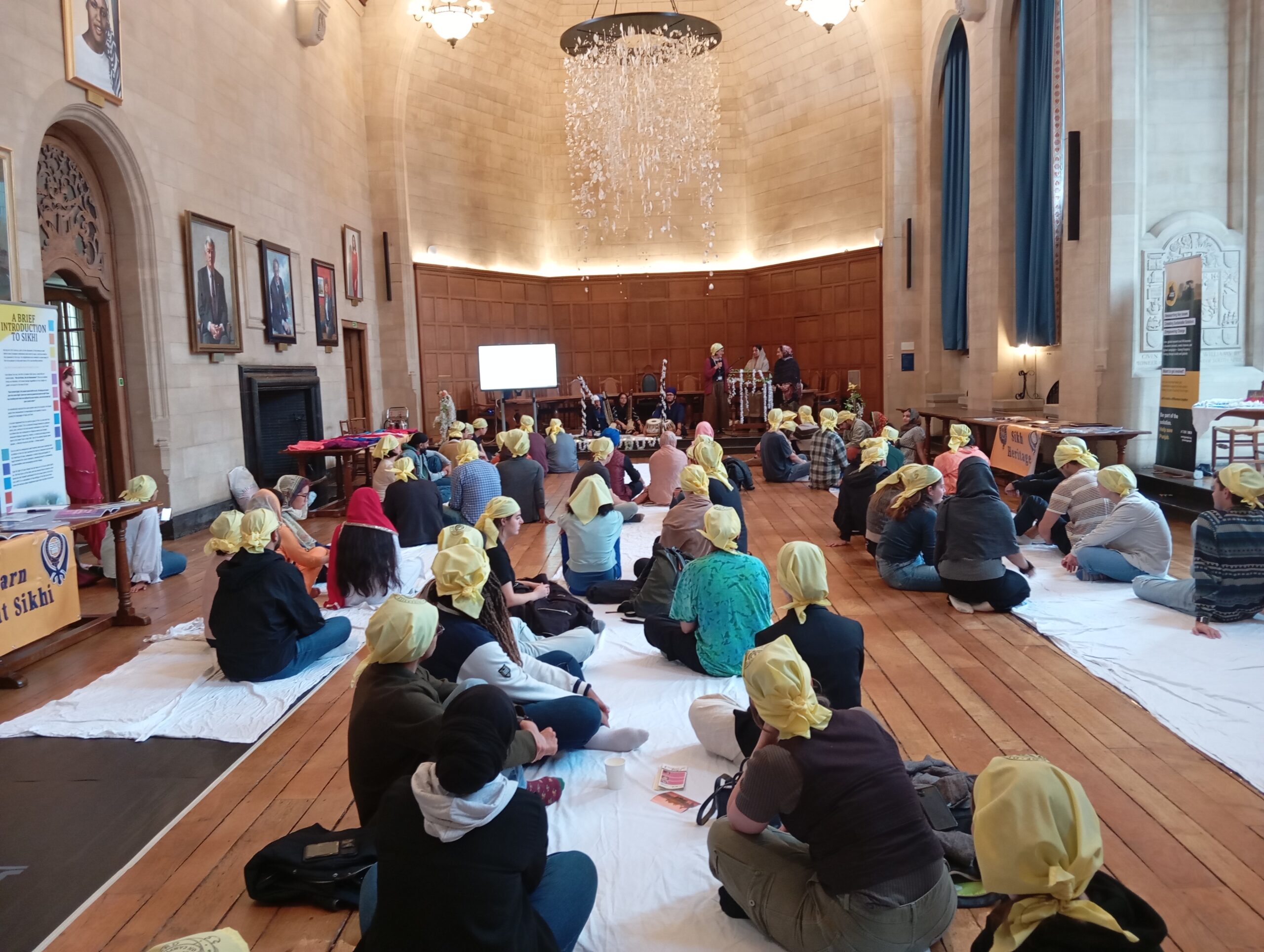
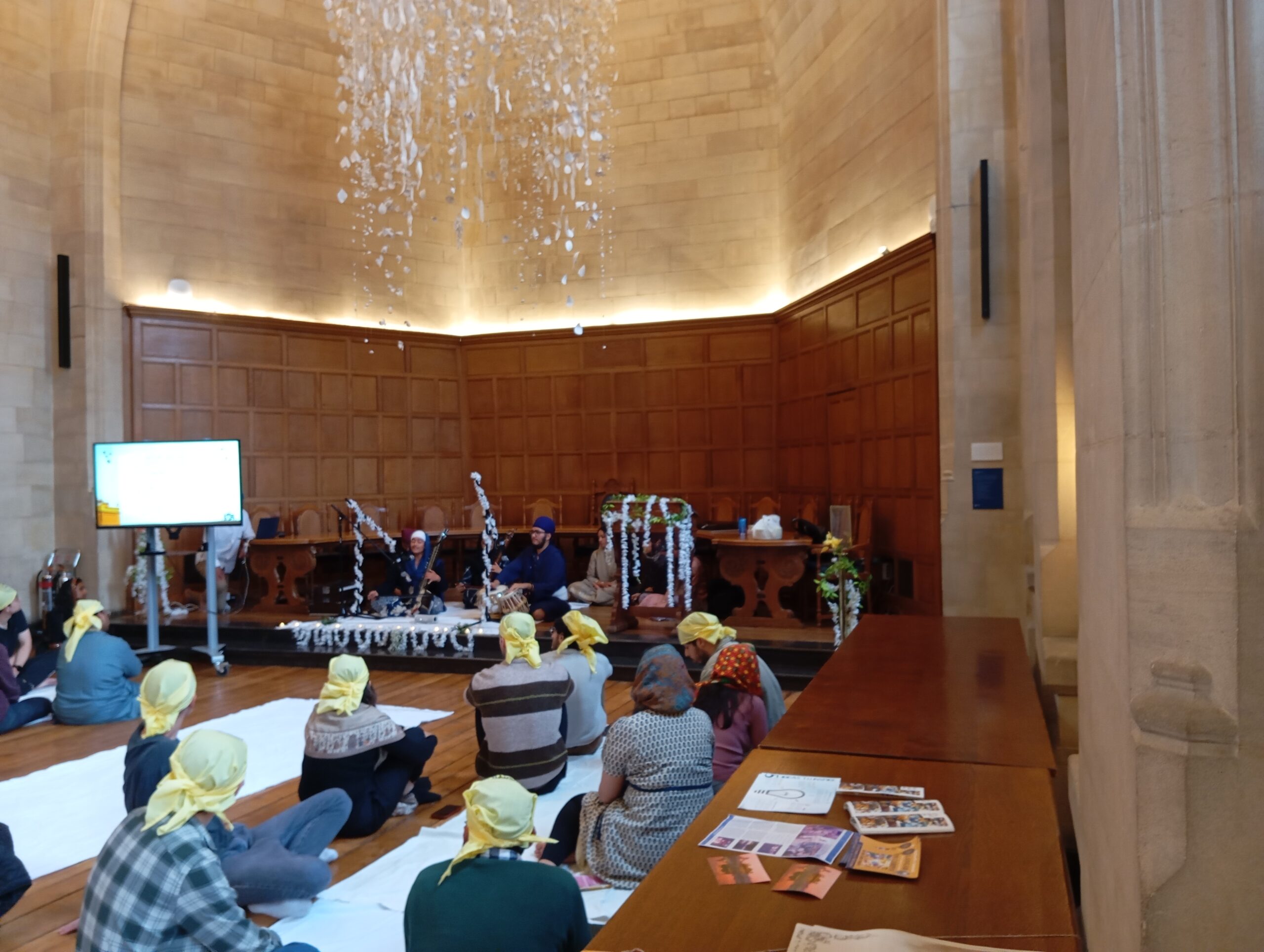
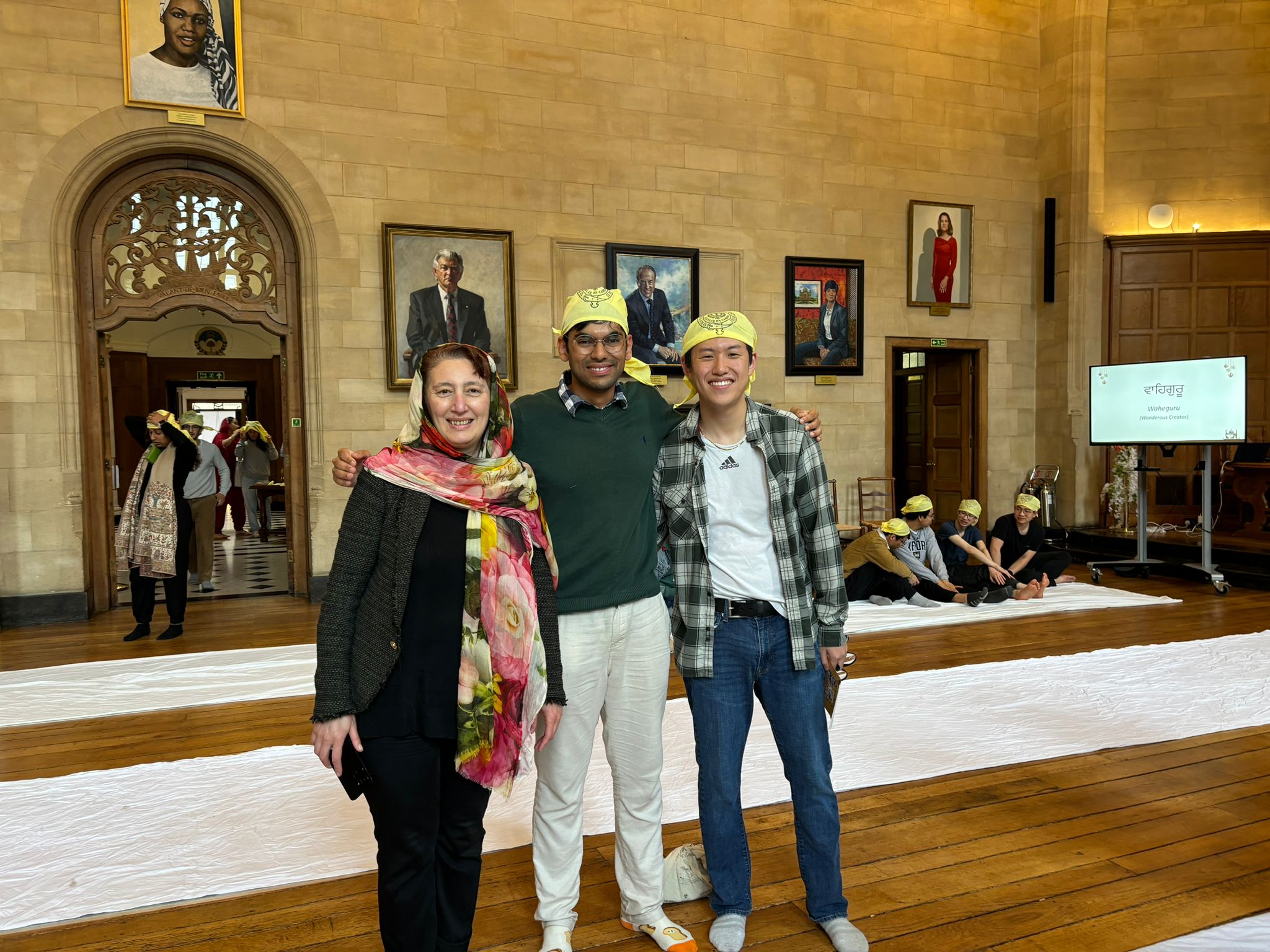
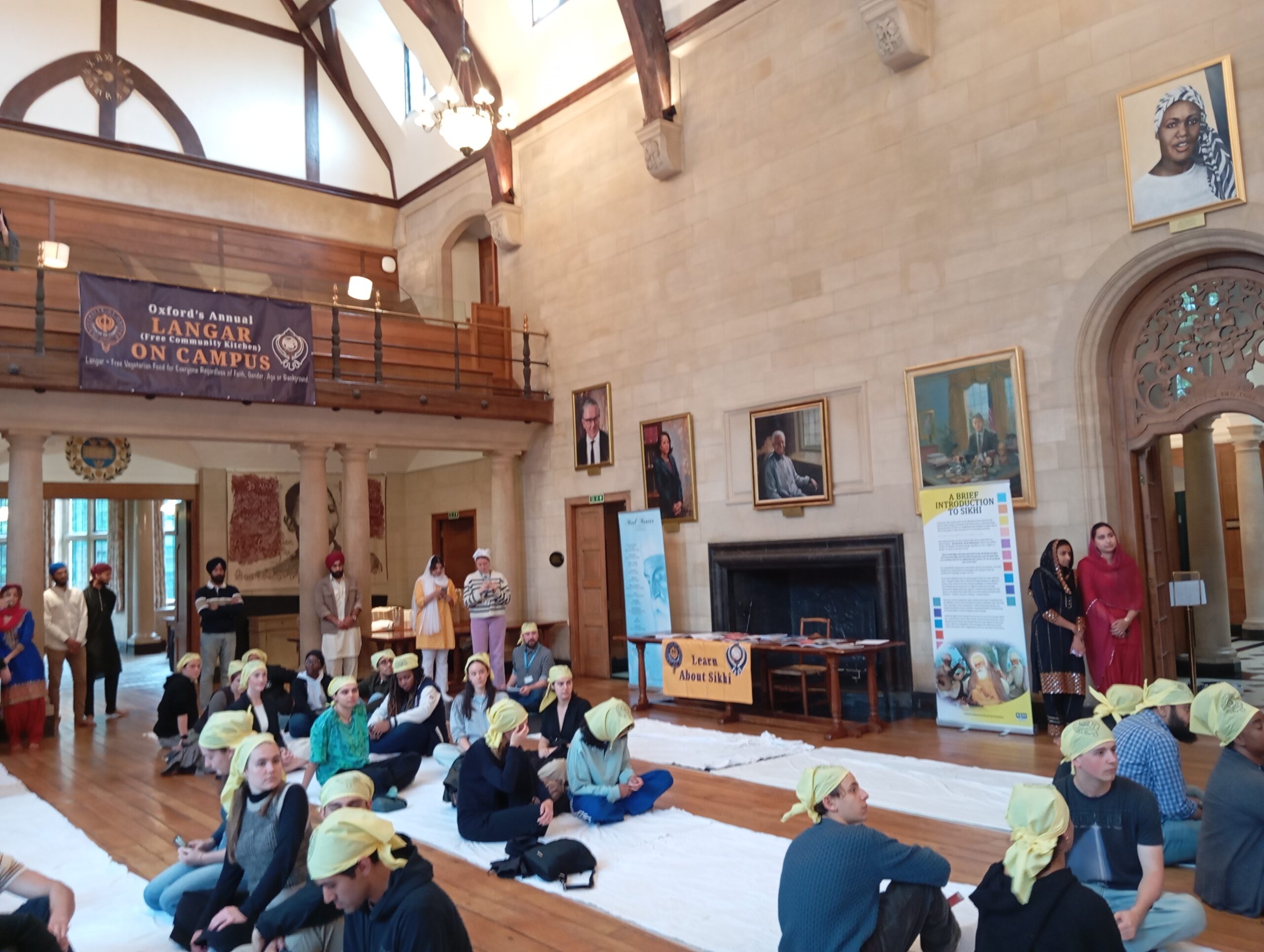
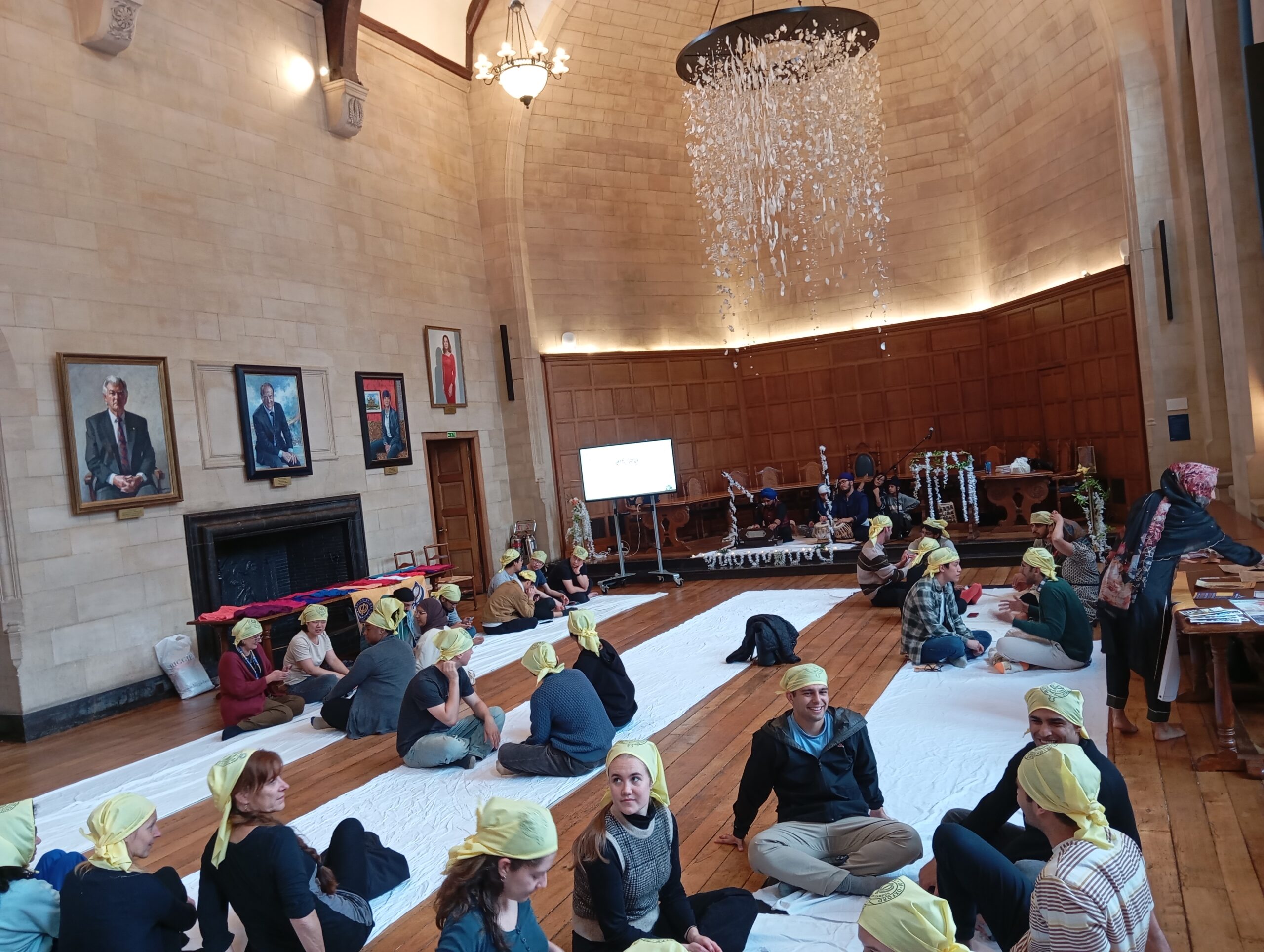
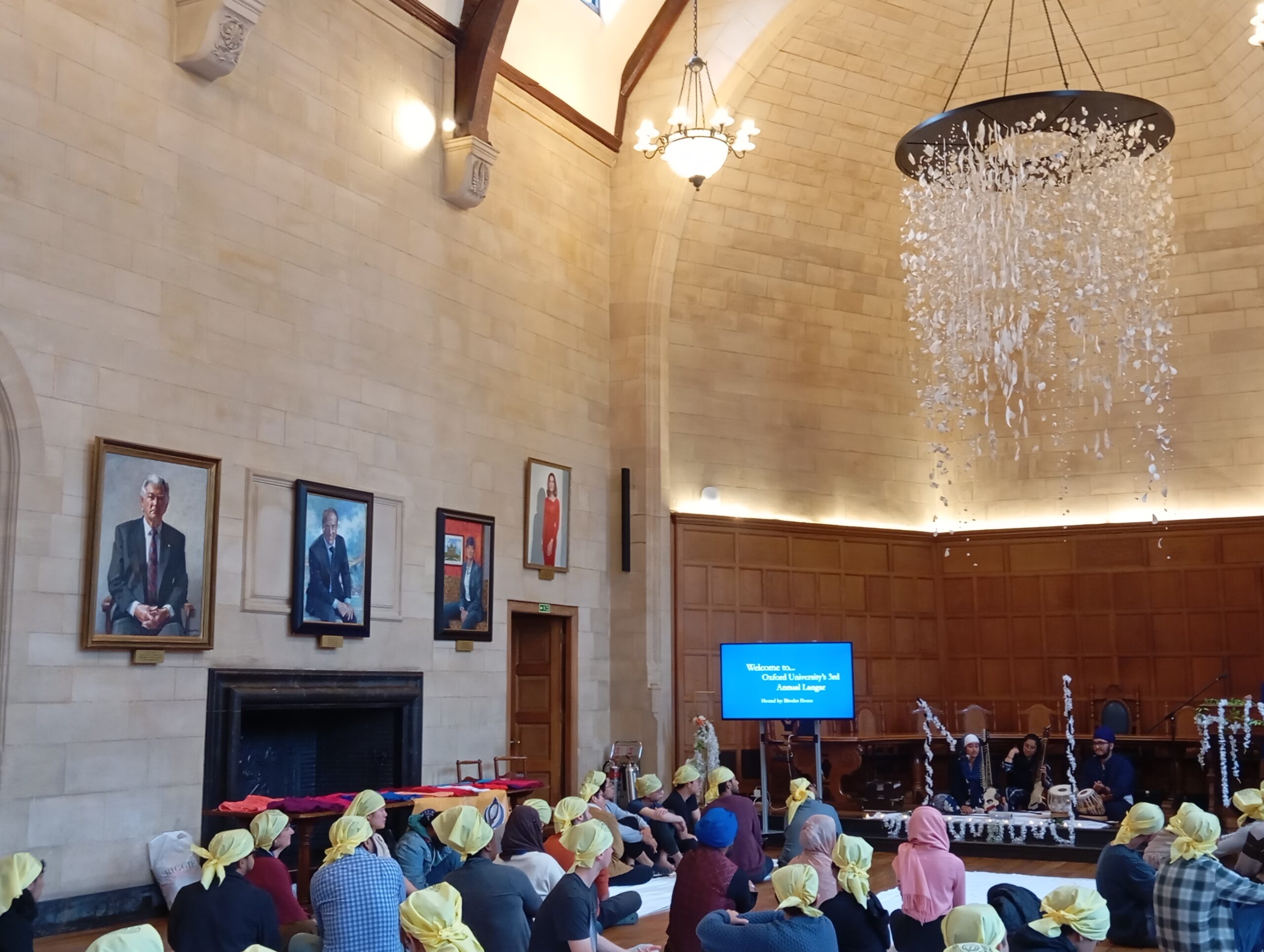
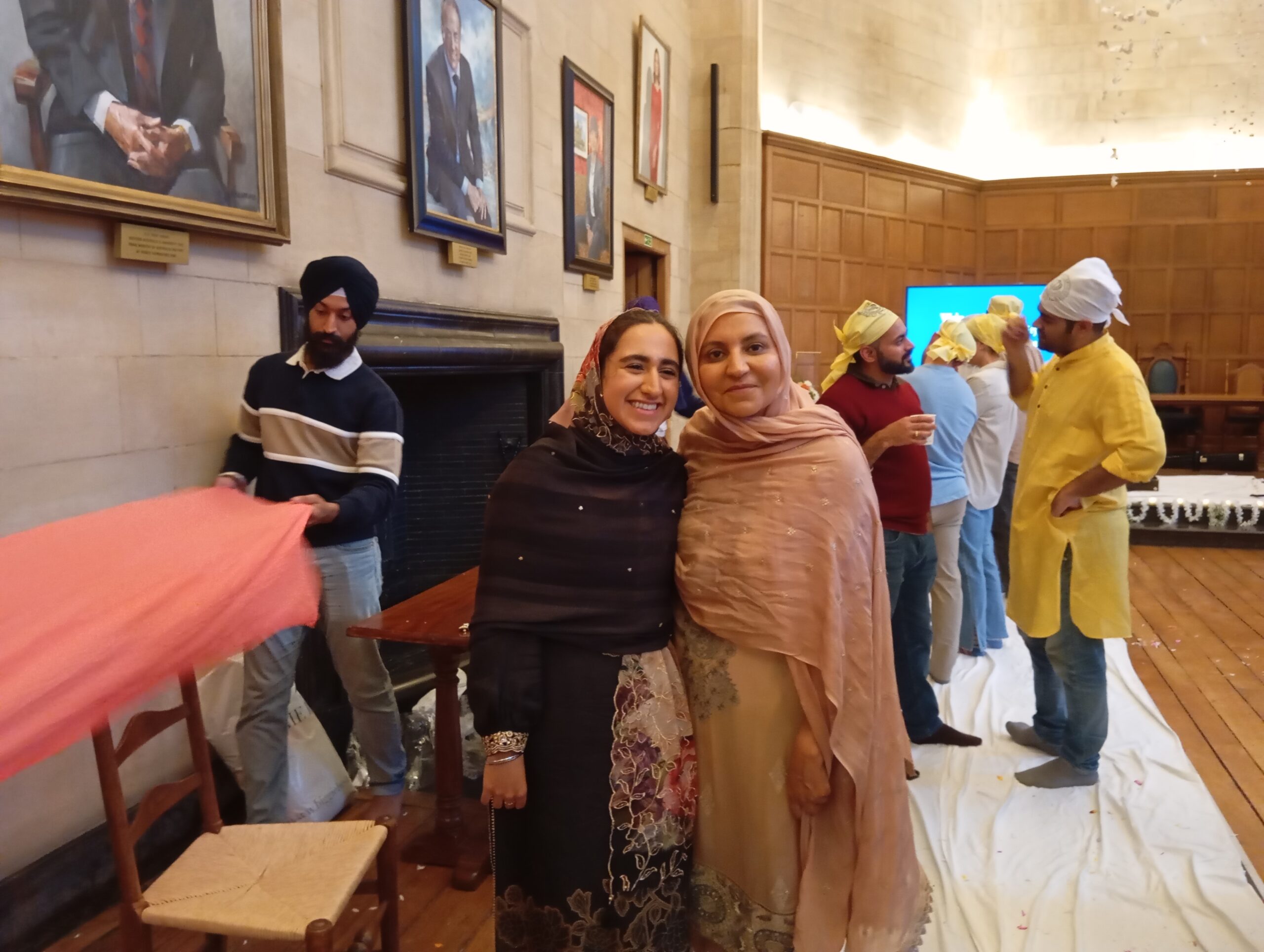
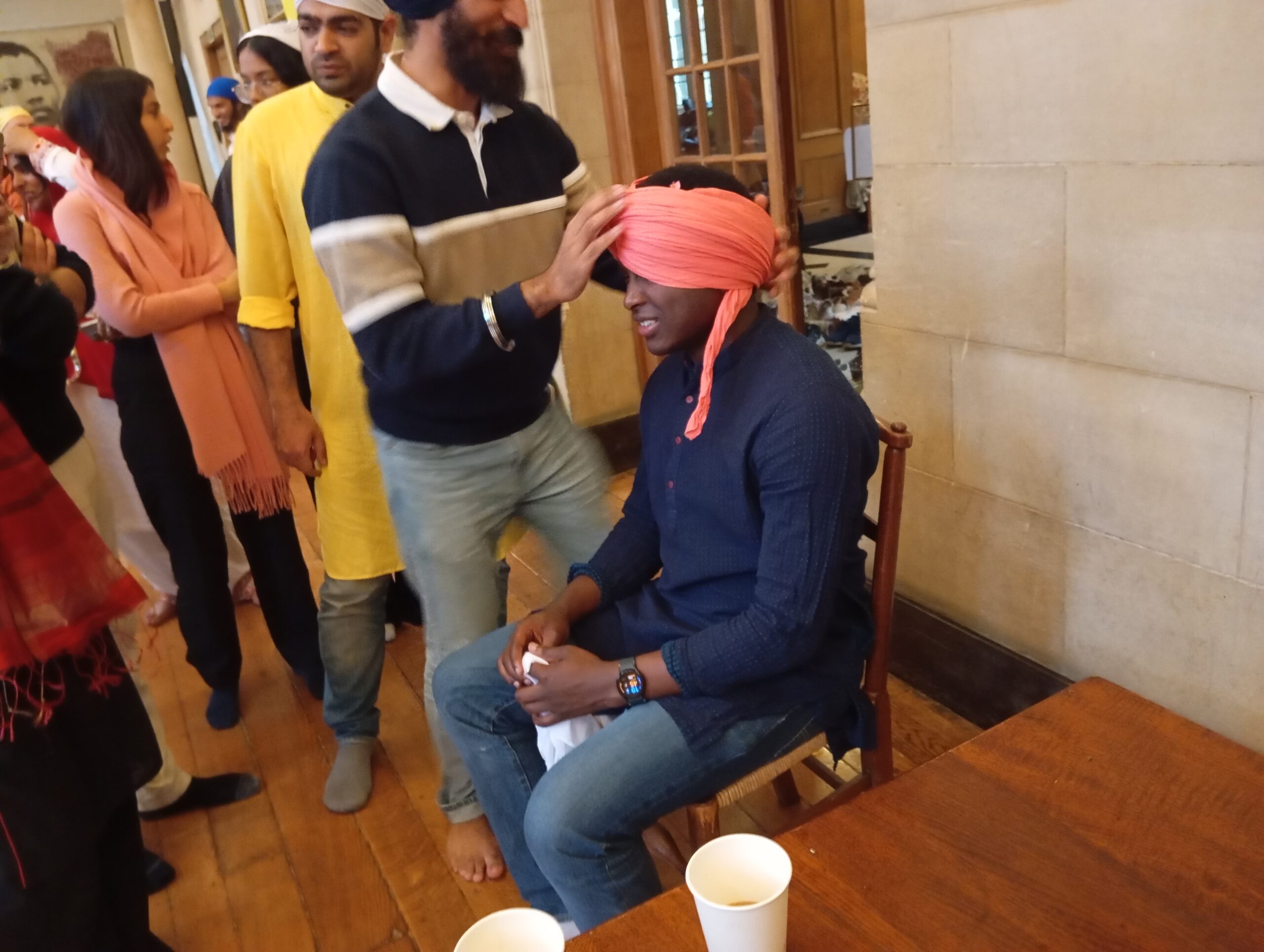
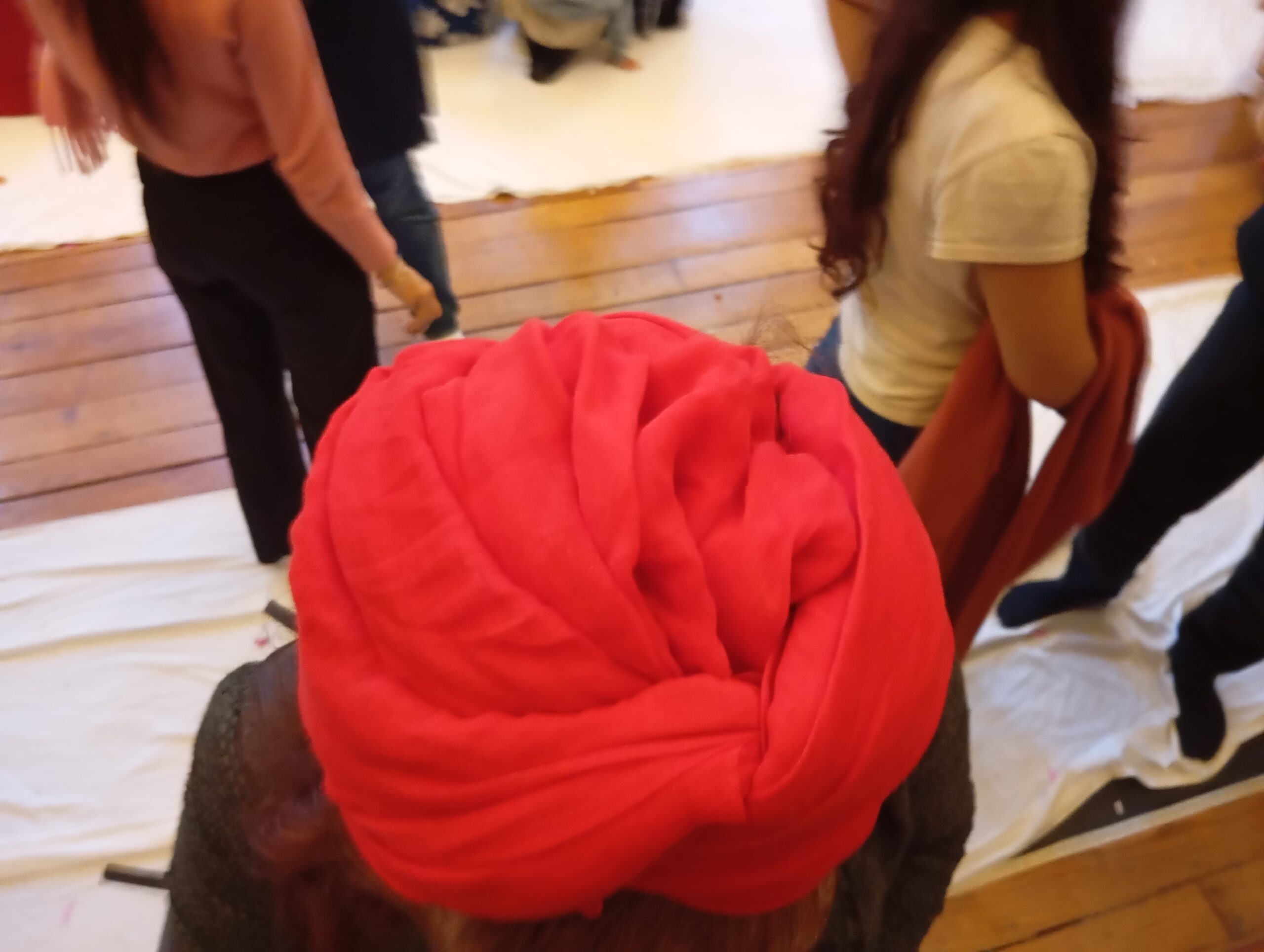
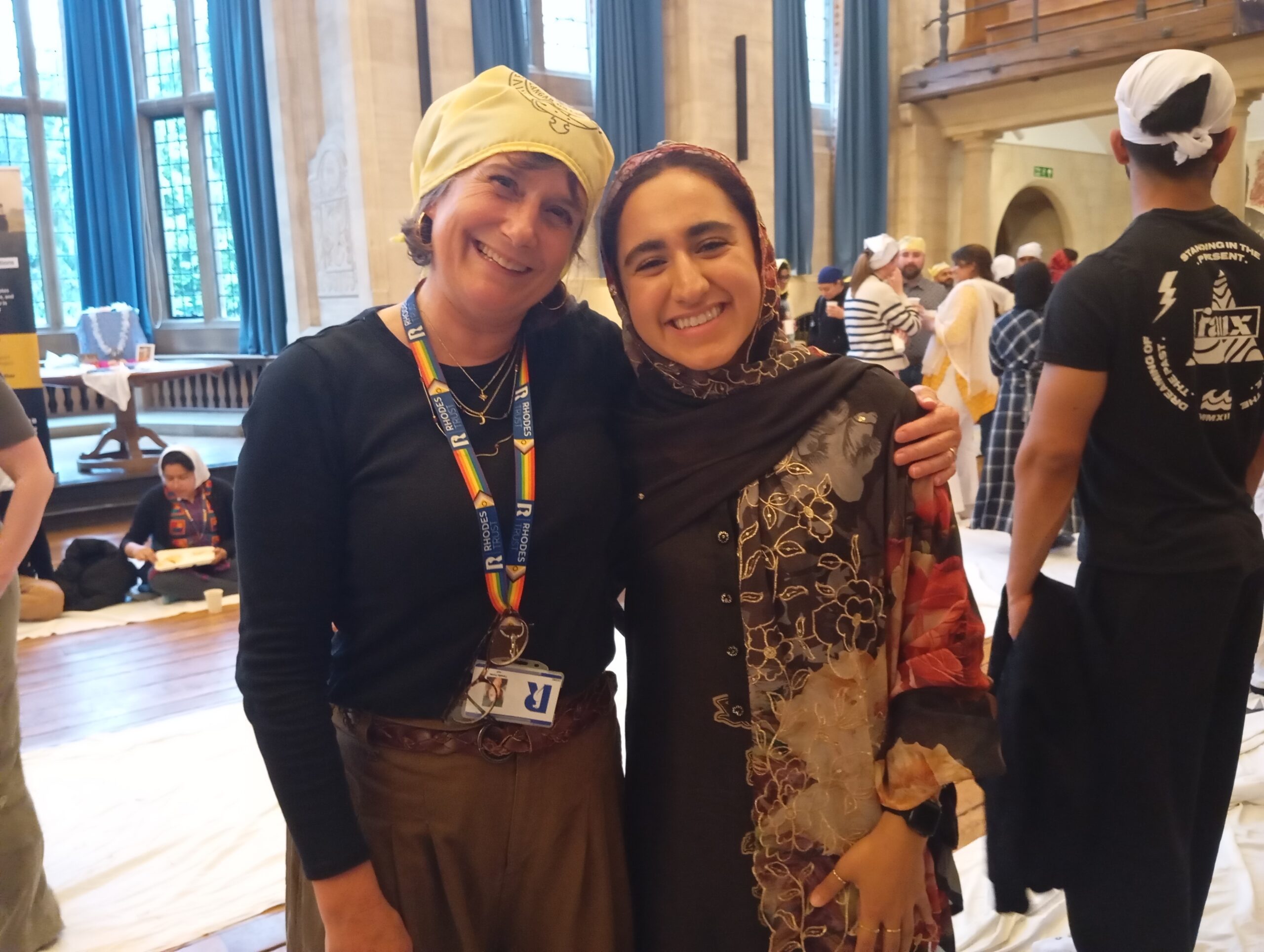
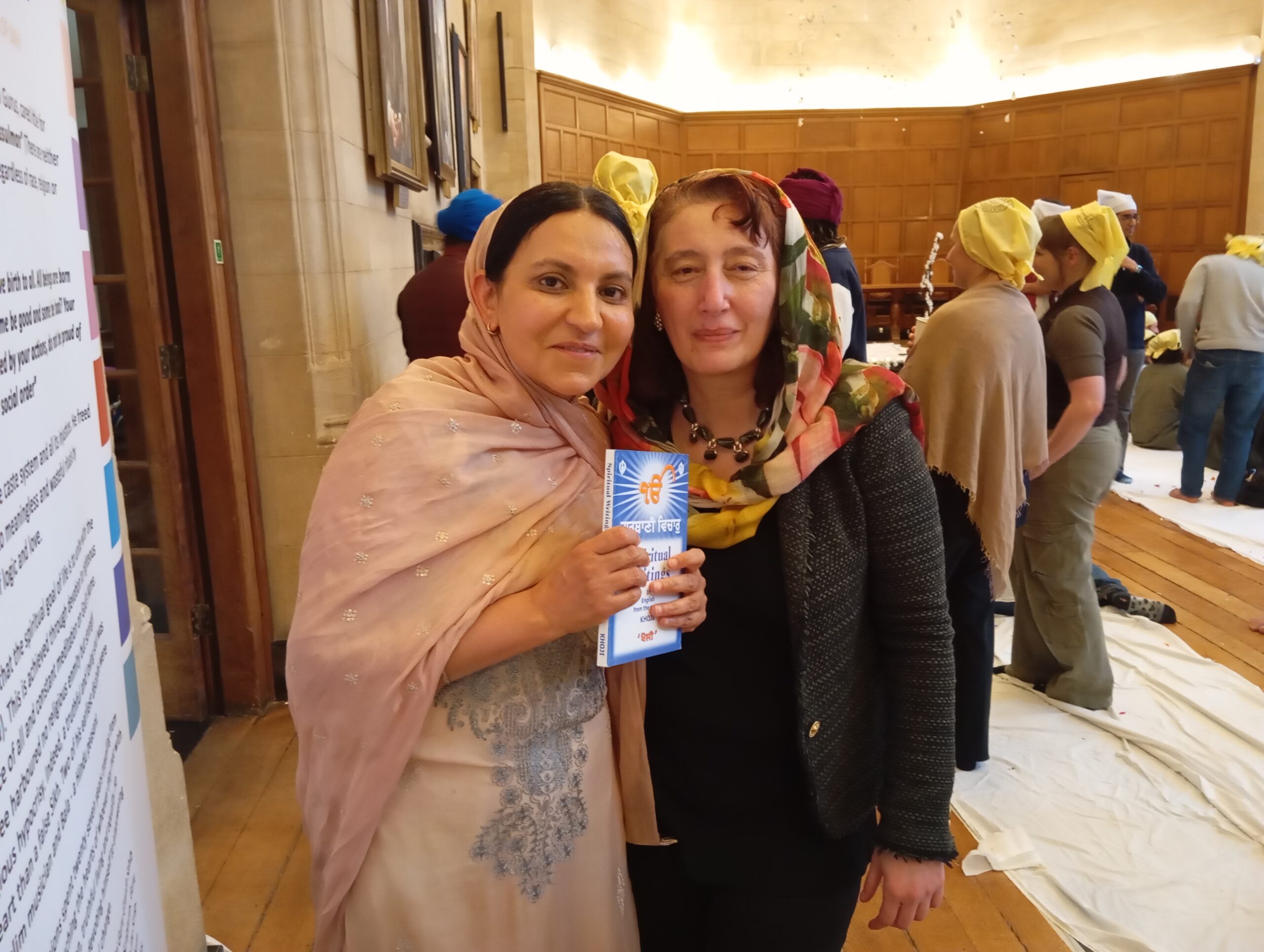
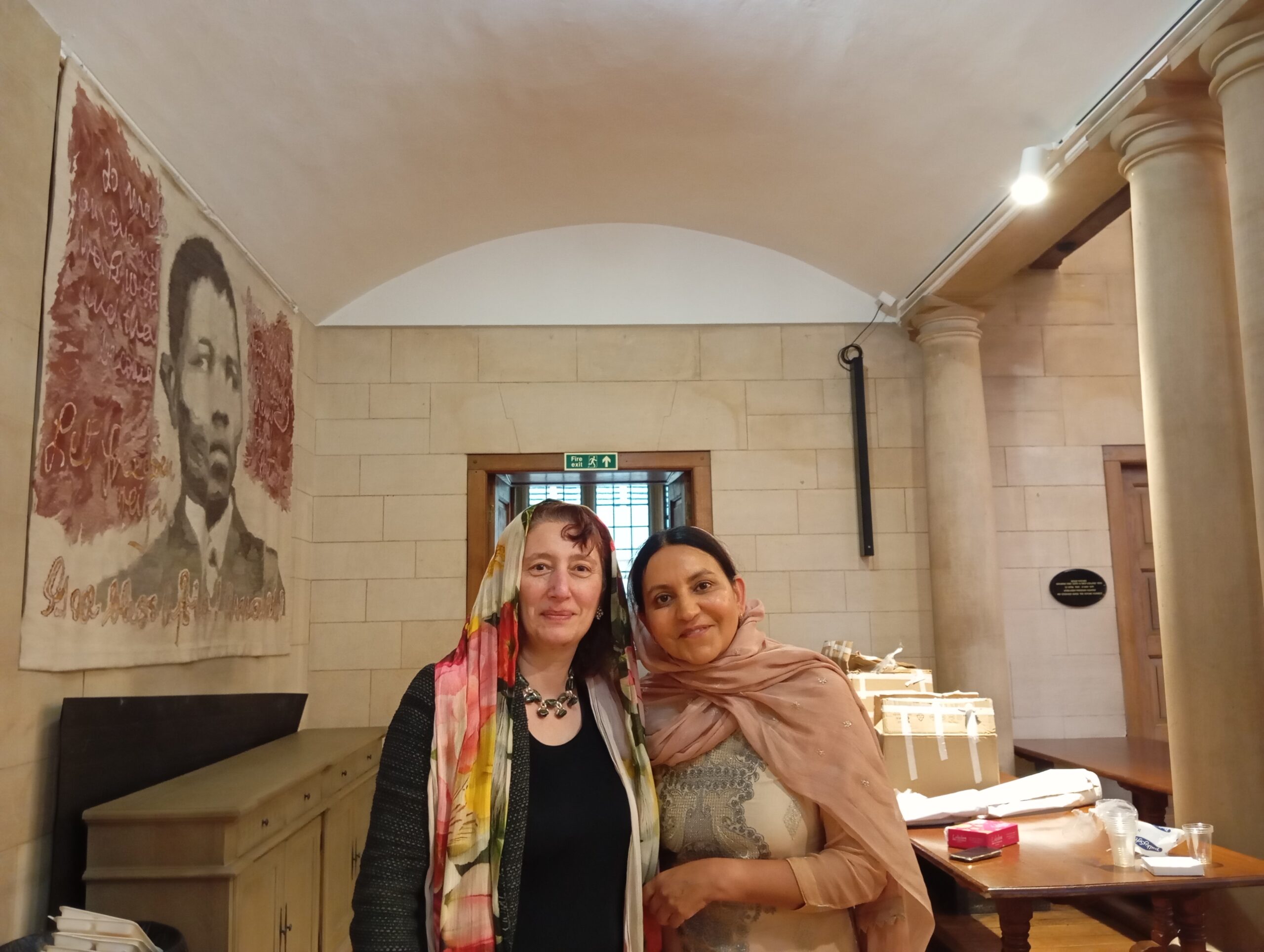
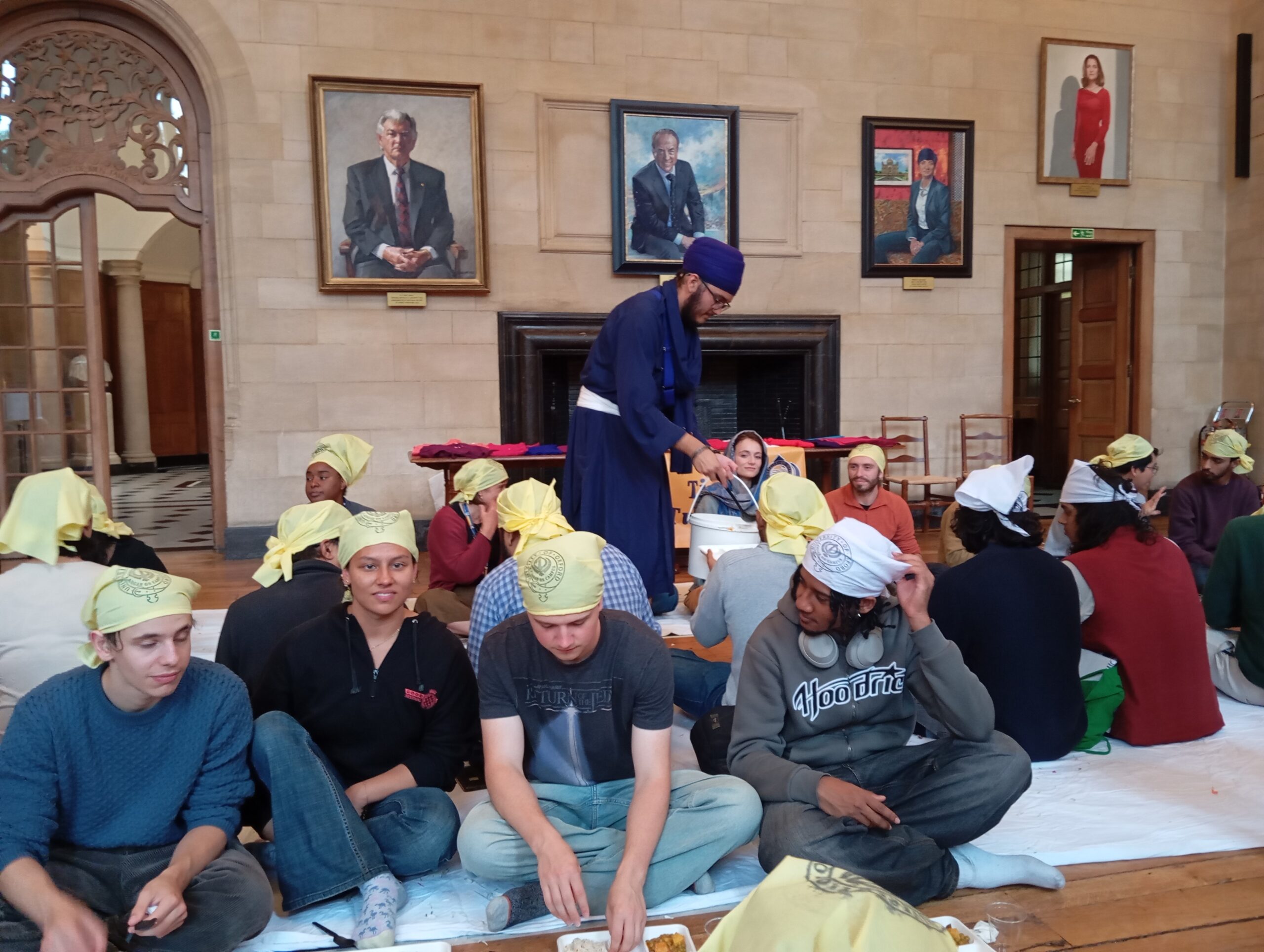
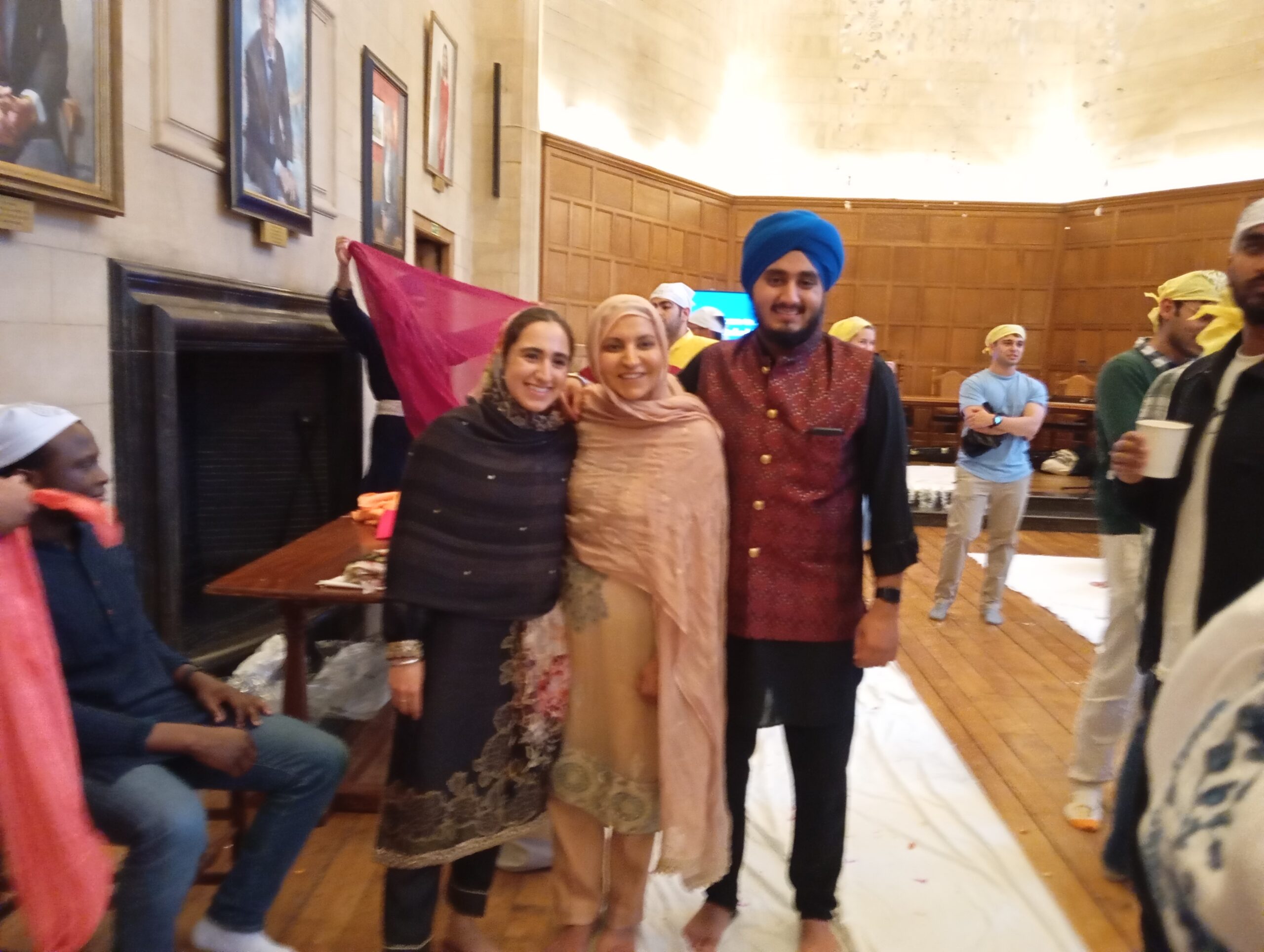
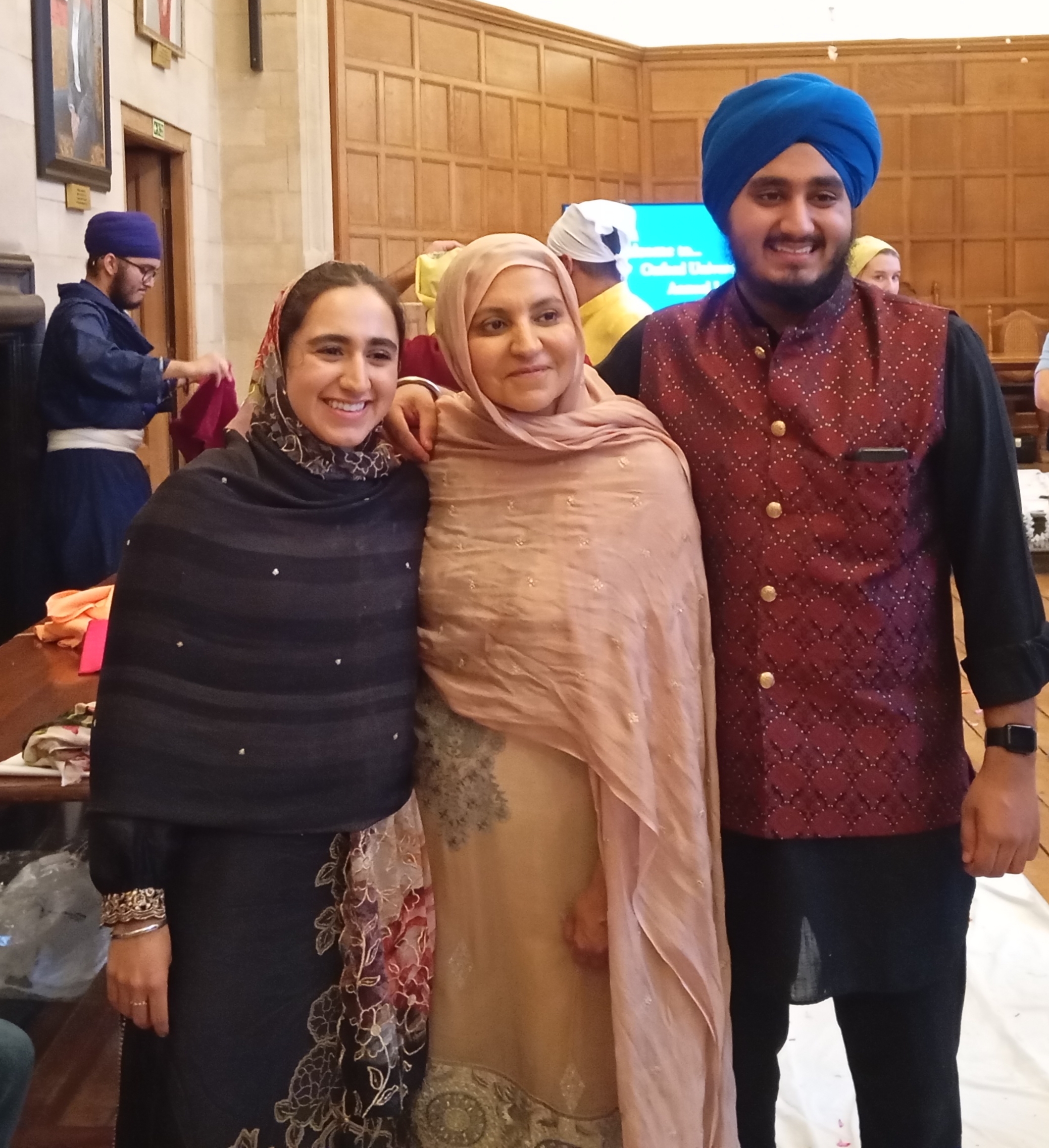
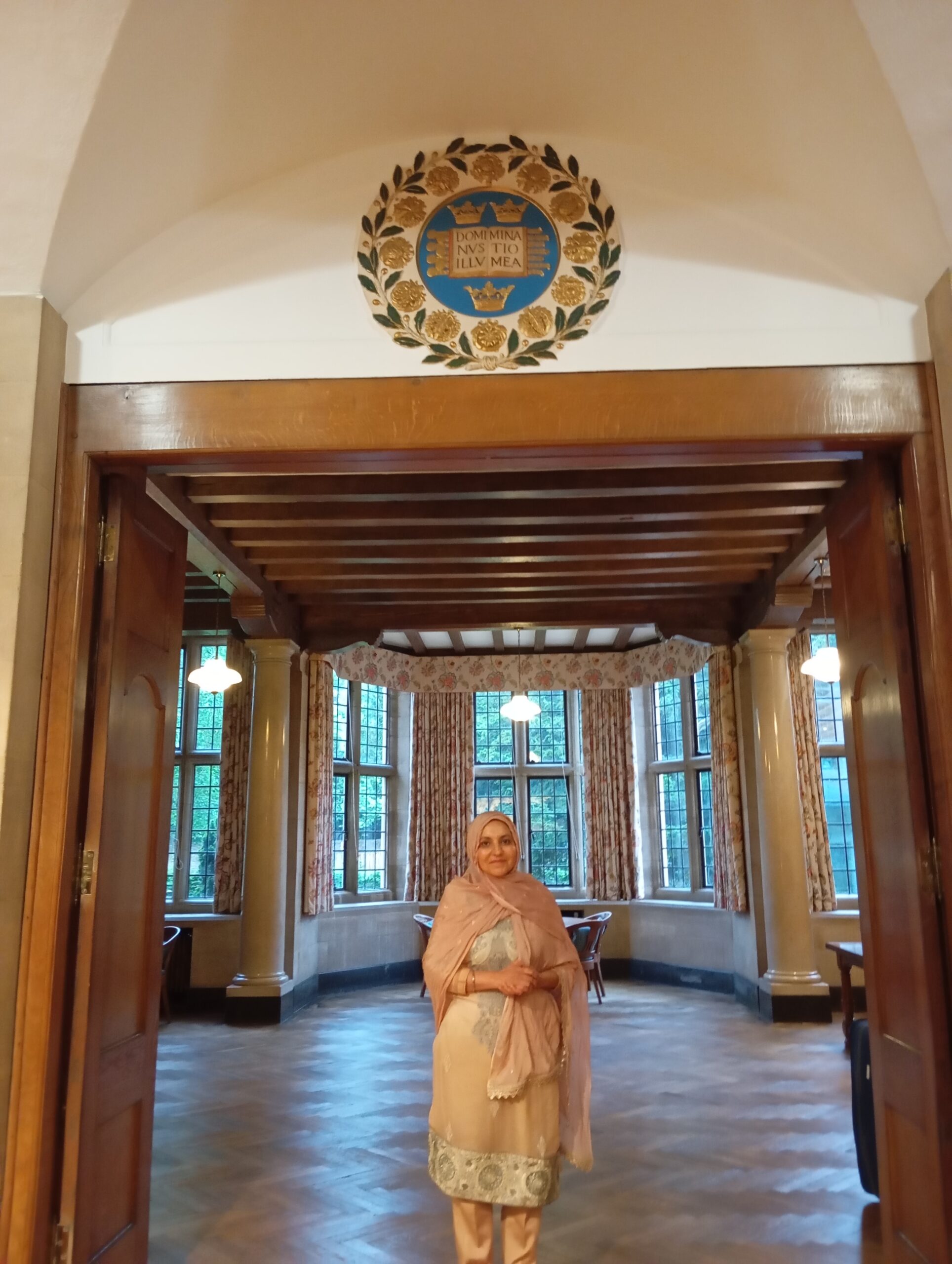
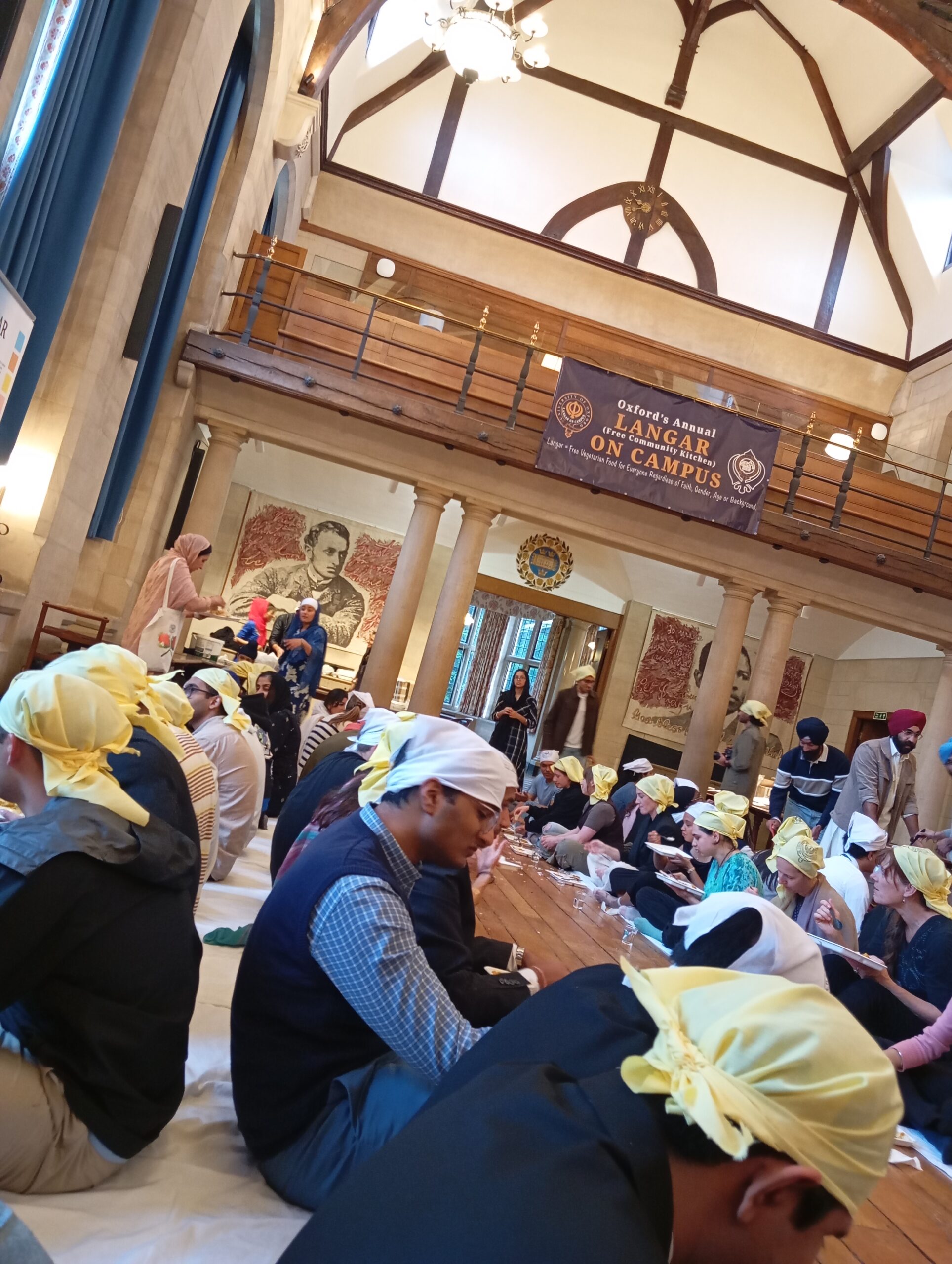
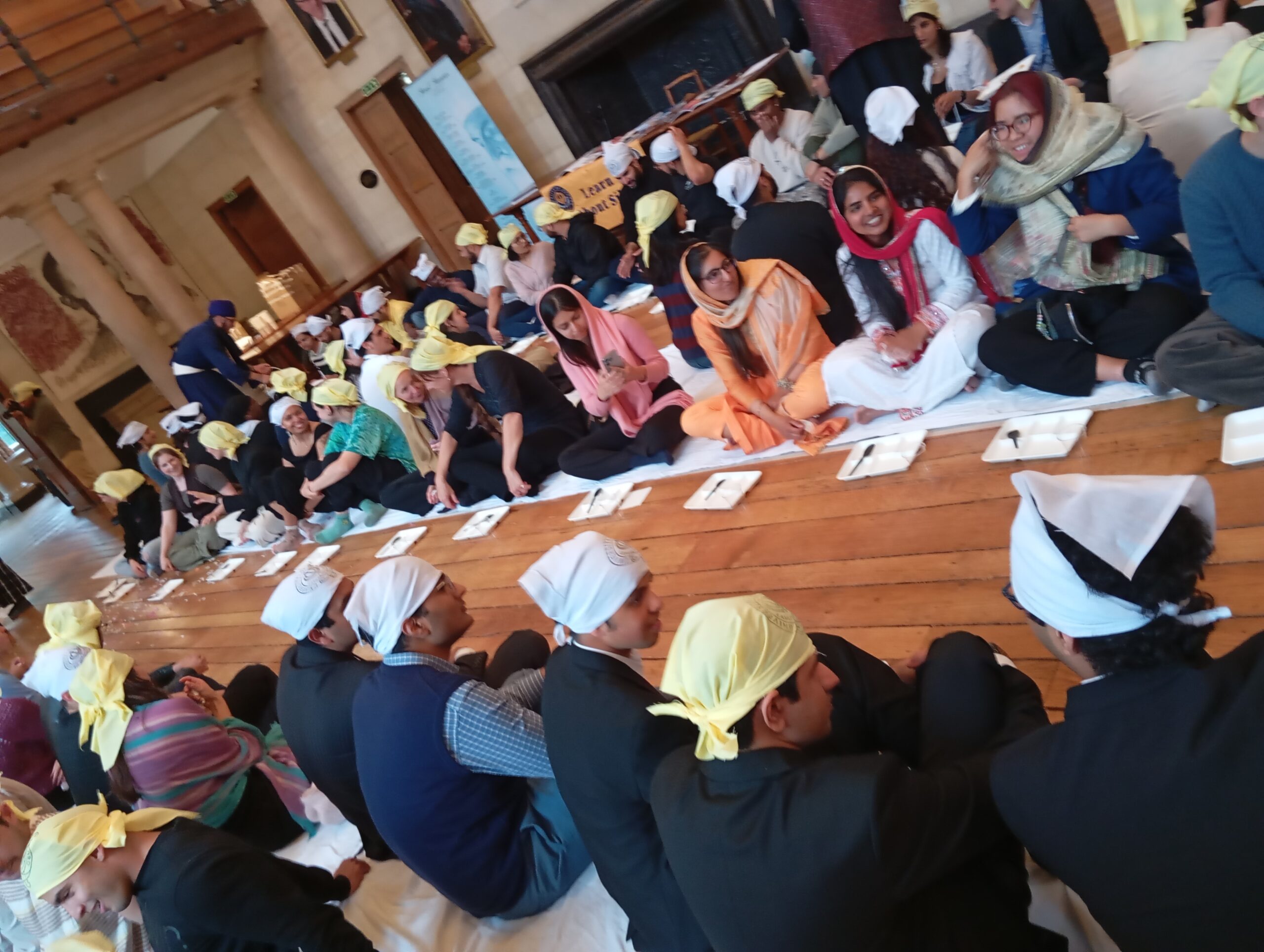
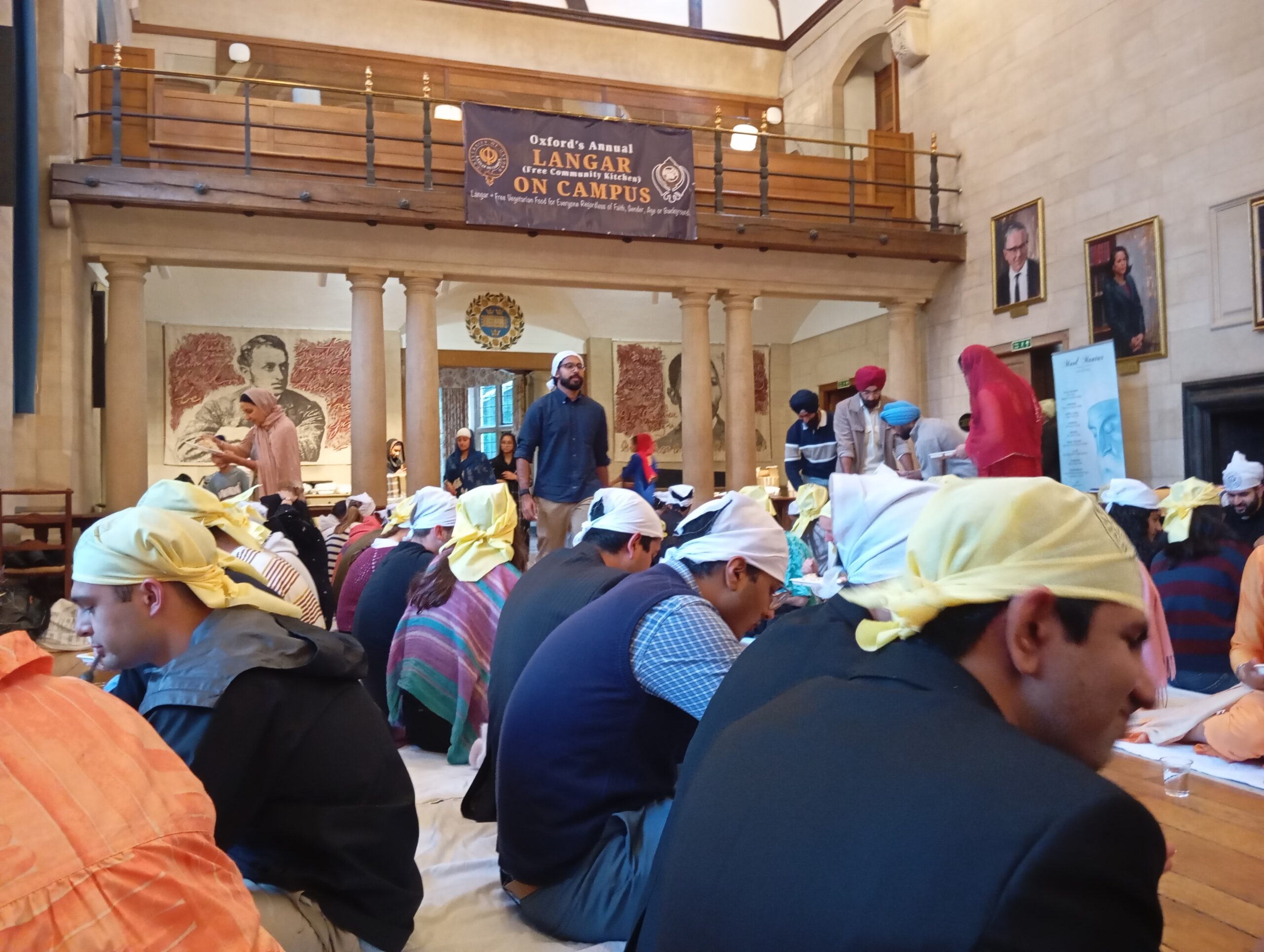
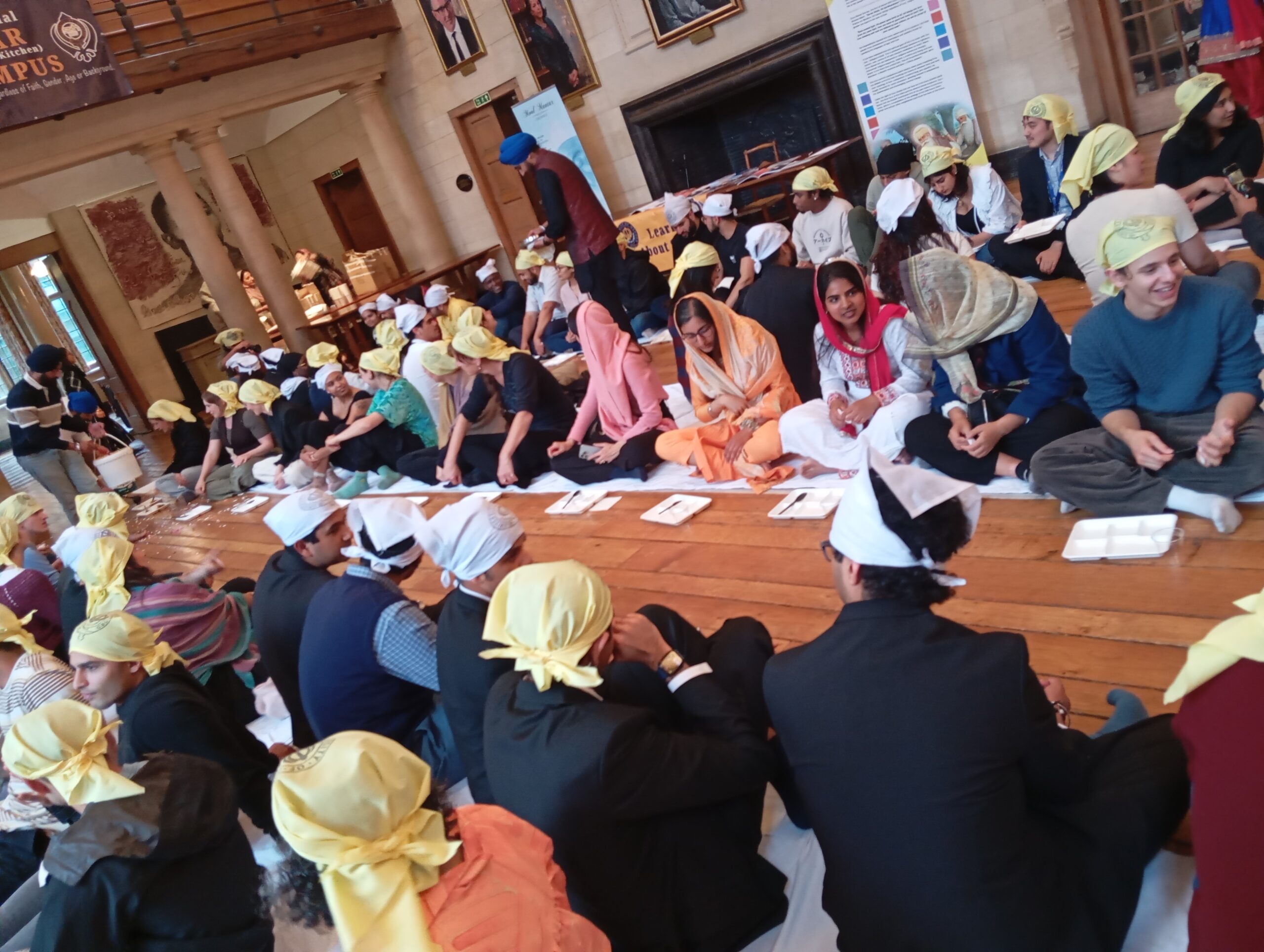
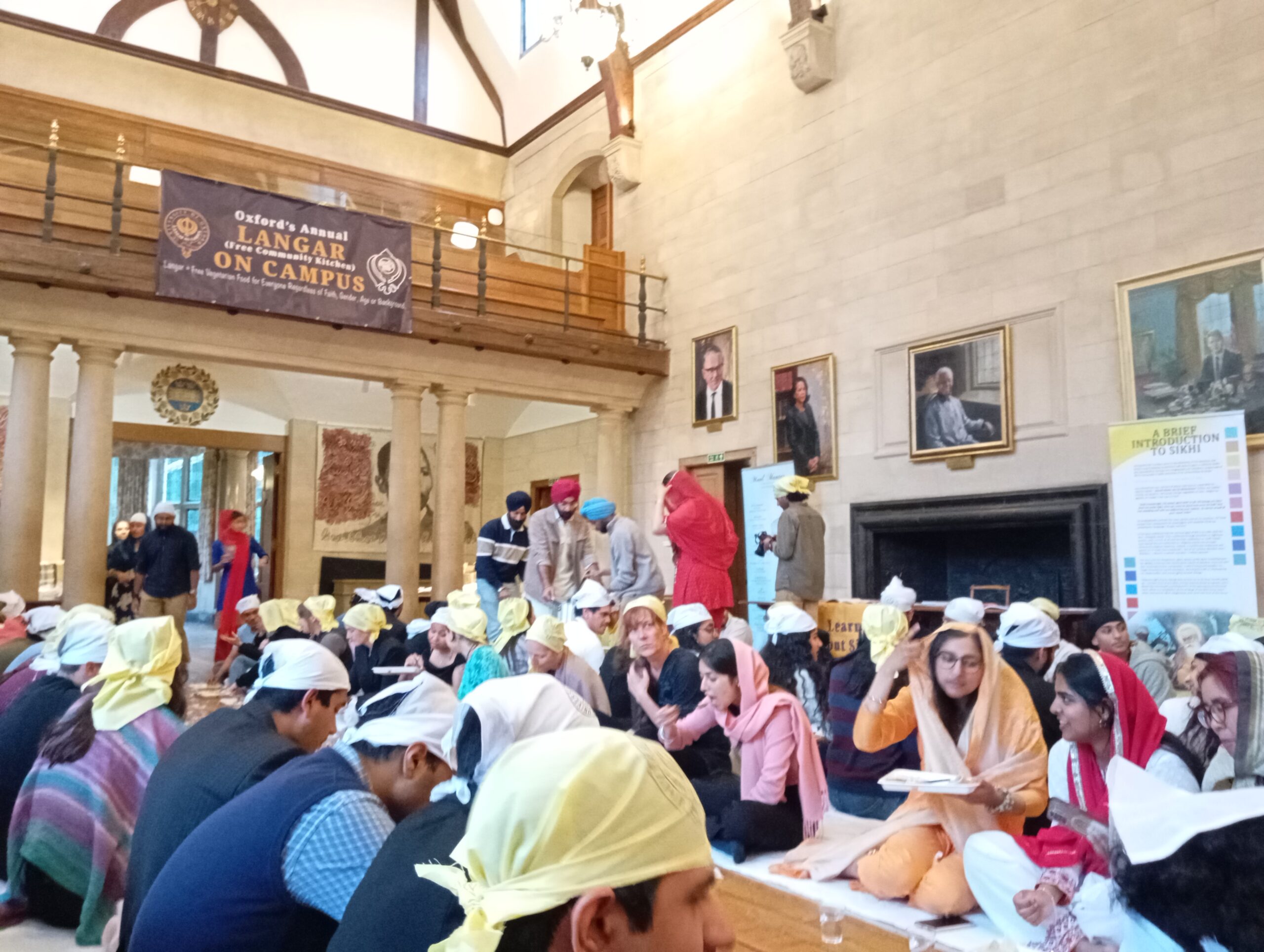
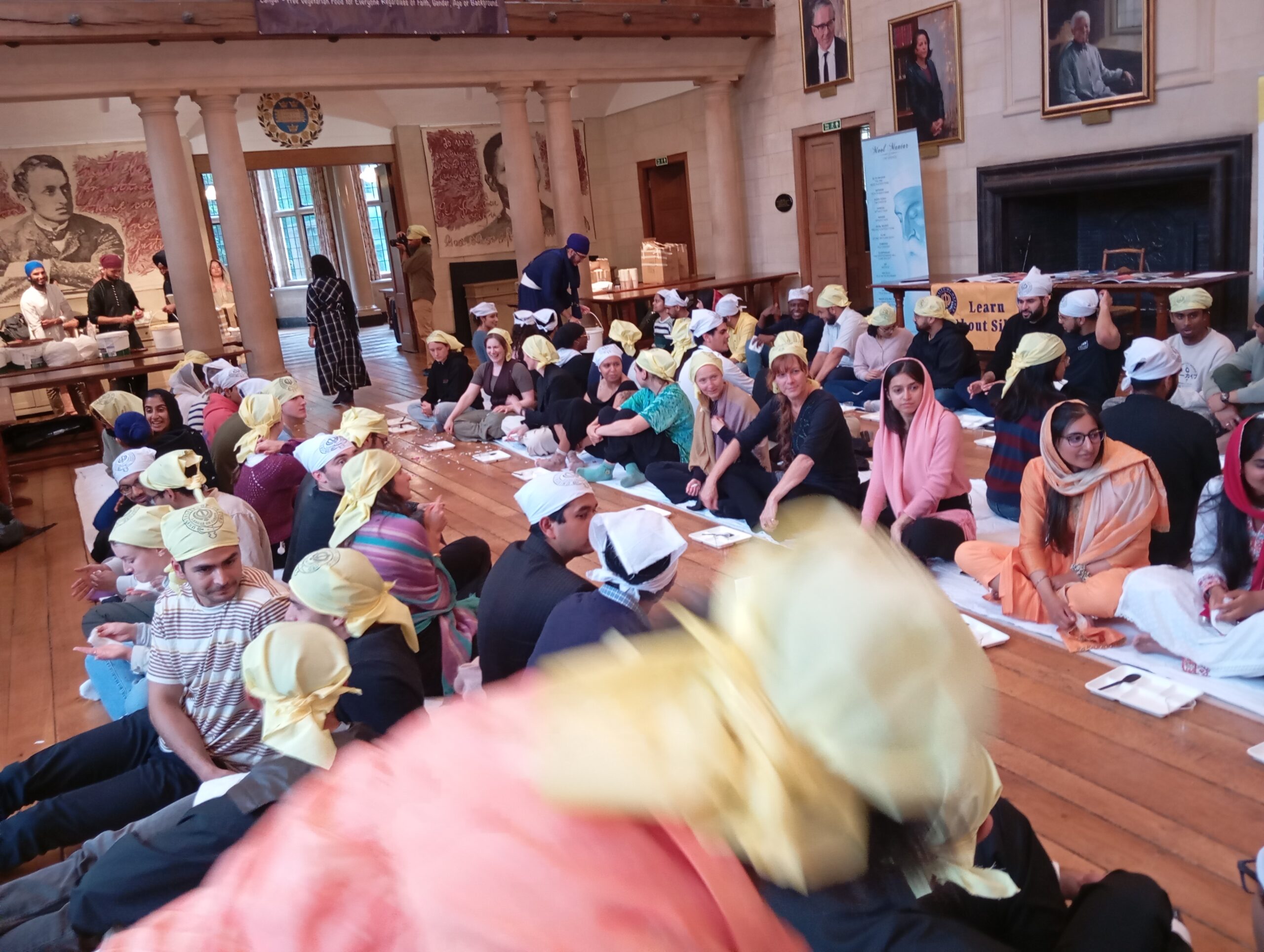
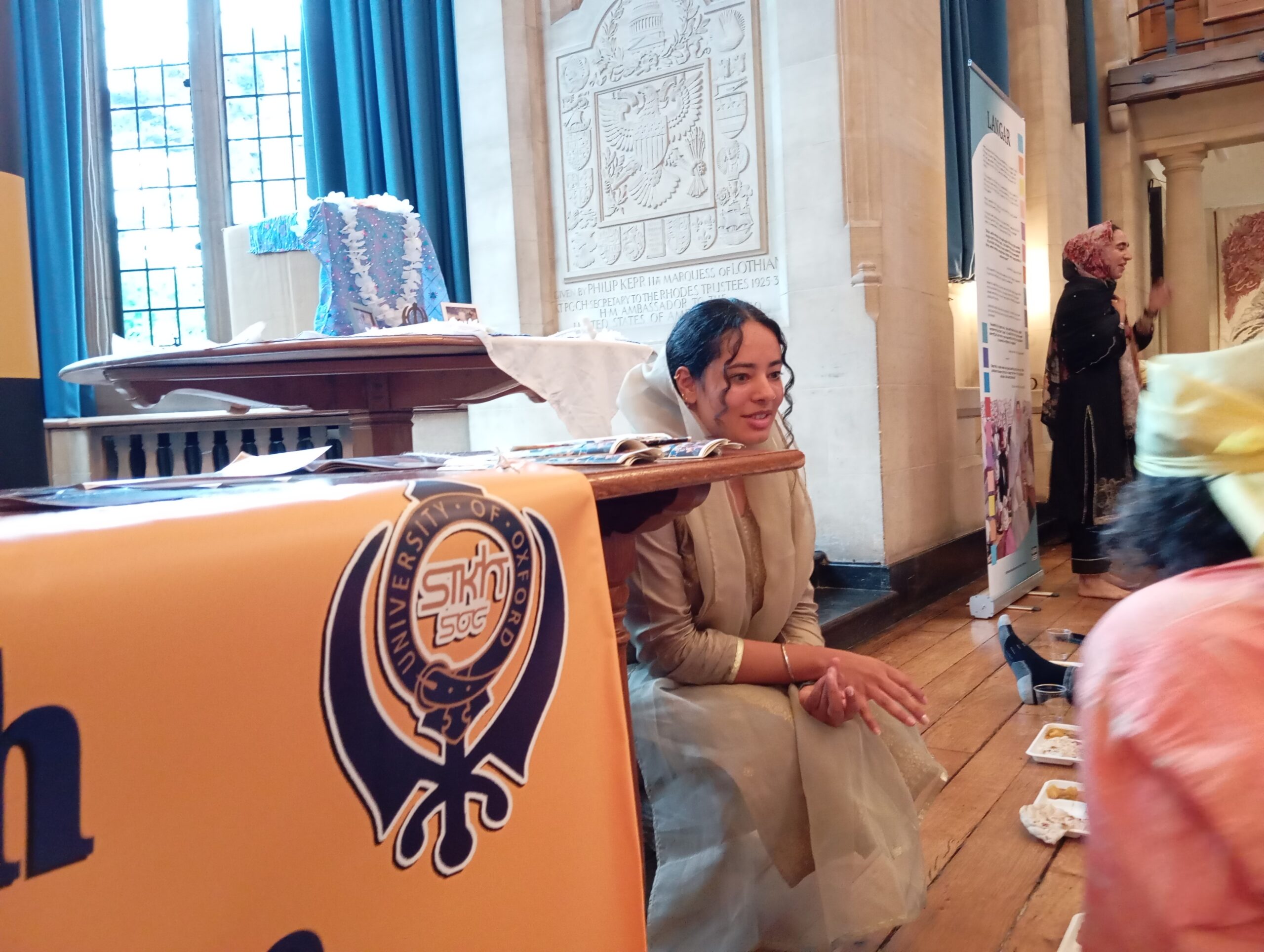
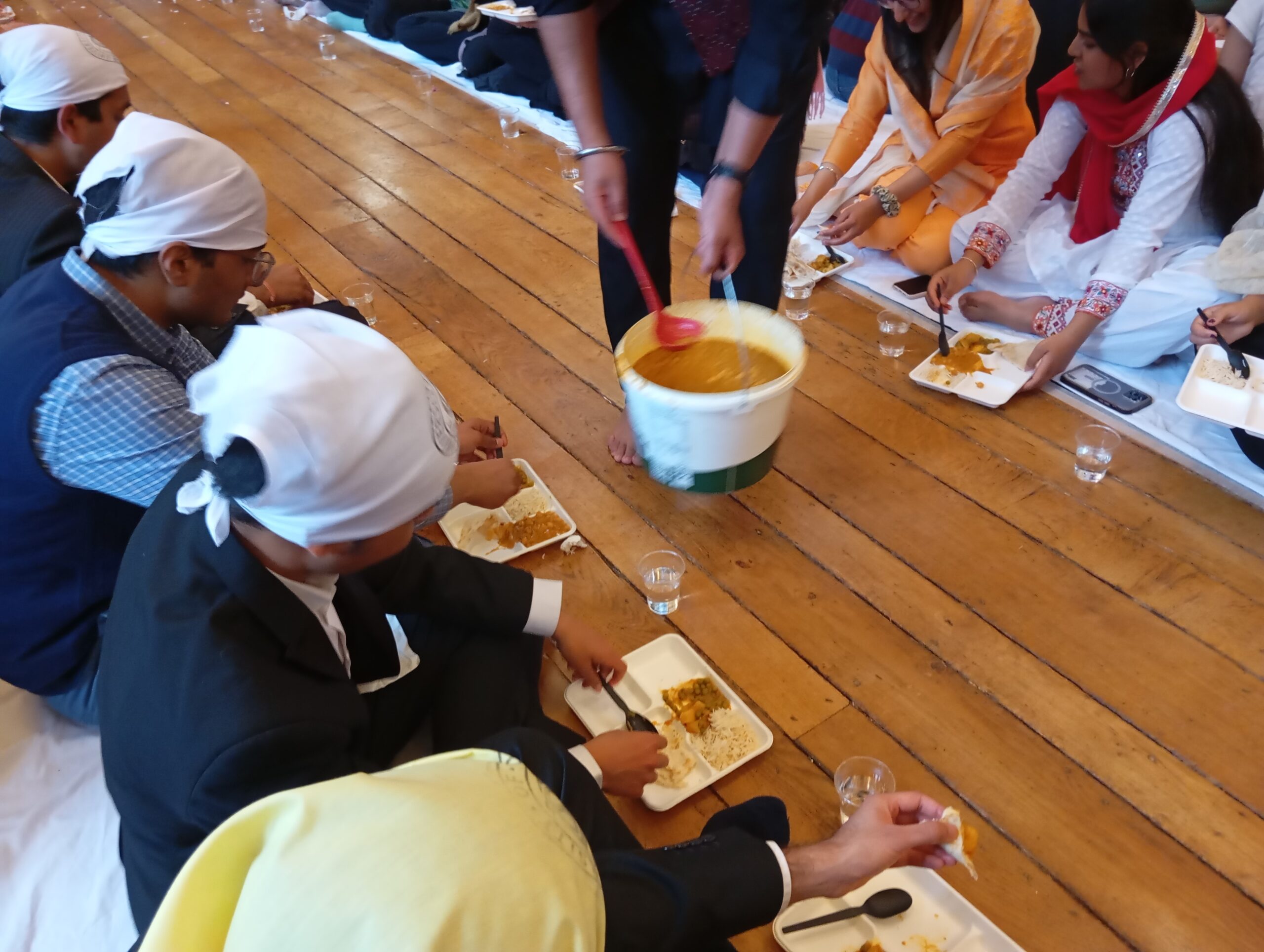
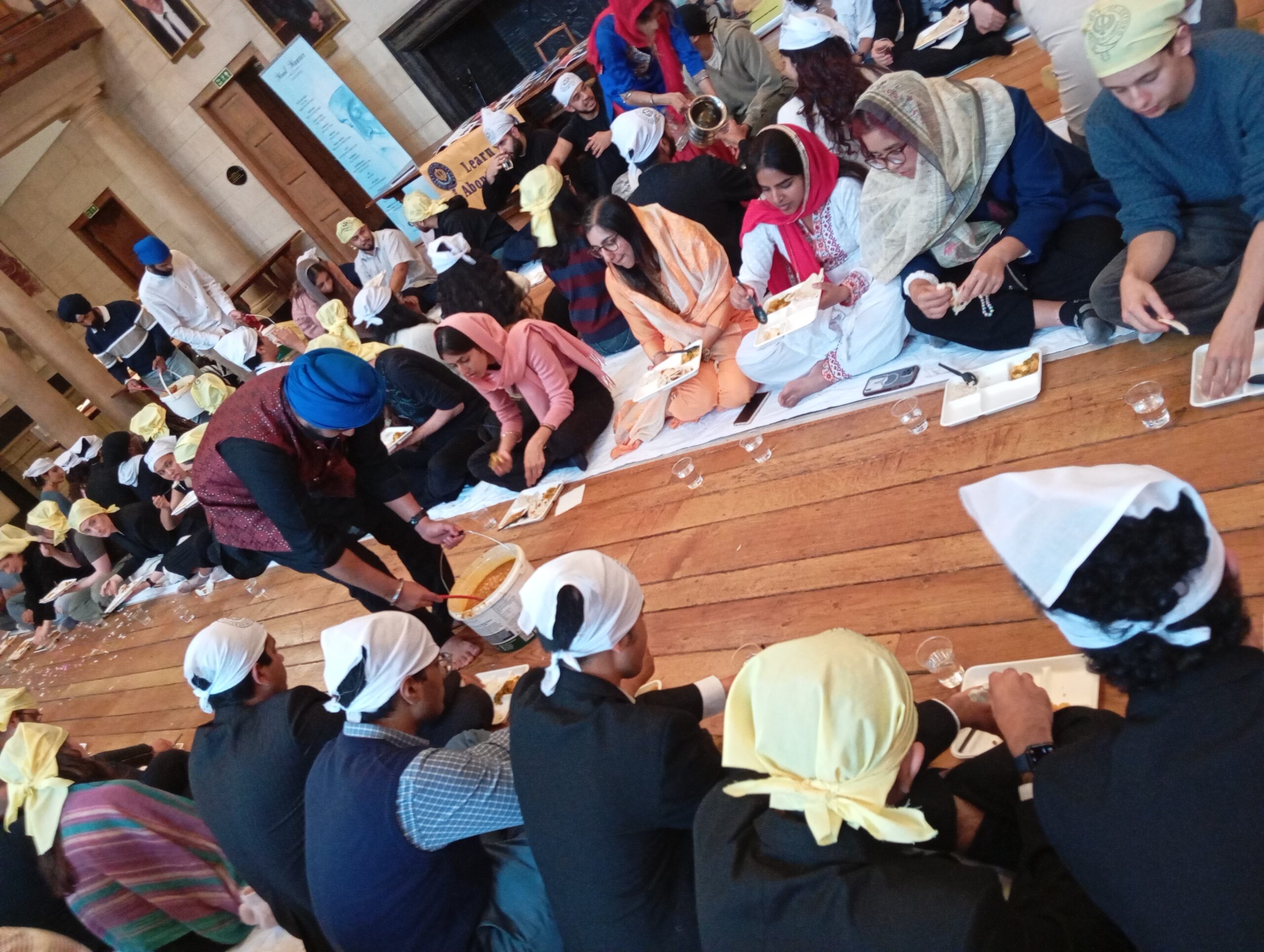
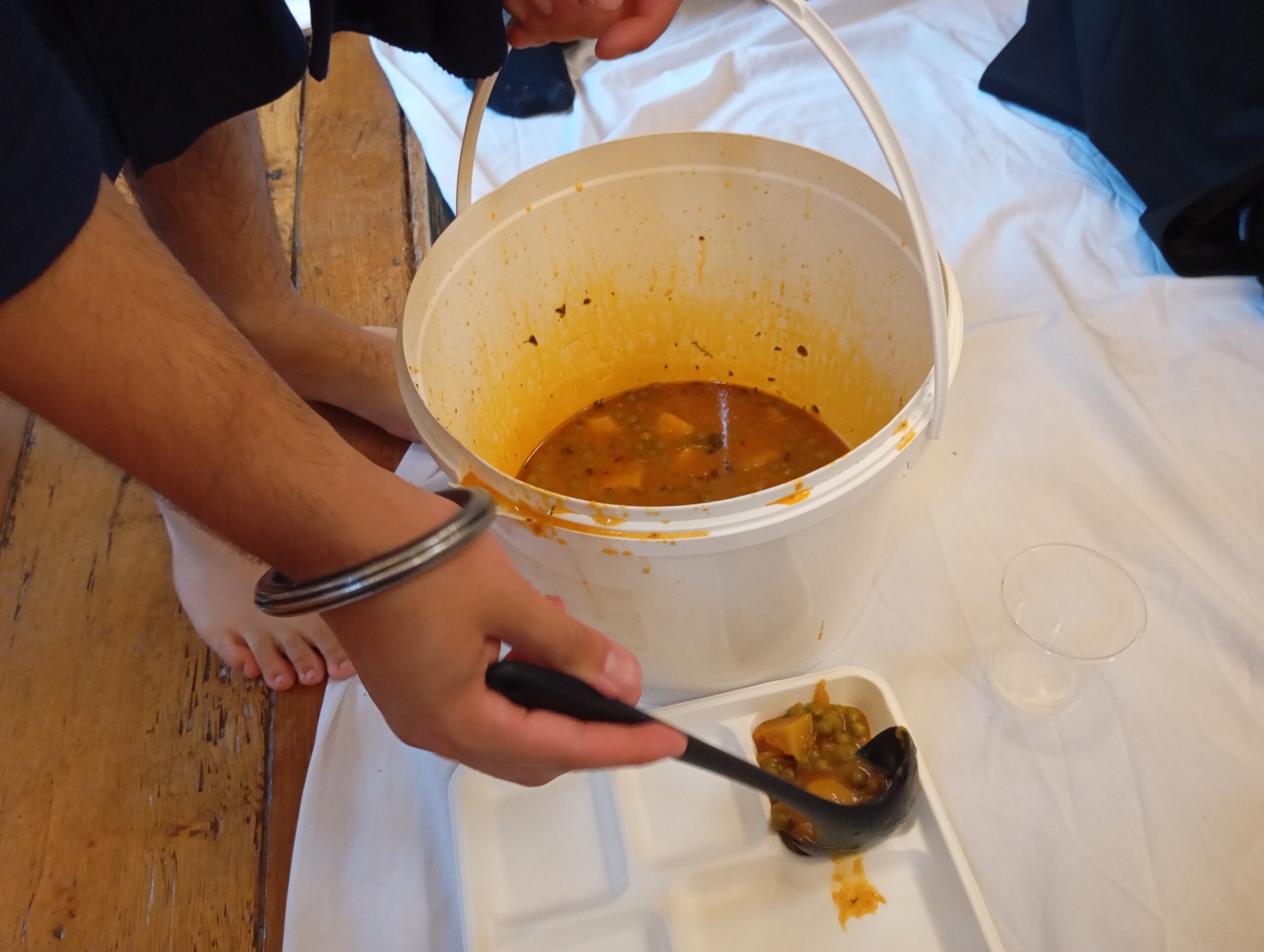
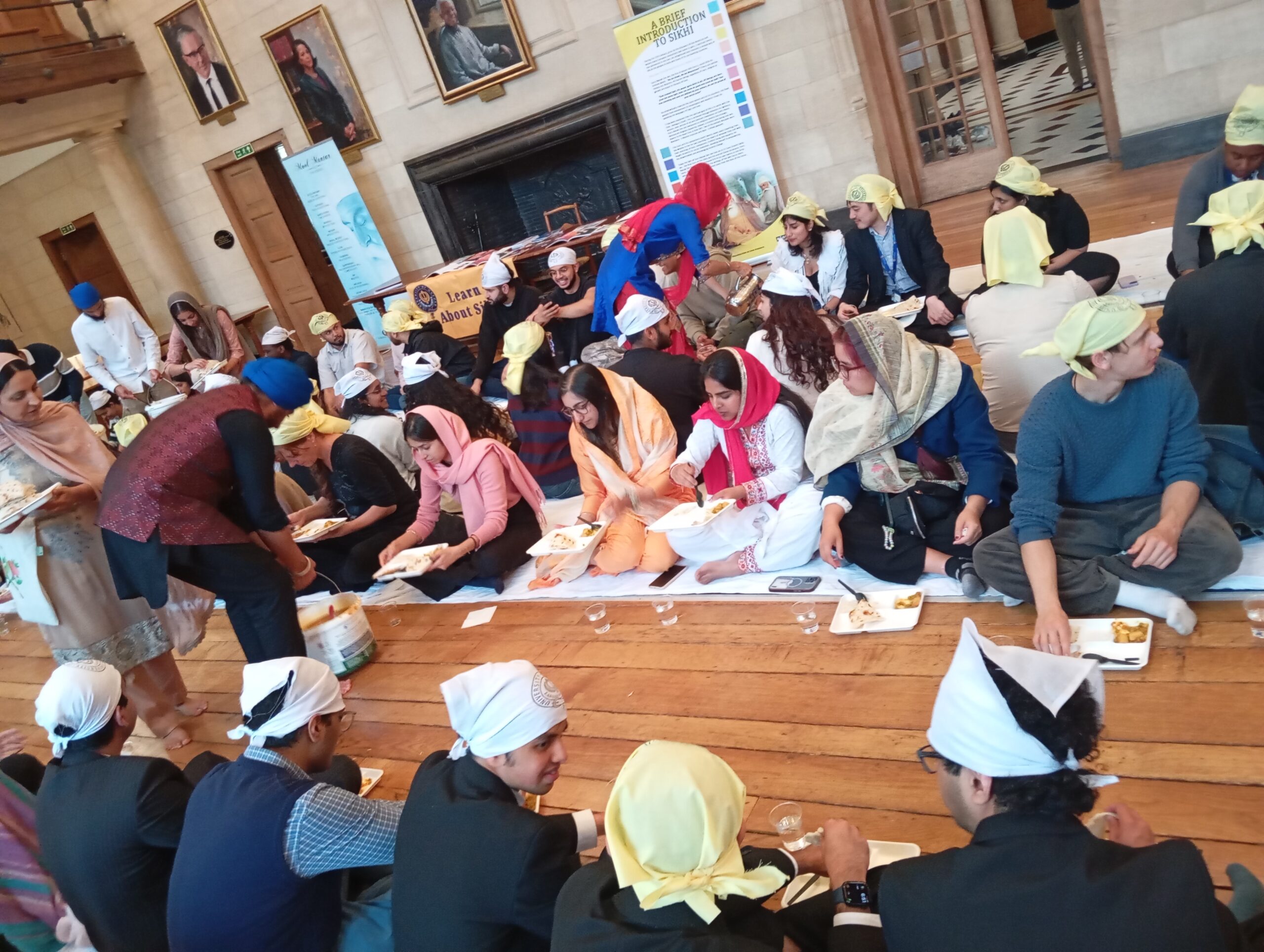
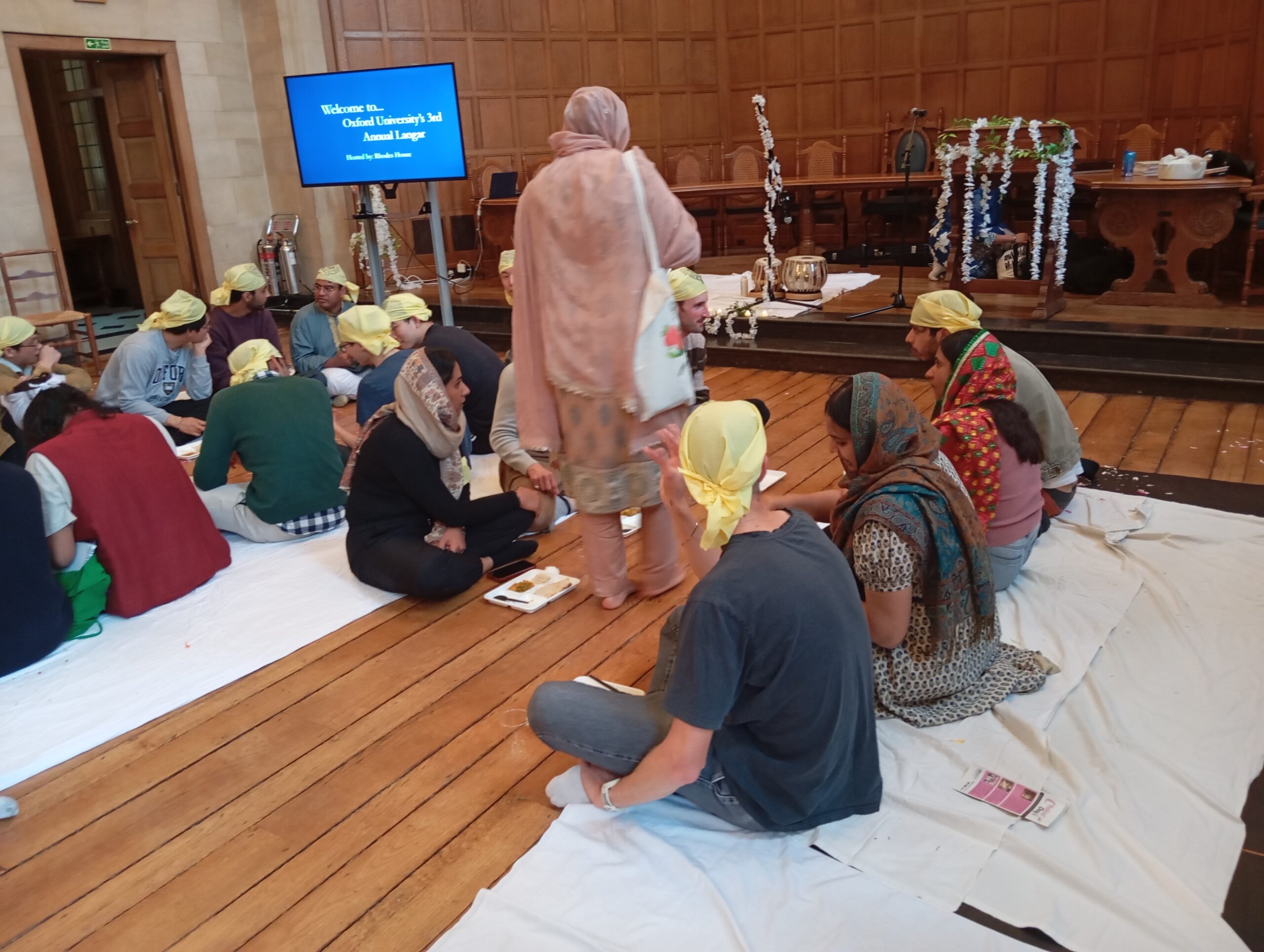
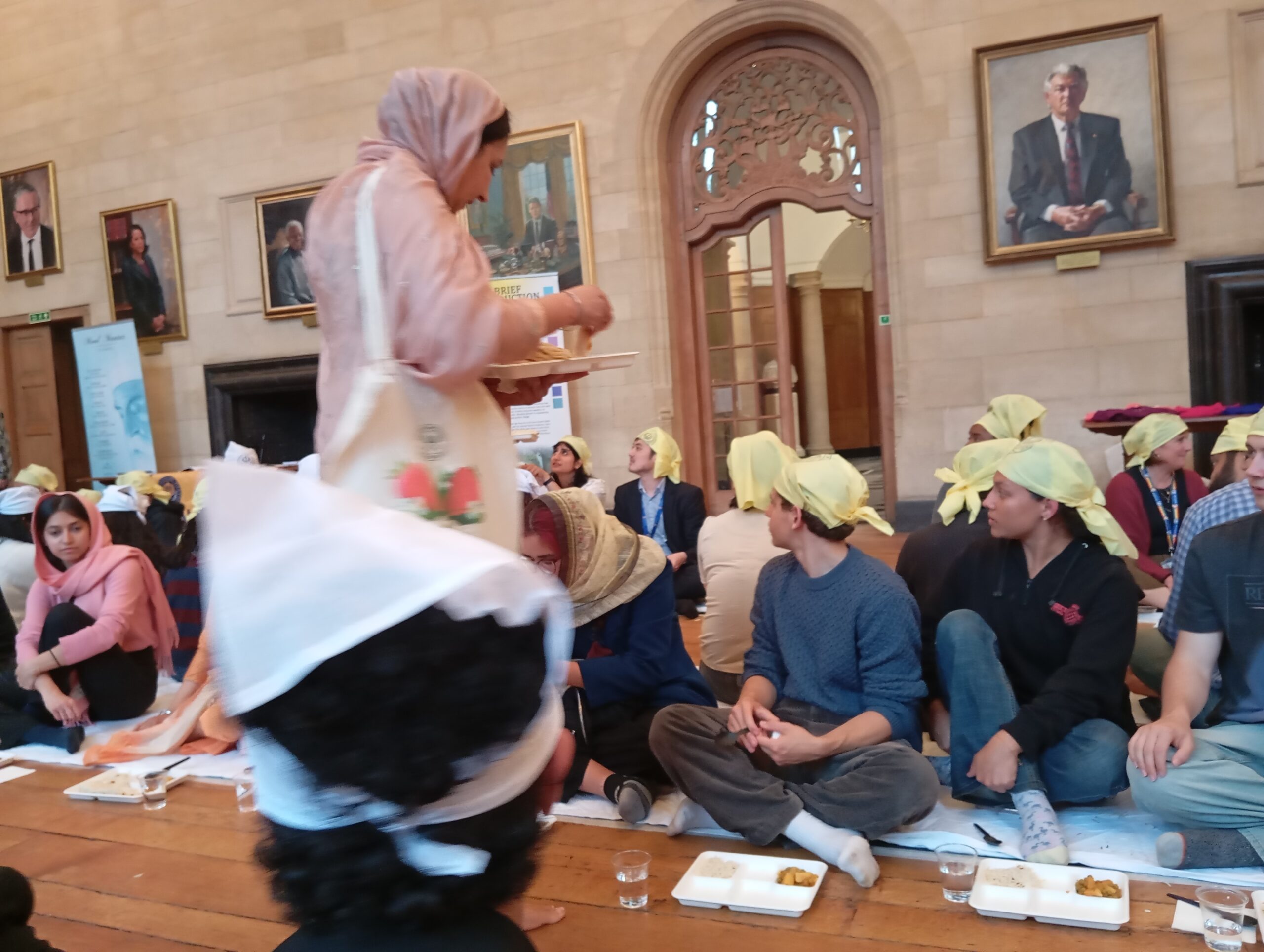

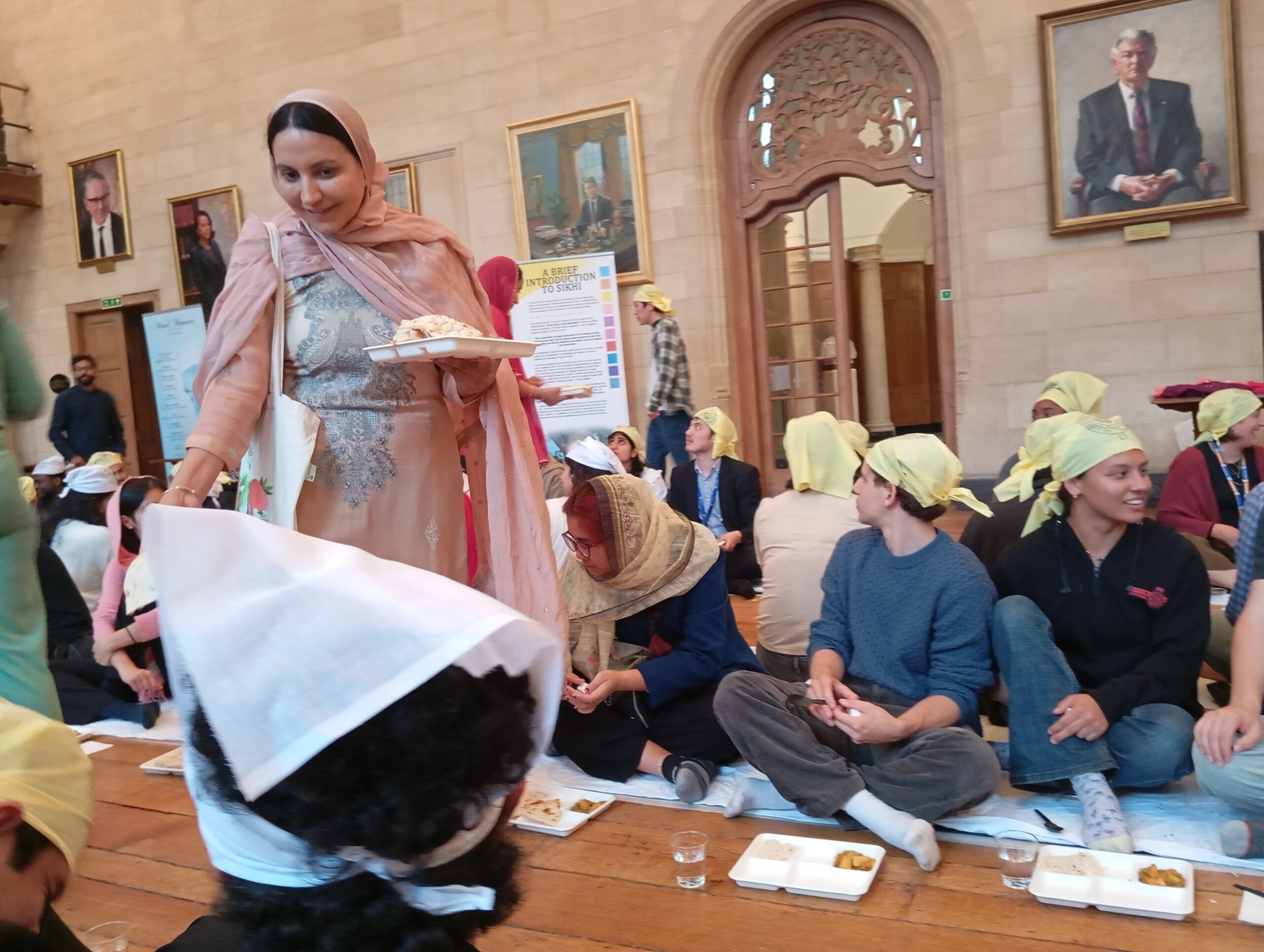
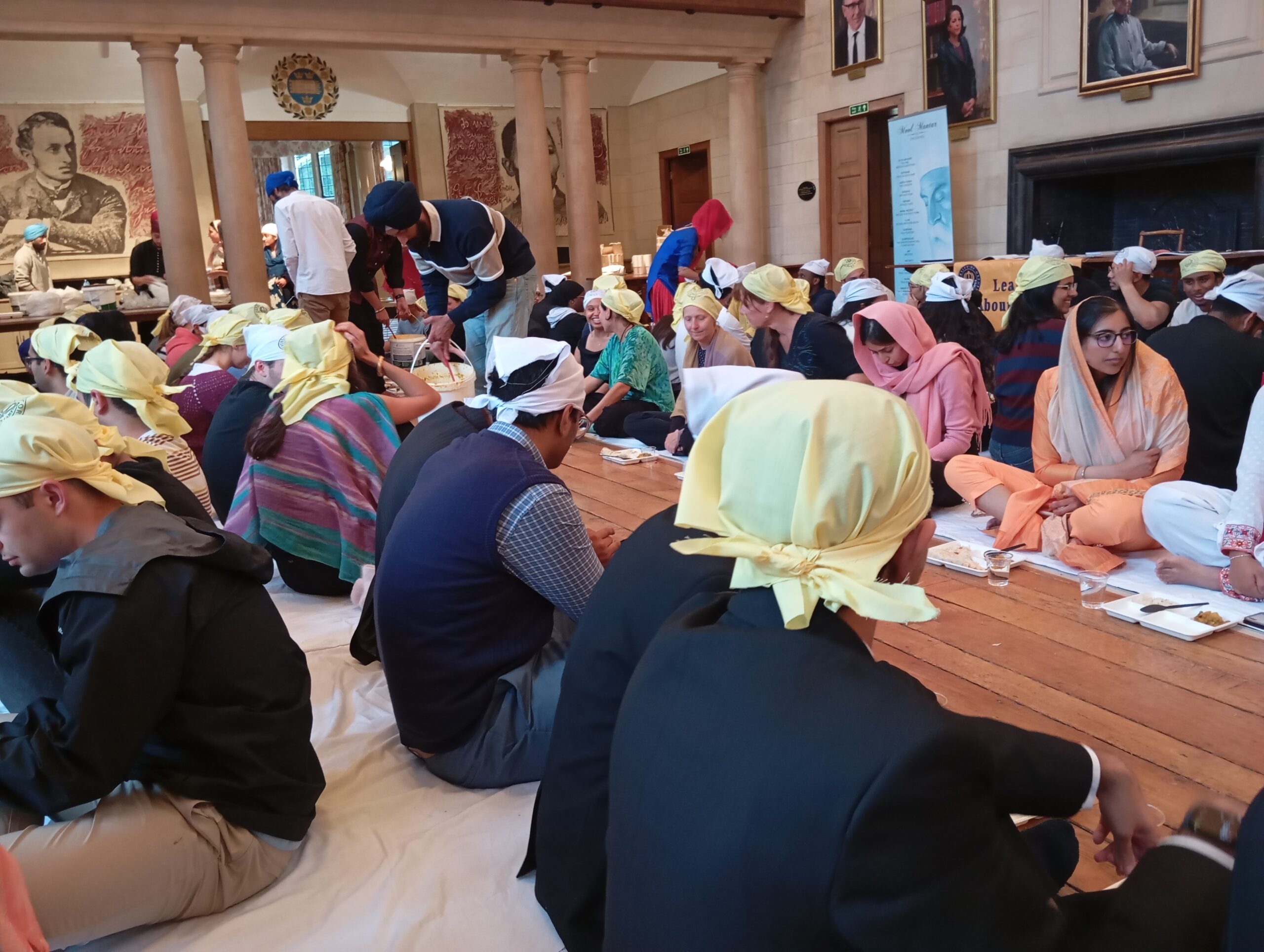
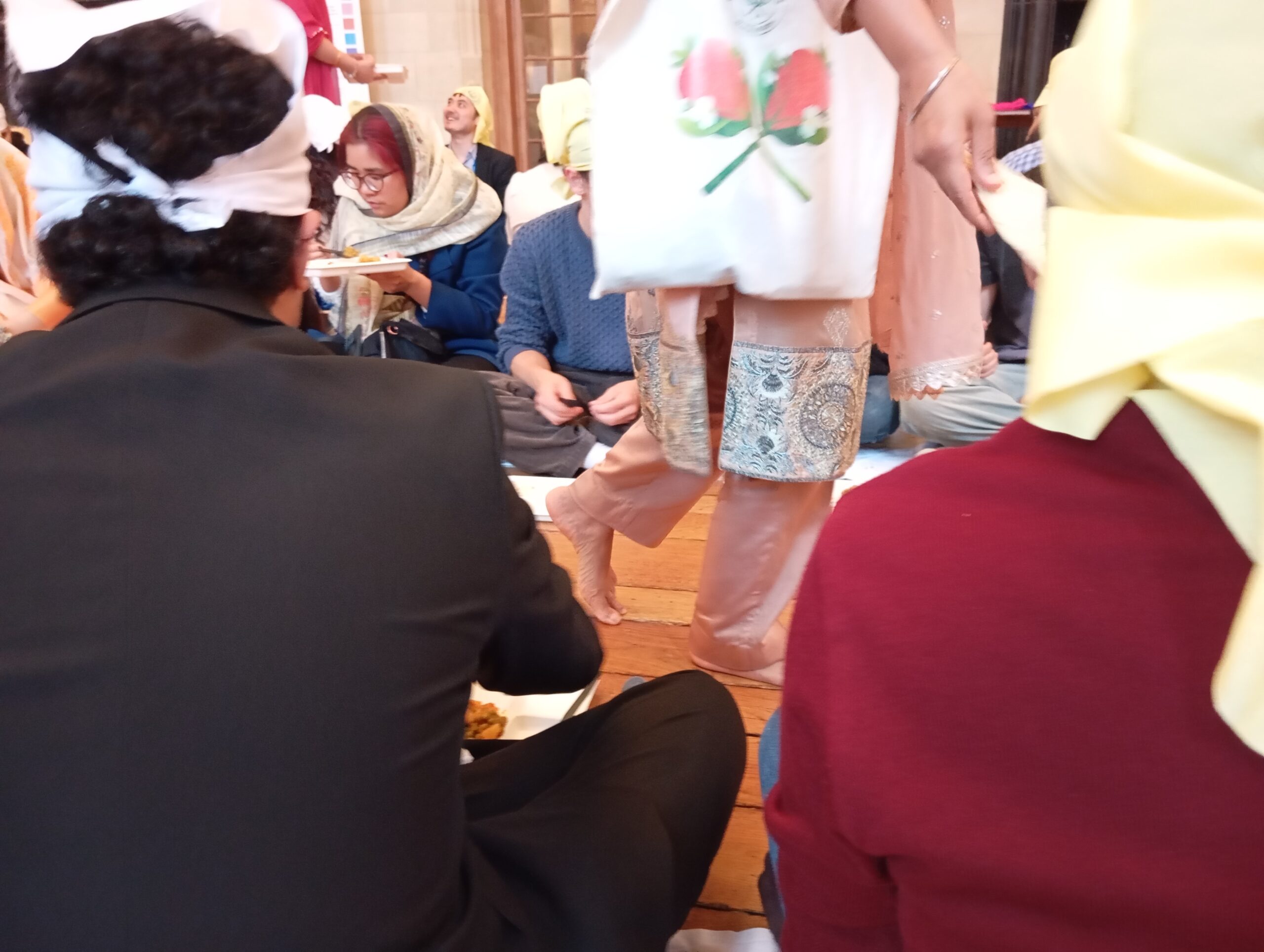
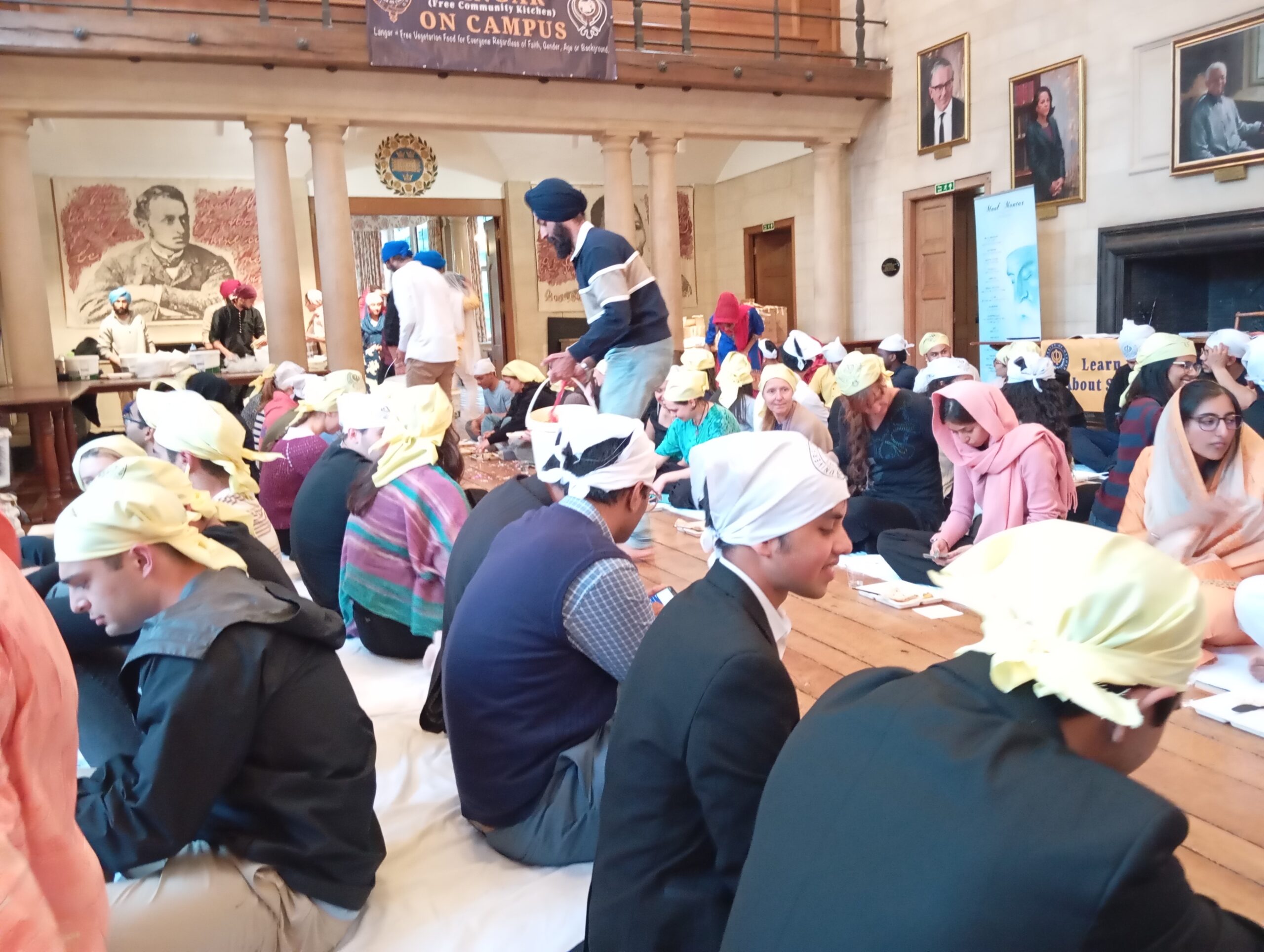
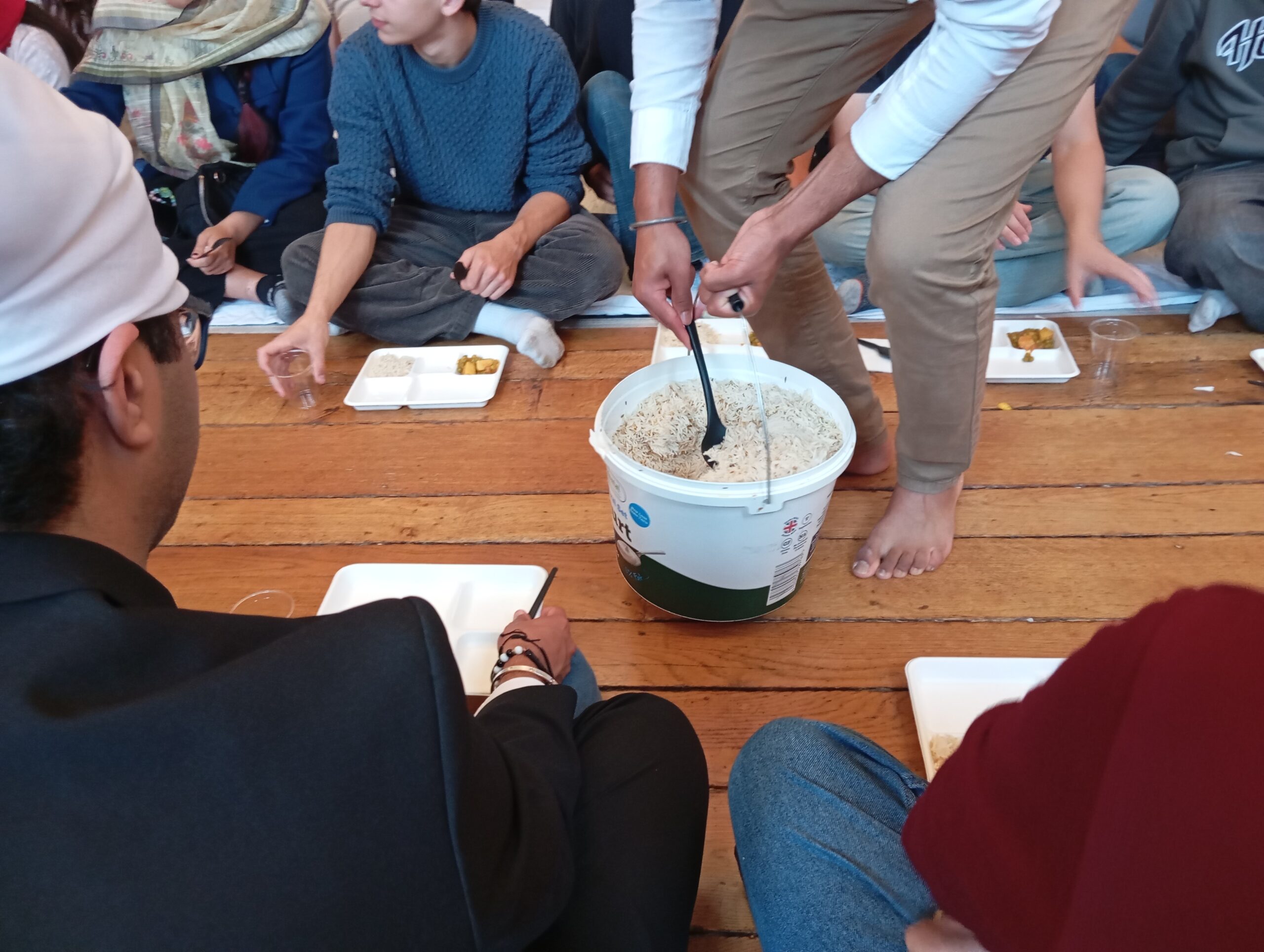
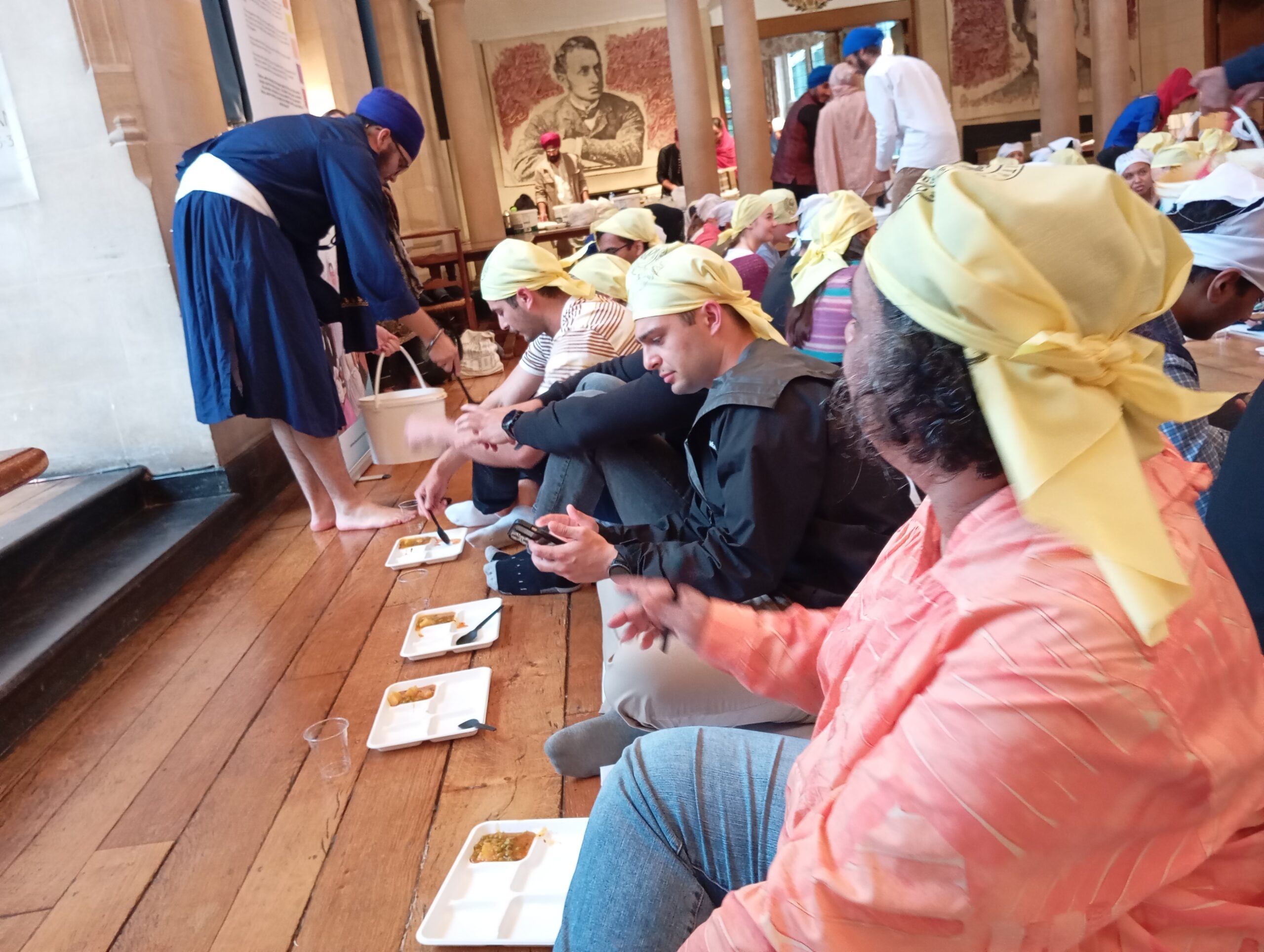
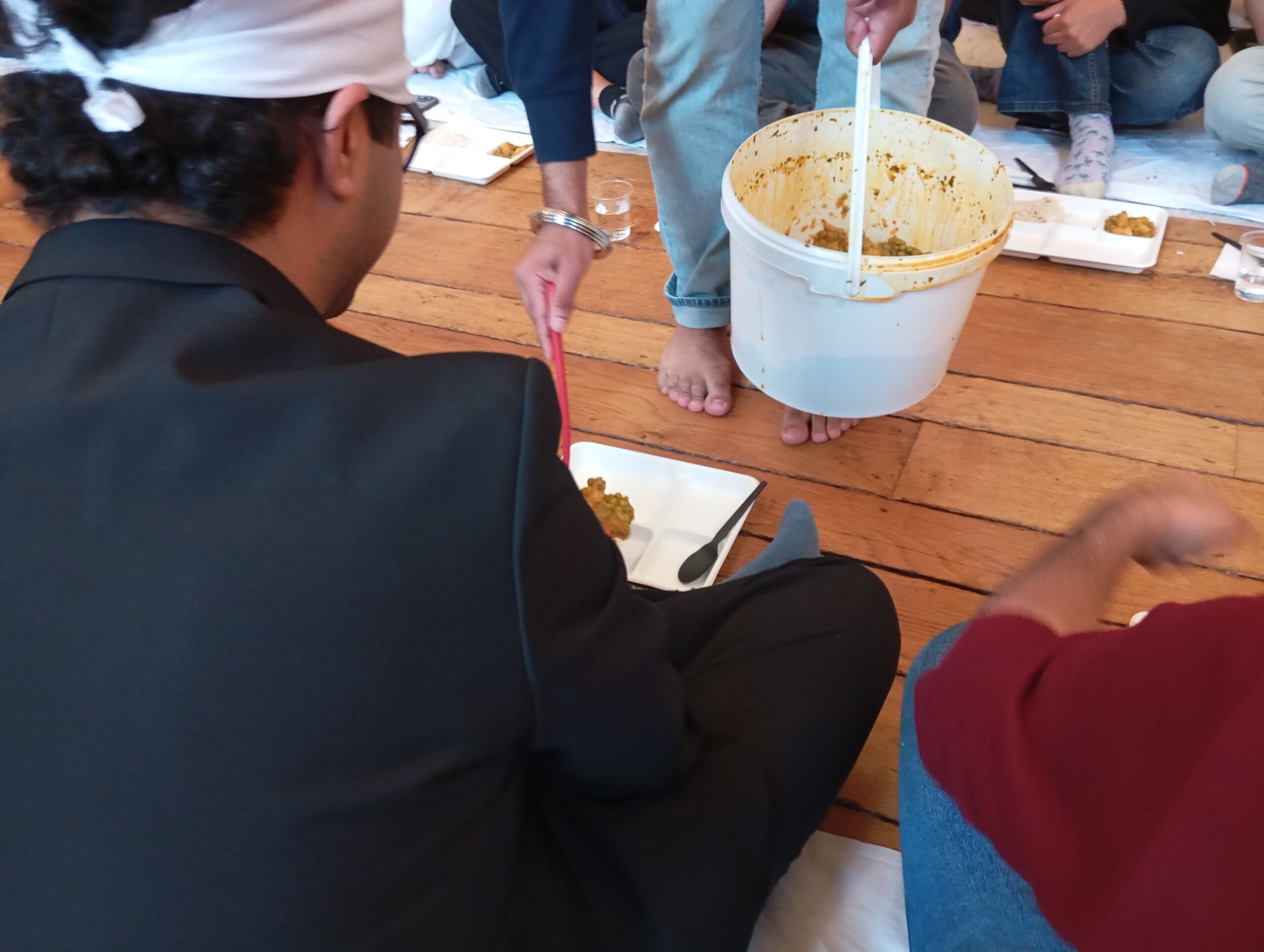
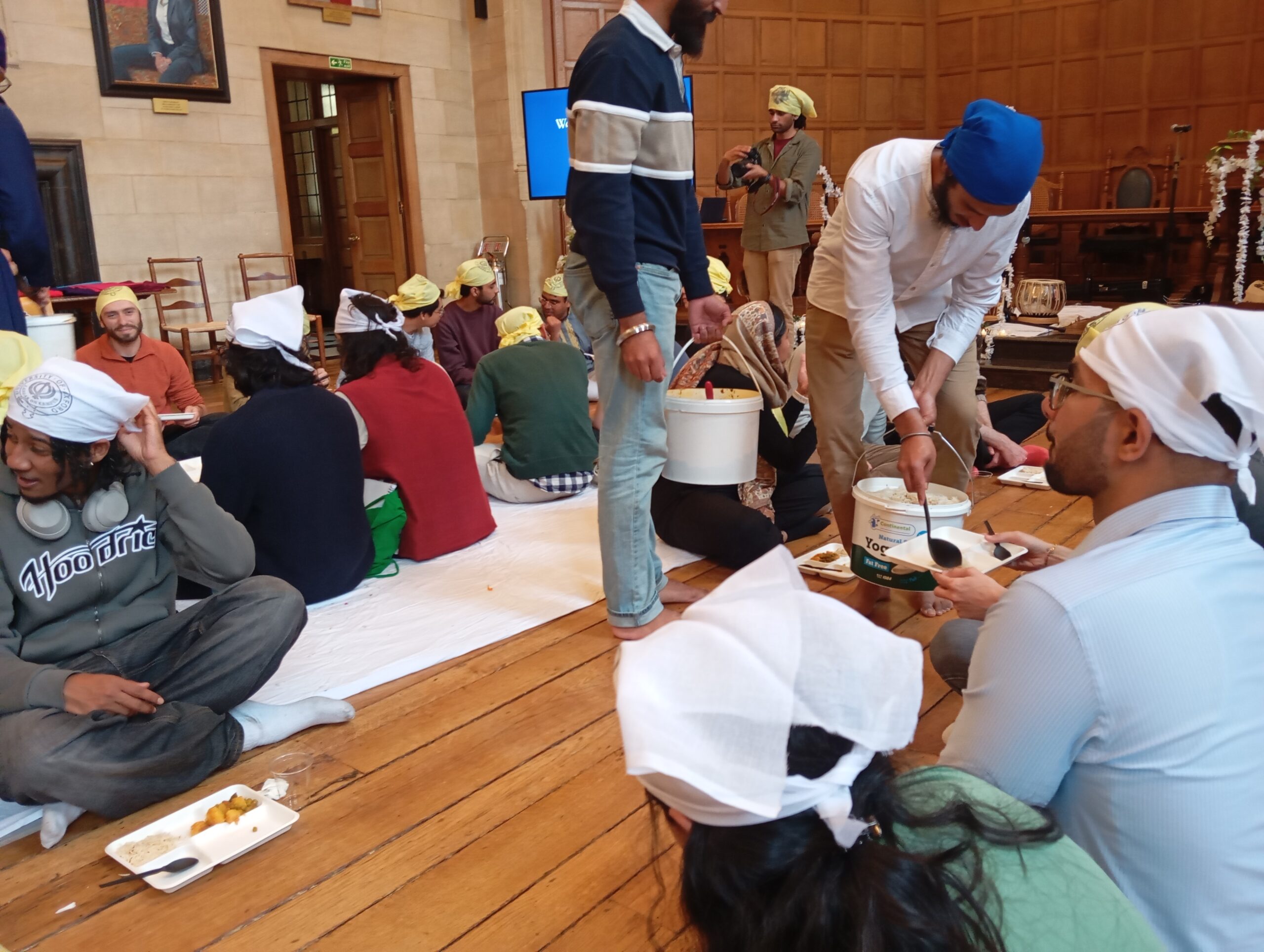
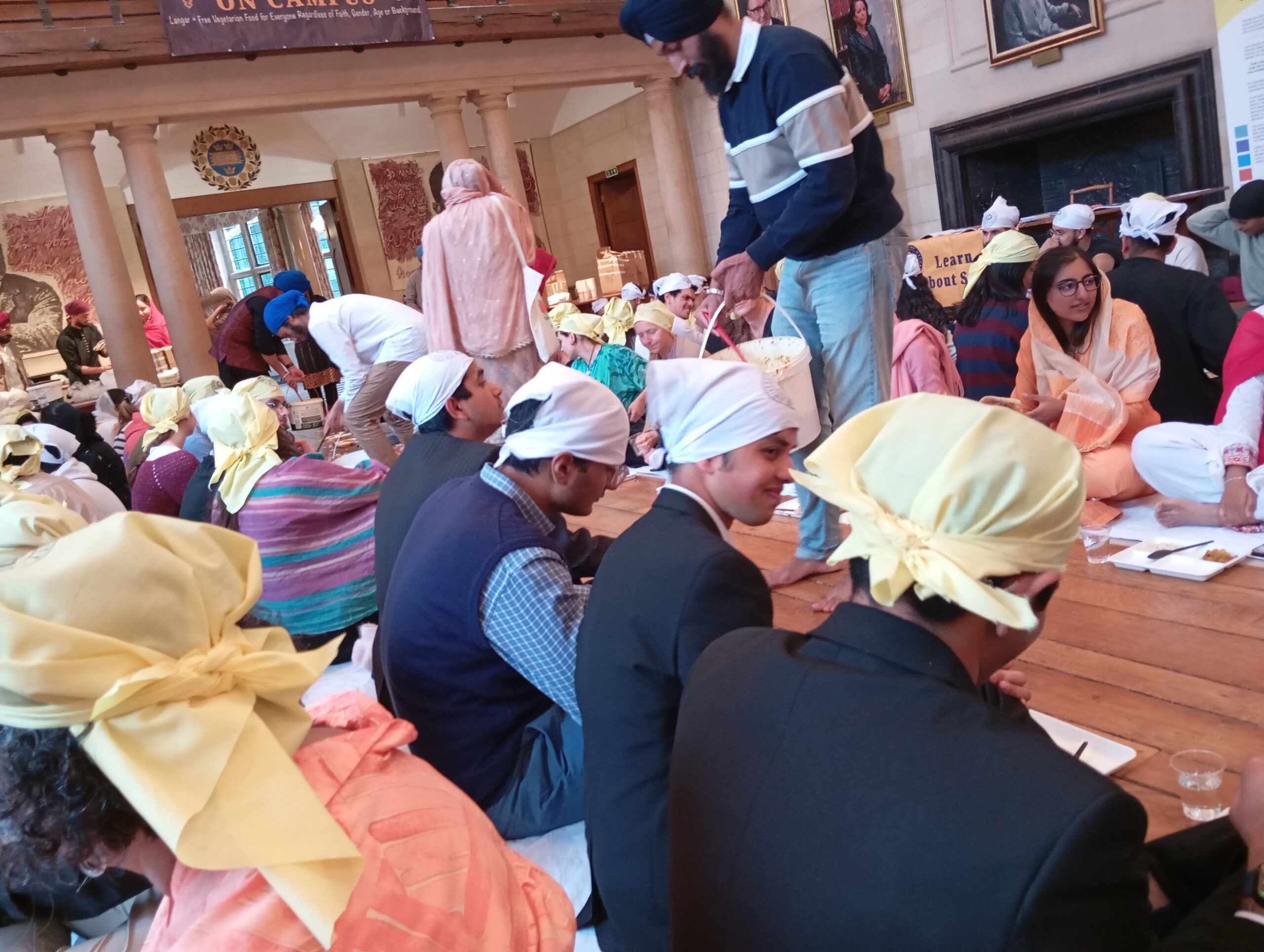
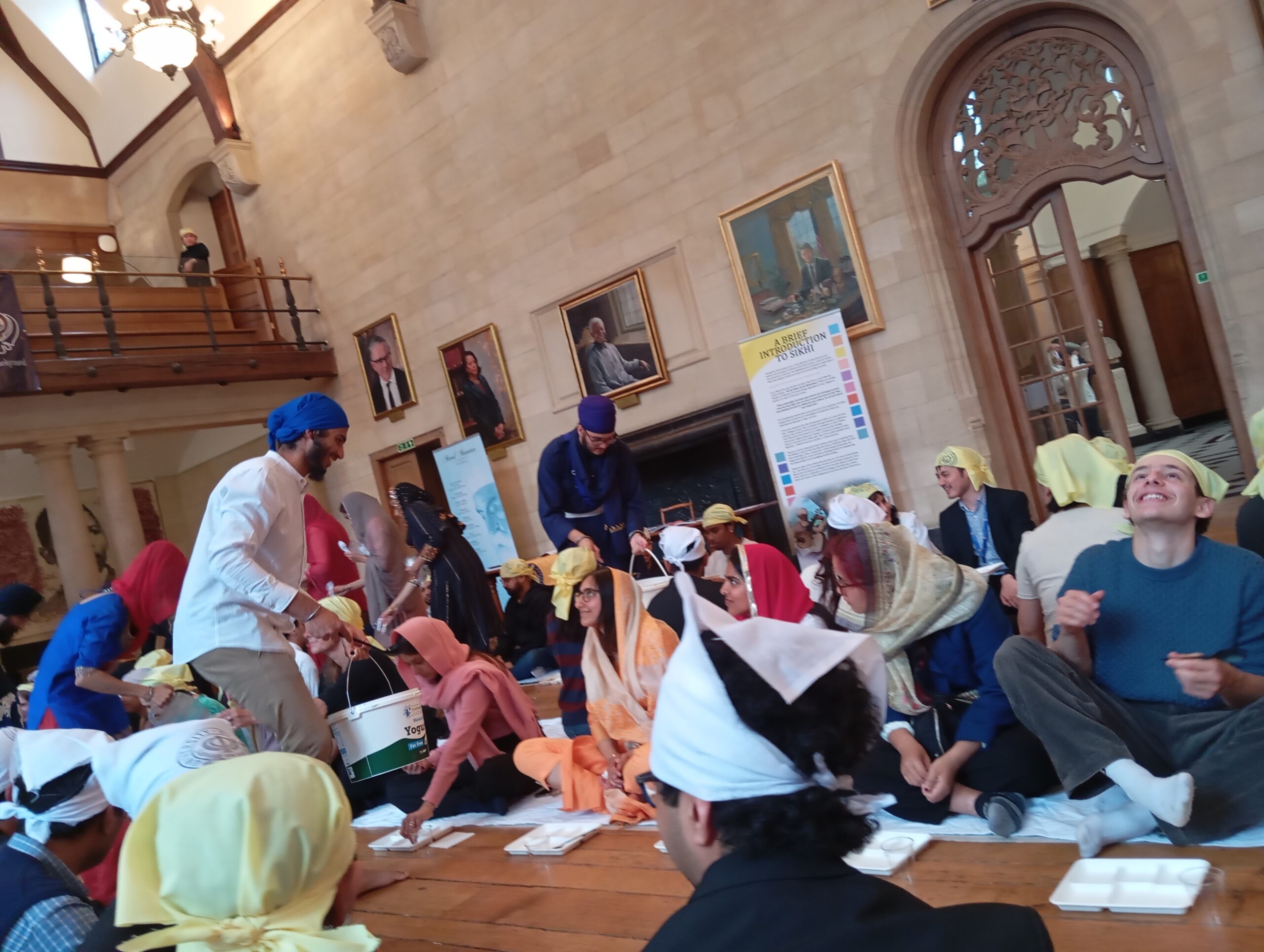
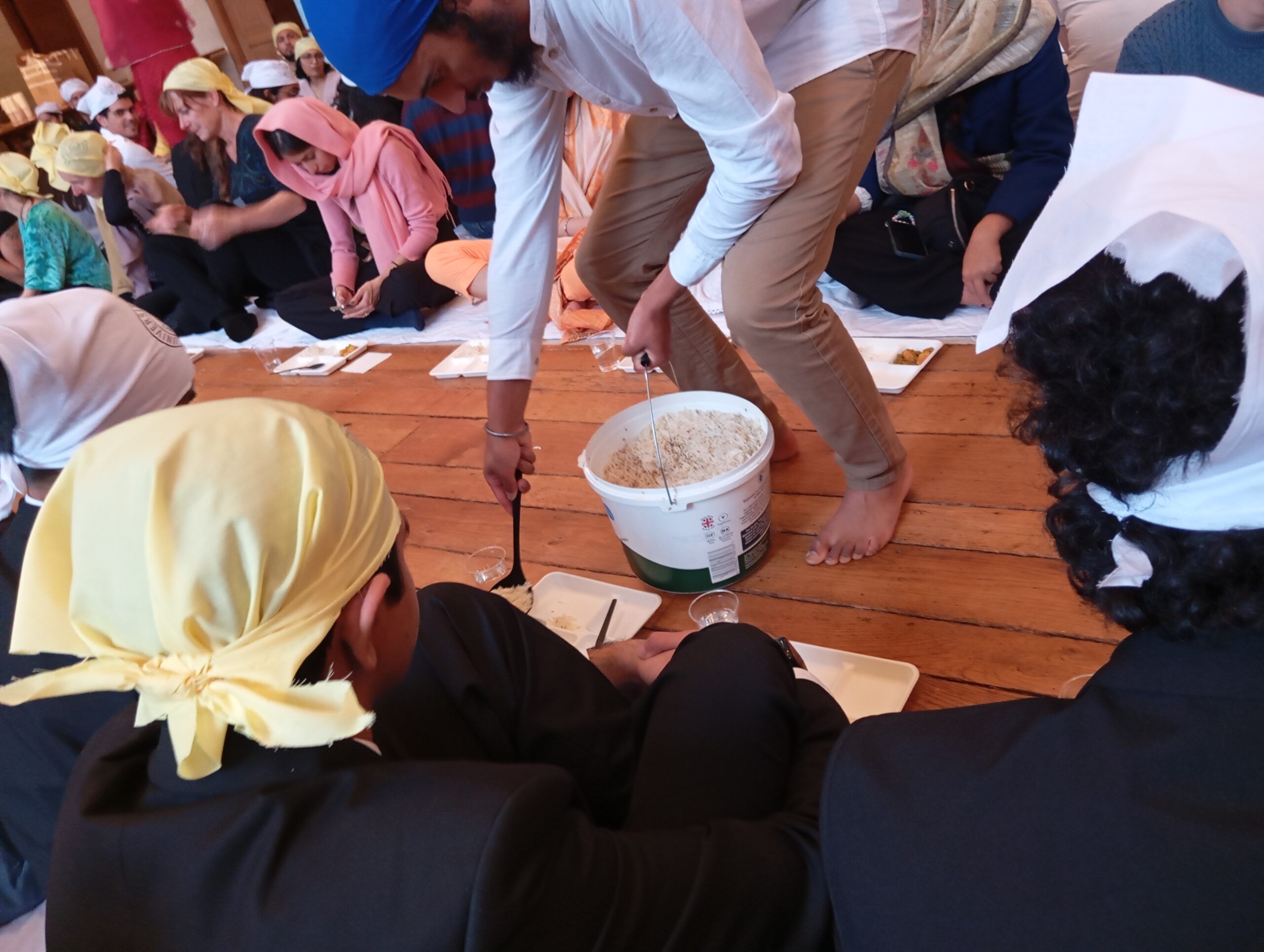
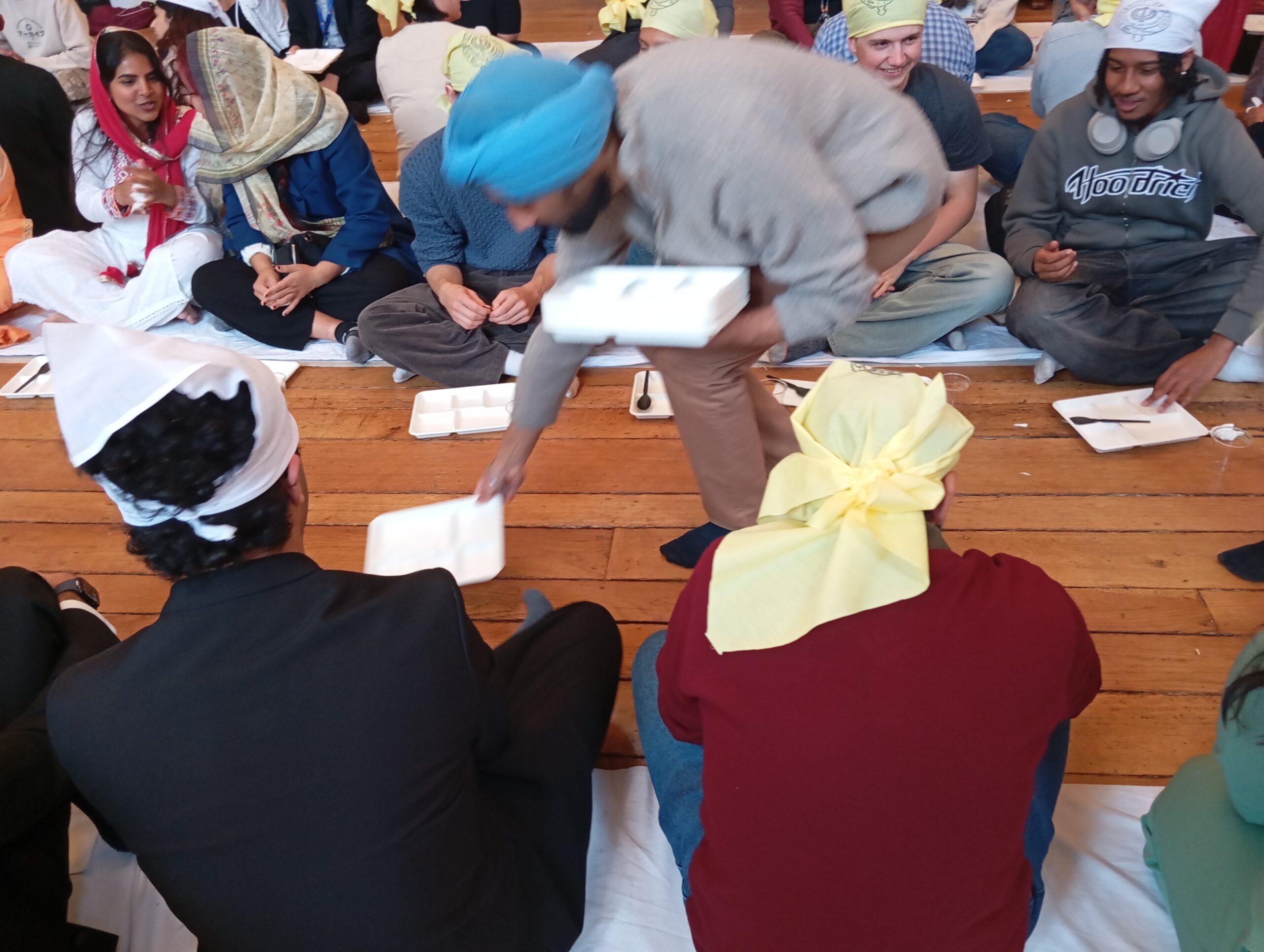
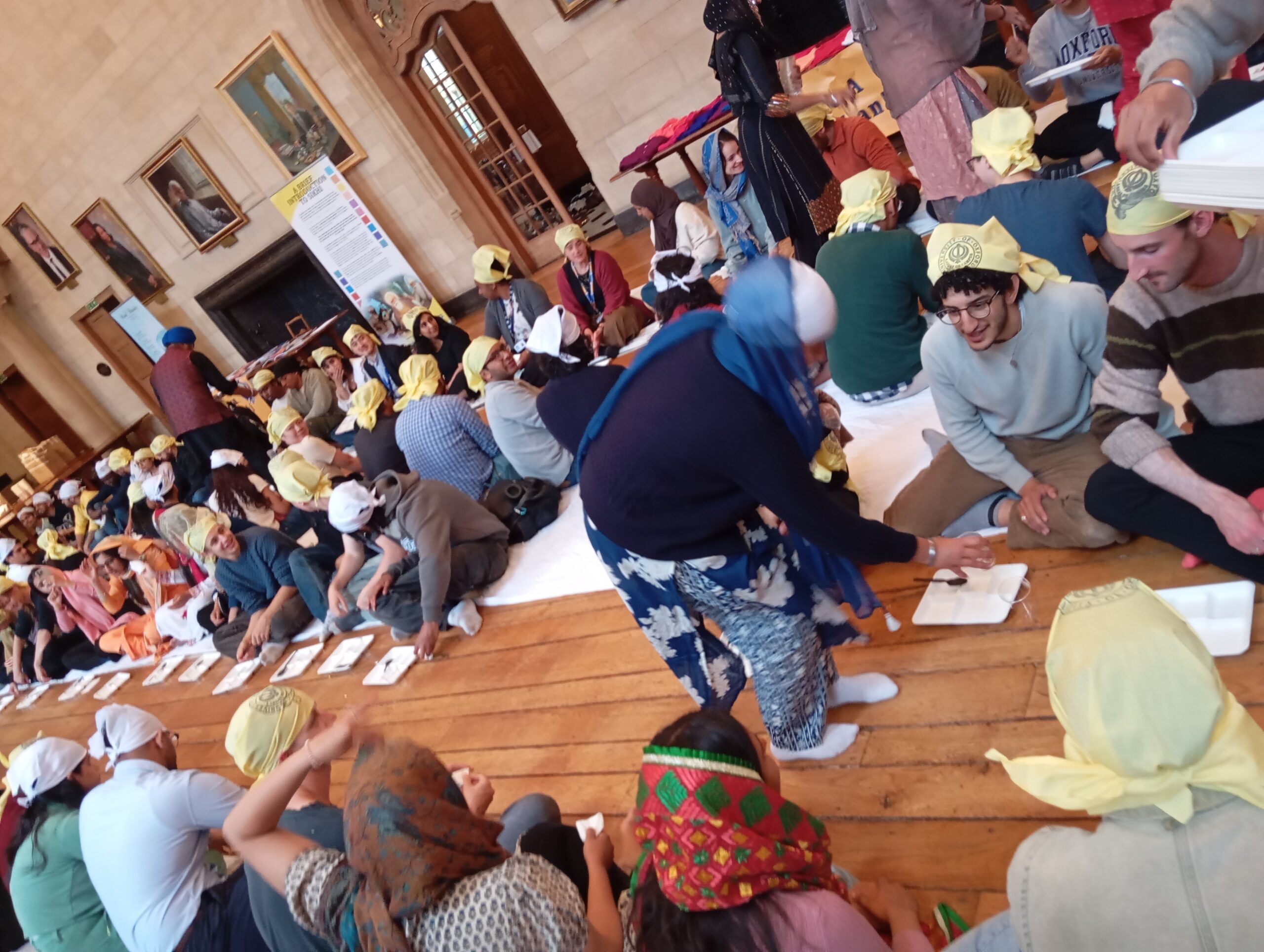
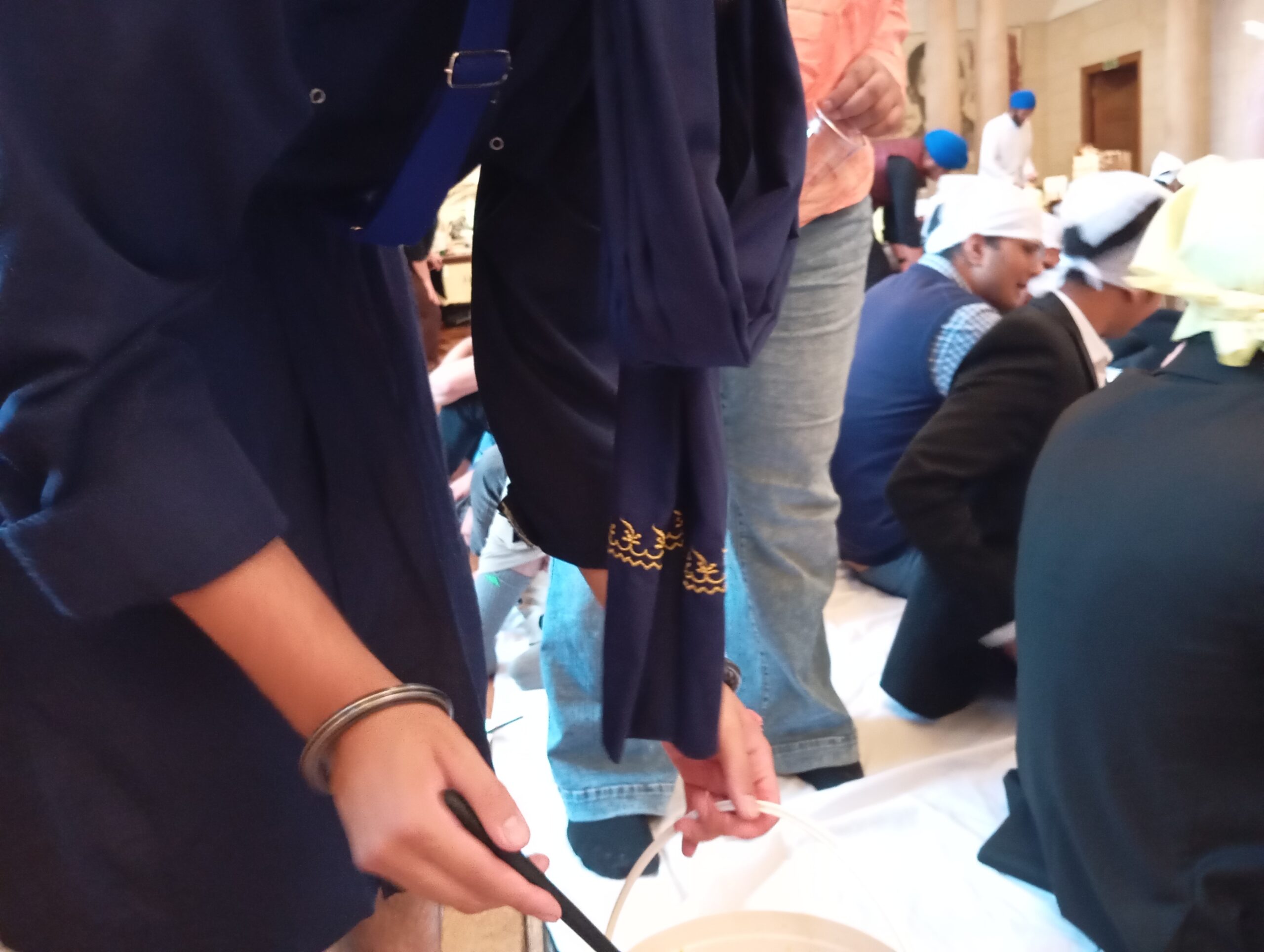
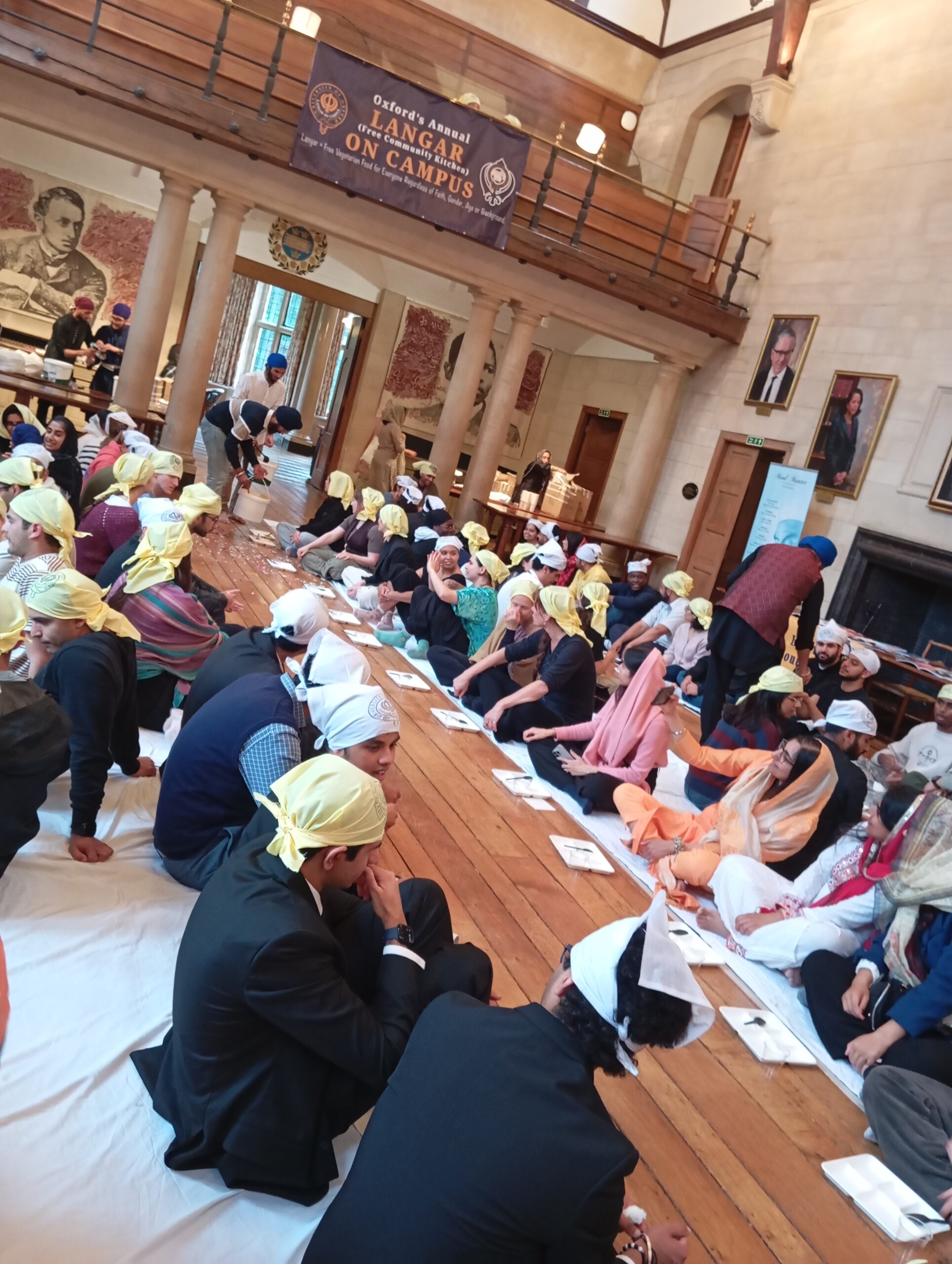
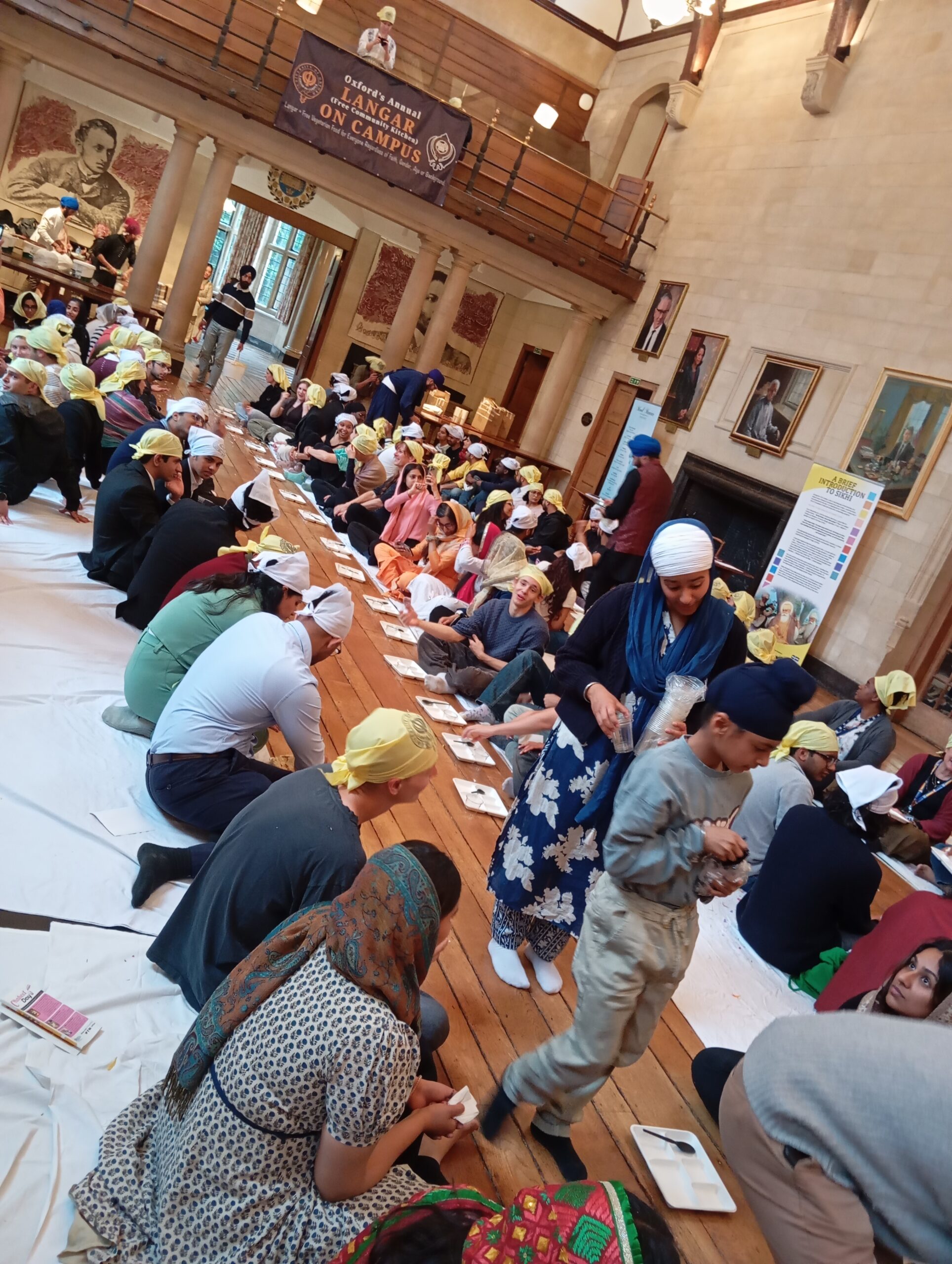
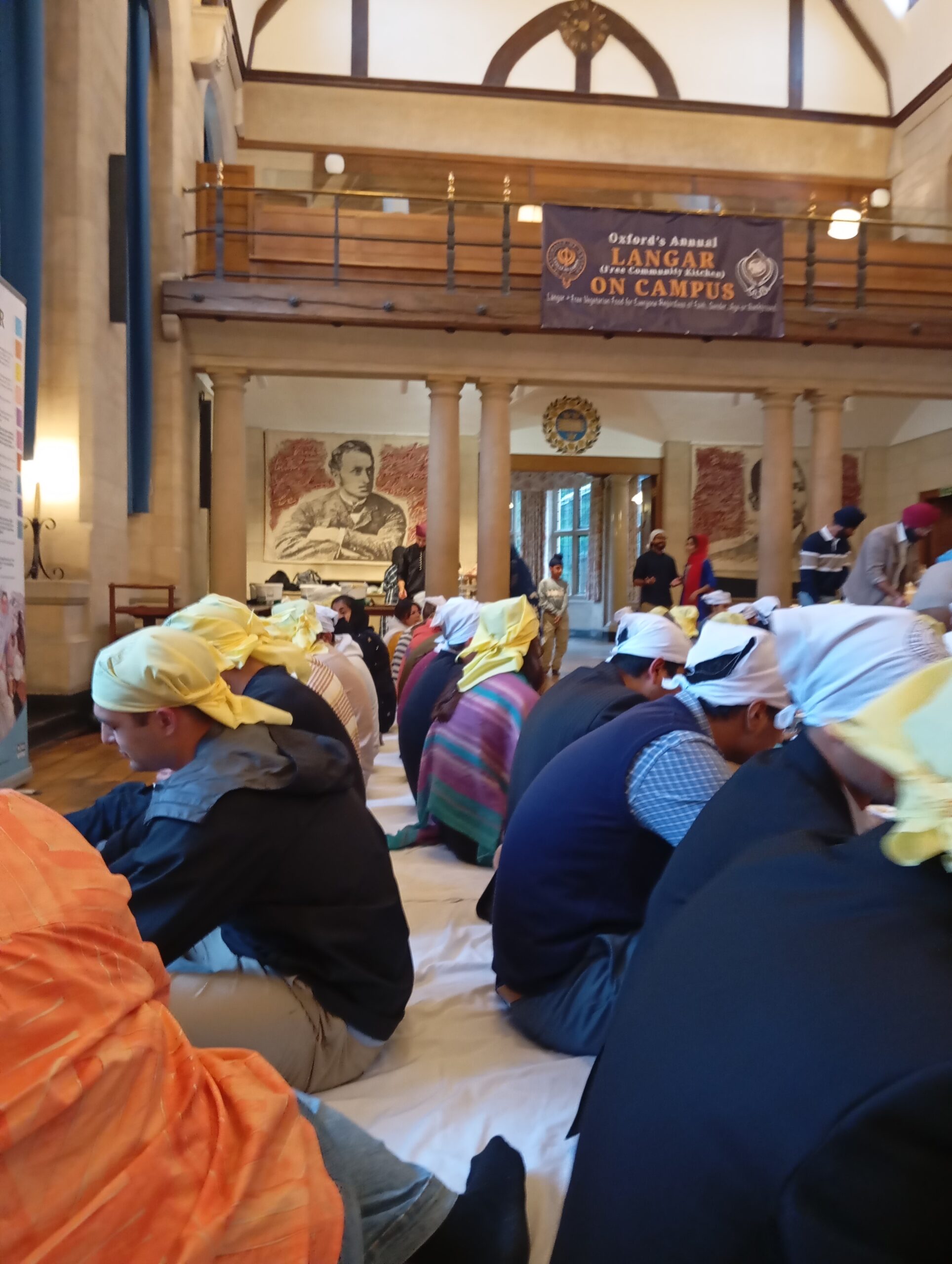
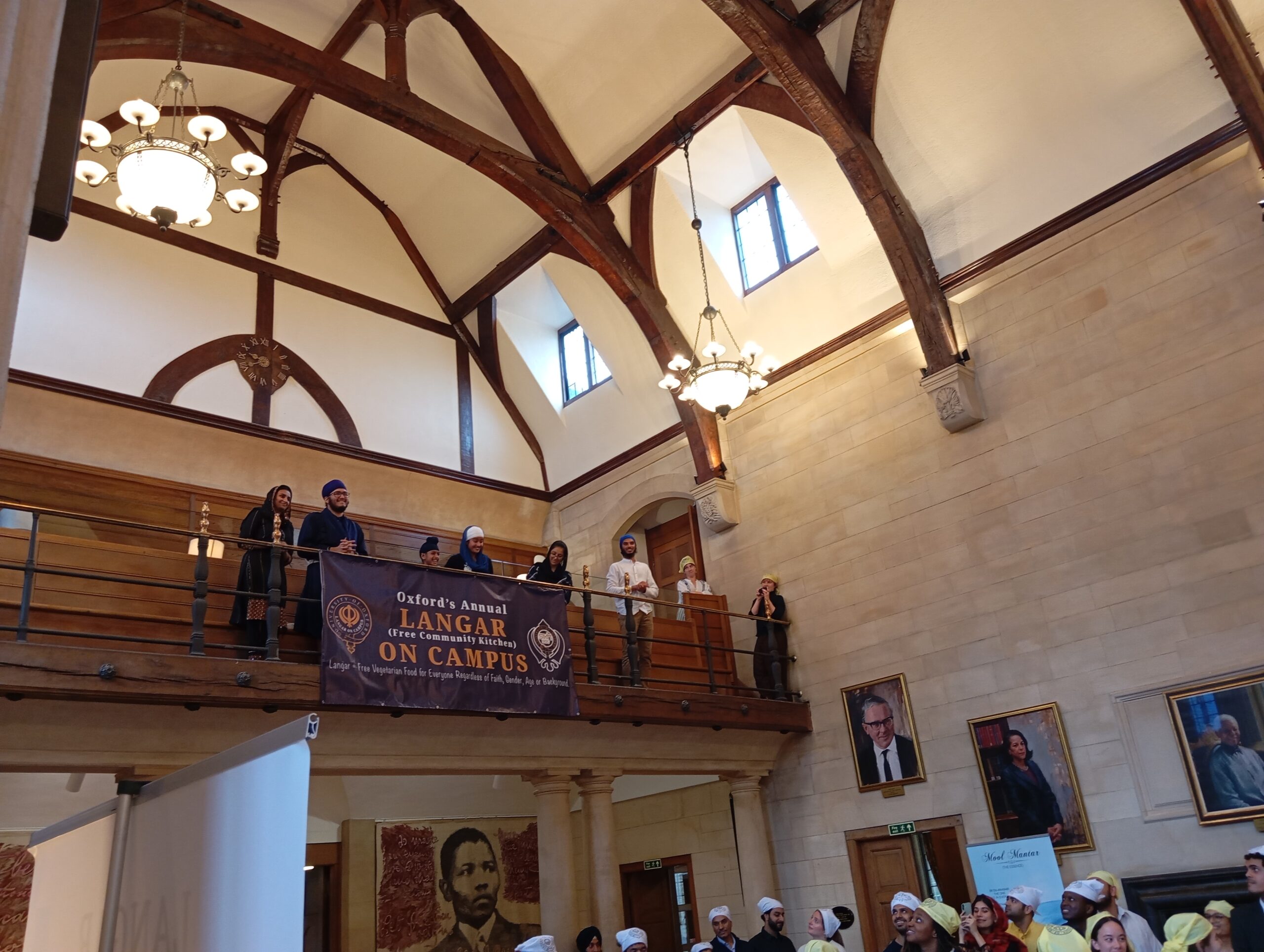
A Sikh Saying:
Before becoming a Hindu, a Muslim, a Sikh or a Christian,
Let’s become a Human First
🌟
Explore free resources to learn about Guru Nanak Dev Ji, the First Guru and Founder of the Sikh Faith. The following educational multilingual materials (see the links below) were created and distributed by Amardeep Singh, the 2022 Honoree of Hofstra’s Guru Nanak Interfaith Prize.
Watch the 24-episode docuseries at https://thegurunanak.com/english/
